EIN Civil Society Briefing May: Belgium, Azerbaijan, and Turkey
/On 30 May 2022, EIN held the latest civil society briefing for permanent Representations of the Council of Europe, ahead of the Committee of Minister’s Human Rights Meeting on 8-10 June 2022. The event was held in person in Strasbourg.
The Briefing focused on the following cases:
Vasilescu v. Belgium, which concerns the inhuman and degrading treatment suffered by the applicants, due to the material conditions of their detention taken as a whole. Bart De Temmerman, from the Conseil Central de Surveillance Pénitentiaire (CCSP), presented relevant developments, and ongoing concerns and made recommendations for the implementation of this case.
Khadija Ismaylova v. Azerbaijan and Khadija Ismayilova v. Azerbaijan (no. 2) concerns violations of the applicant’s right to privacy and freedom of expression in connection with her work as a journalist. The status of implementation of the case and recommendations were presented by the Applicant, Khadija Ismaylova.
Selahattin Demirtas (no.2) v Turkey, which concerns the unjustified detention of the applicant without reasonable suspicion that he had committed an offence, with the ulterior purpose of stifling pluralism and limiting freedom of political debate; and unforeseeable lifting of parliamentary immunity and subsequent criminal proceedings to penalise the applicant for political speech. The case was briefed on by Ayşe Bingol, Co-Director of the Turkey Human Rights Litigation Support Project.
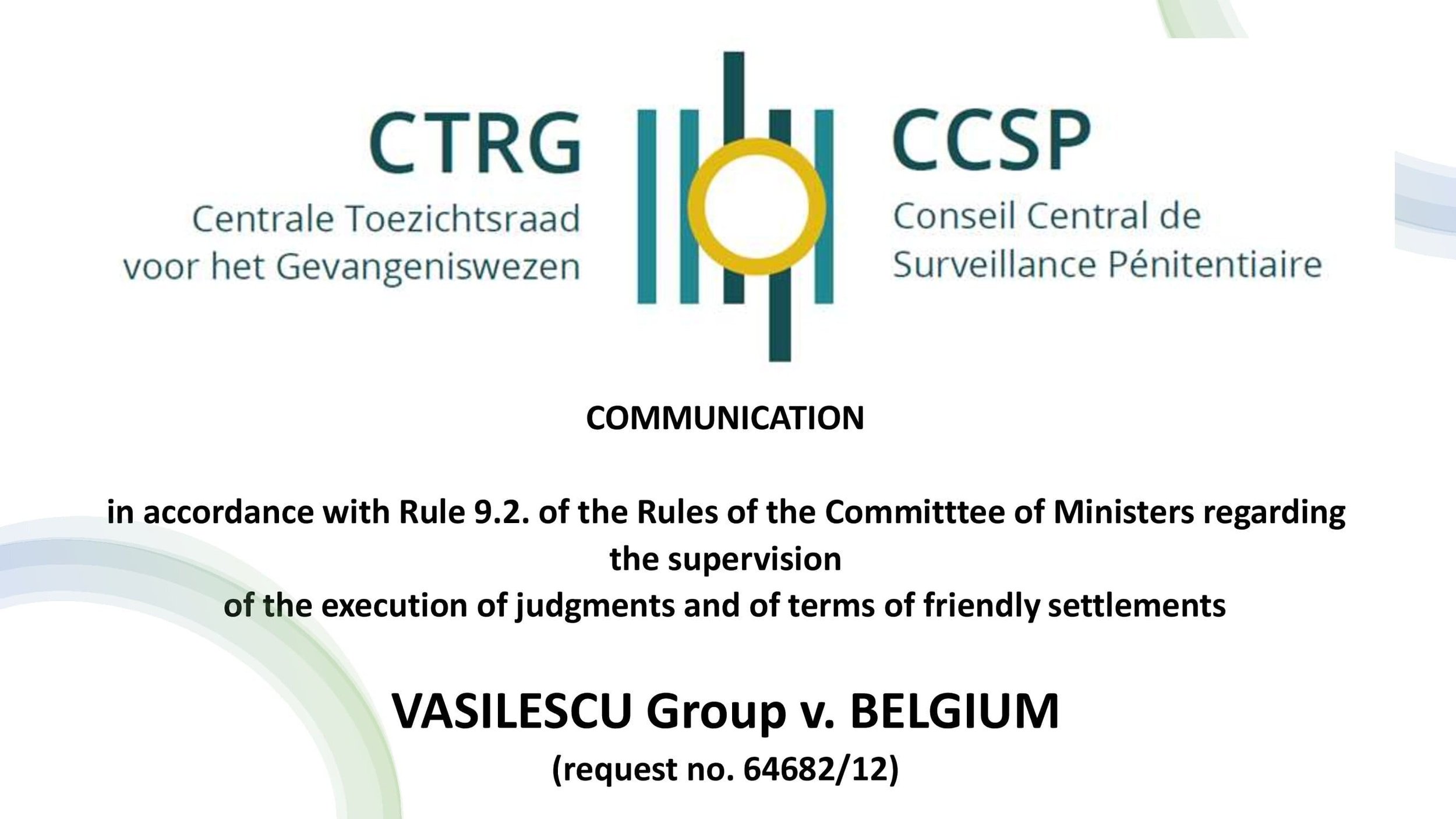
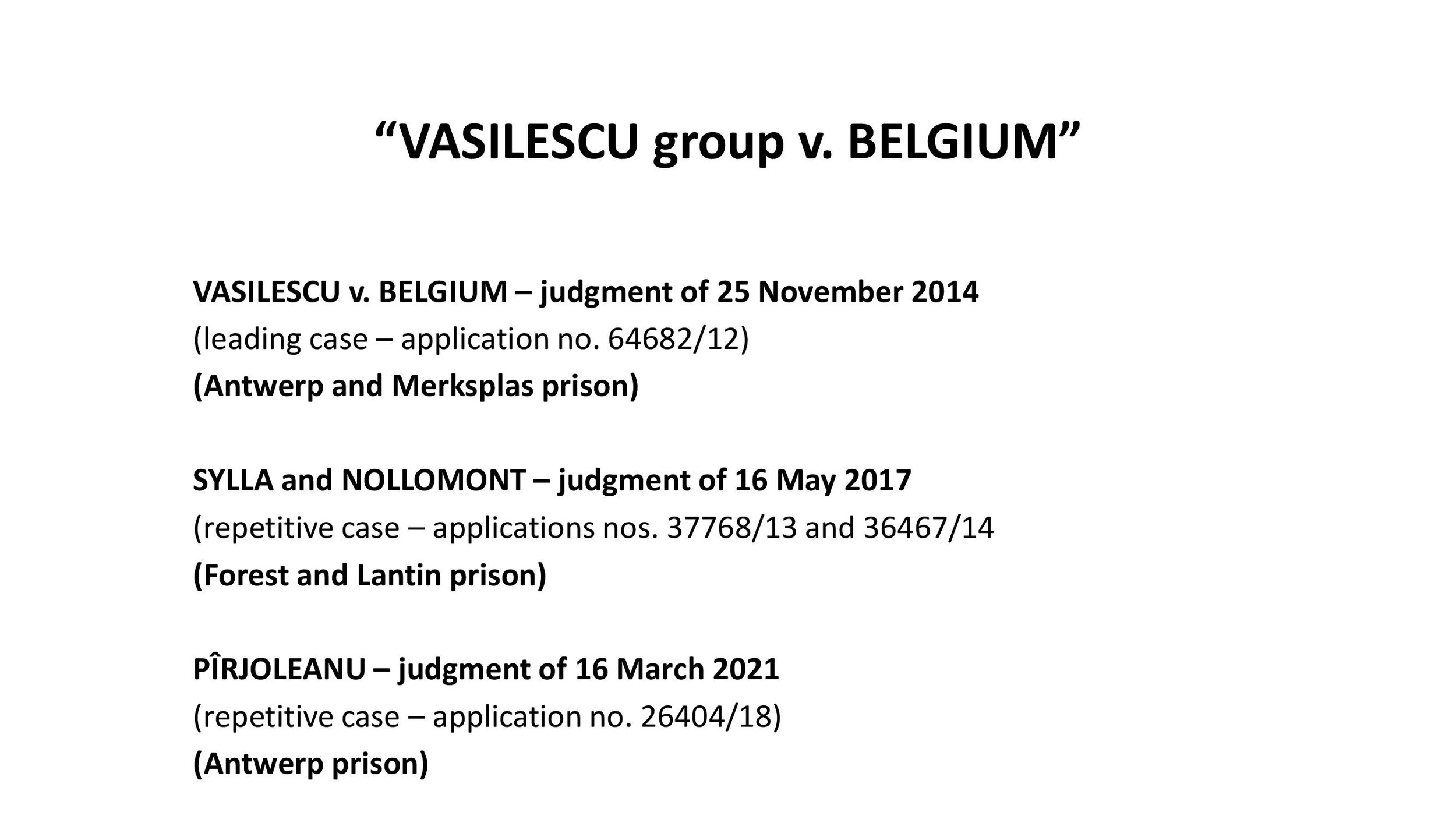
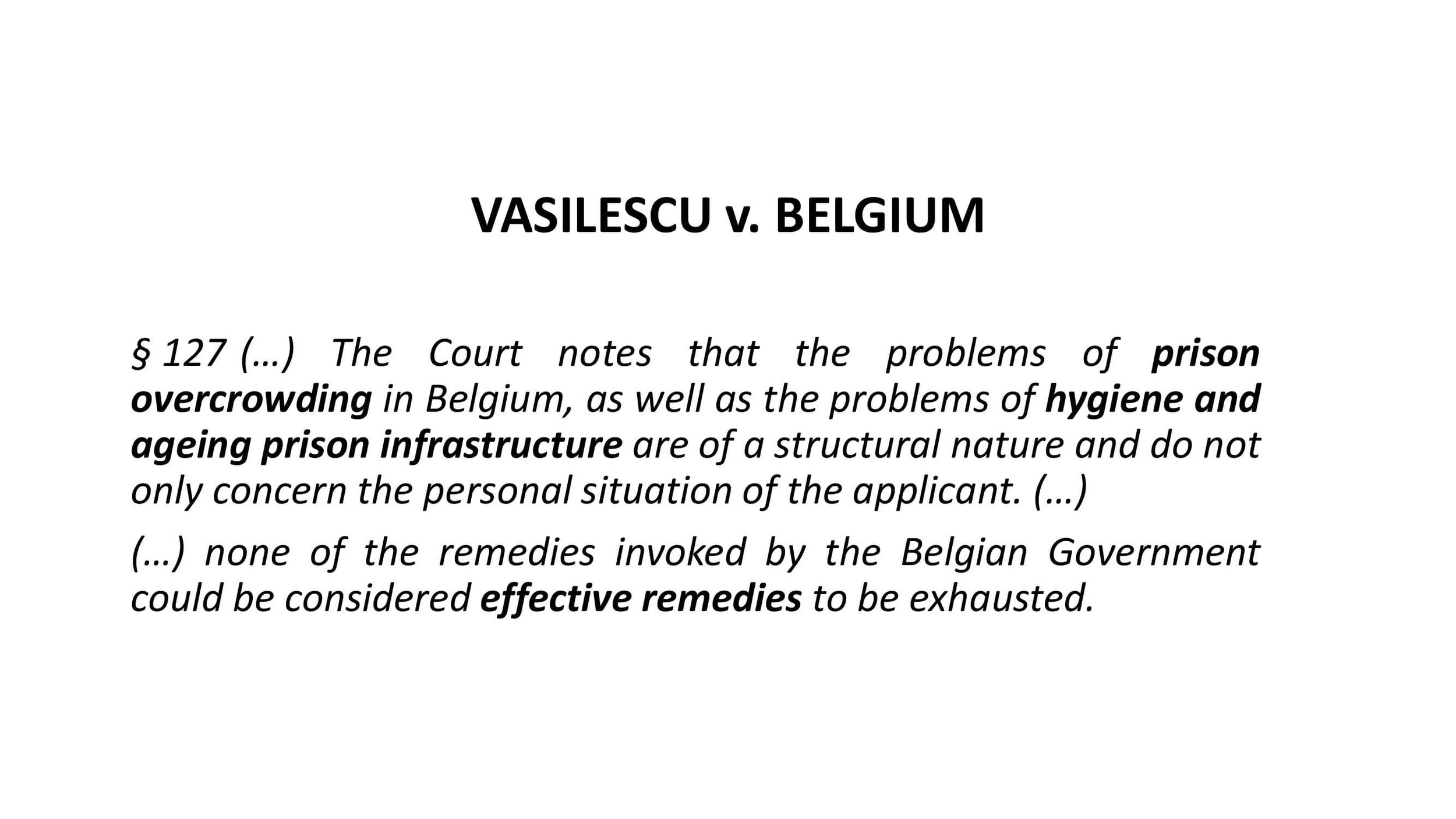
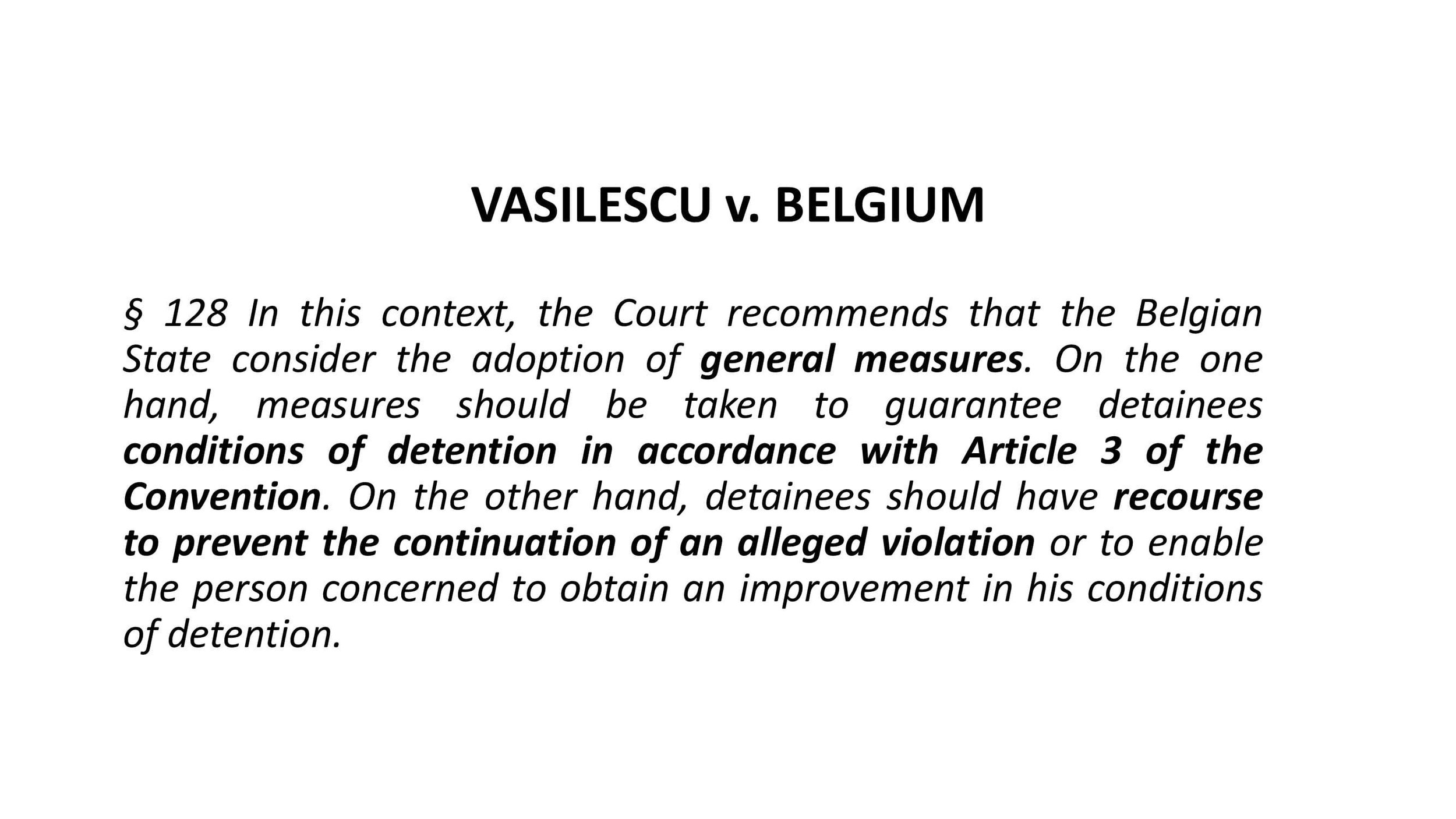
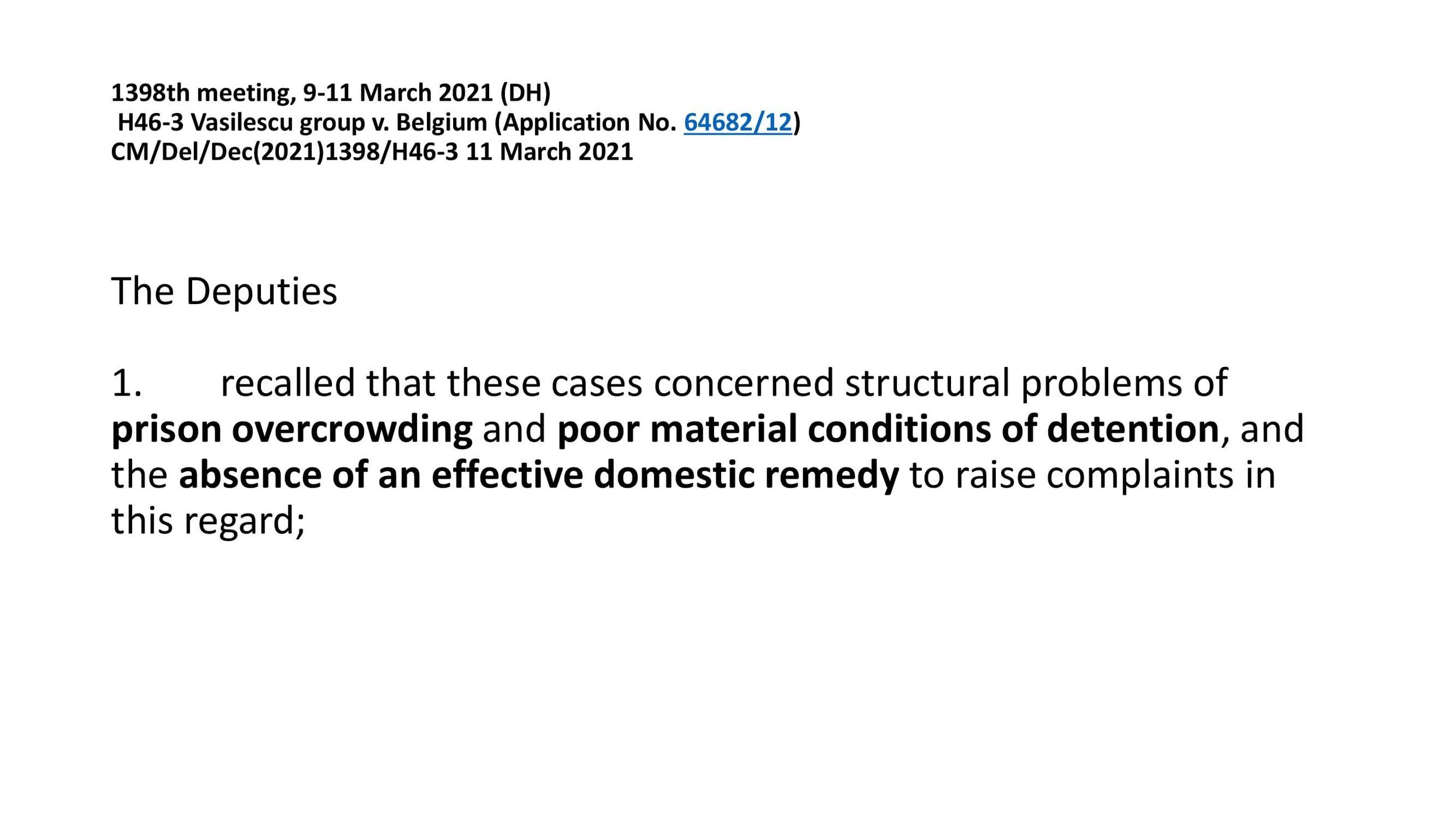
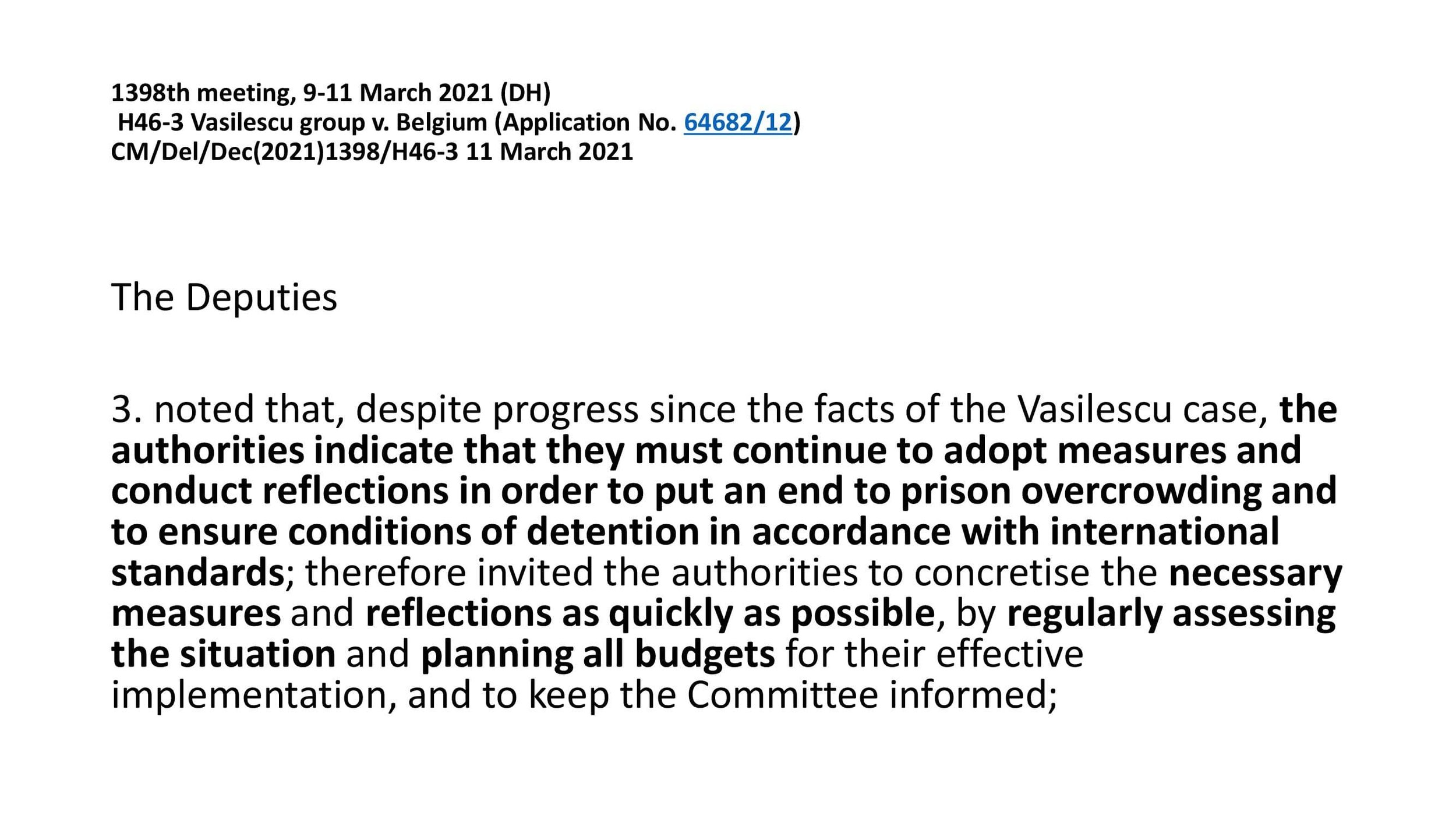
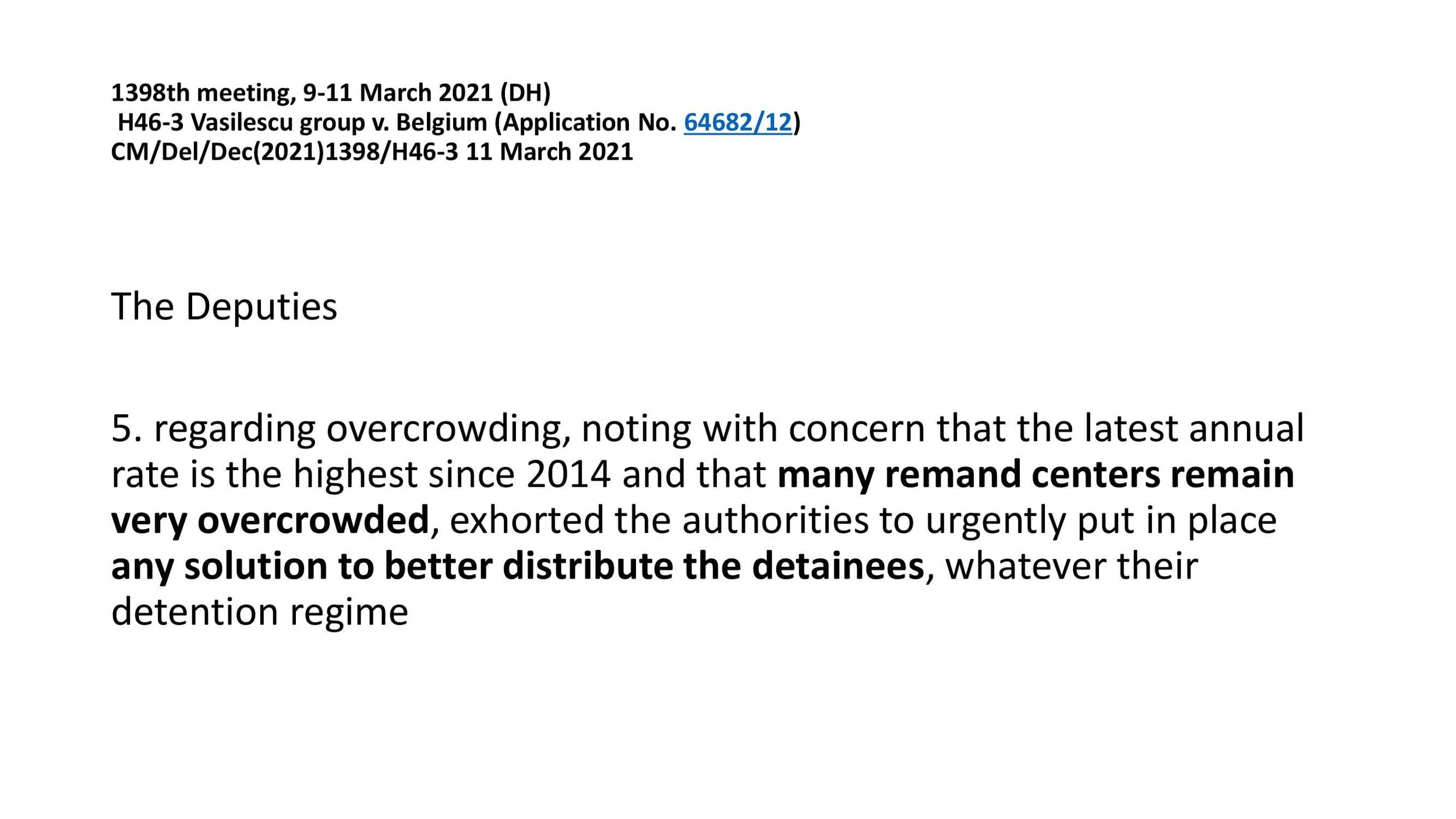
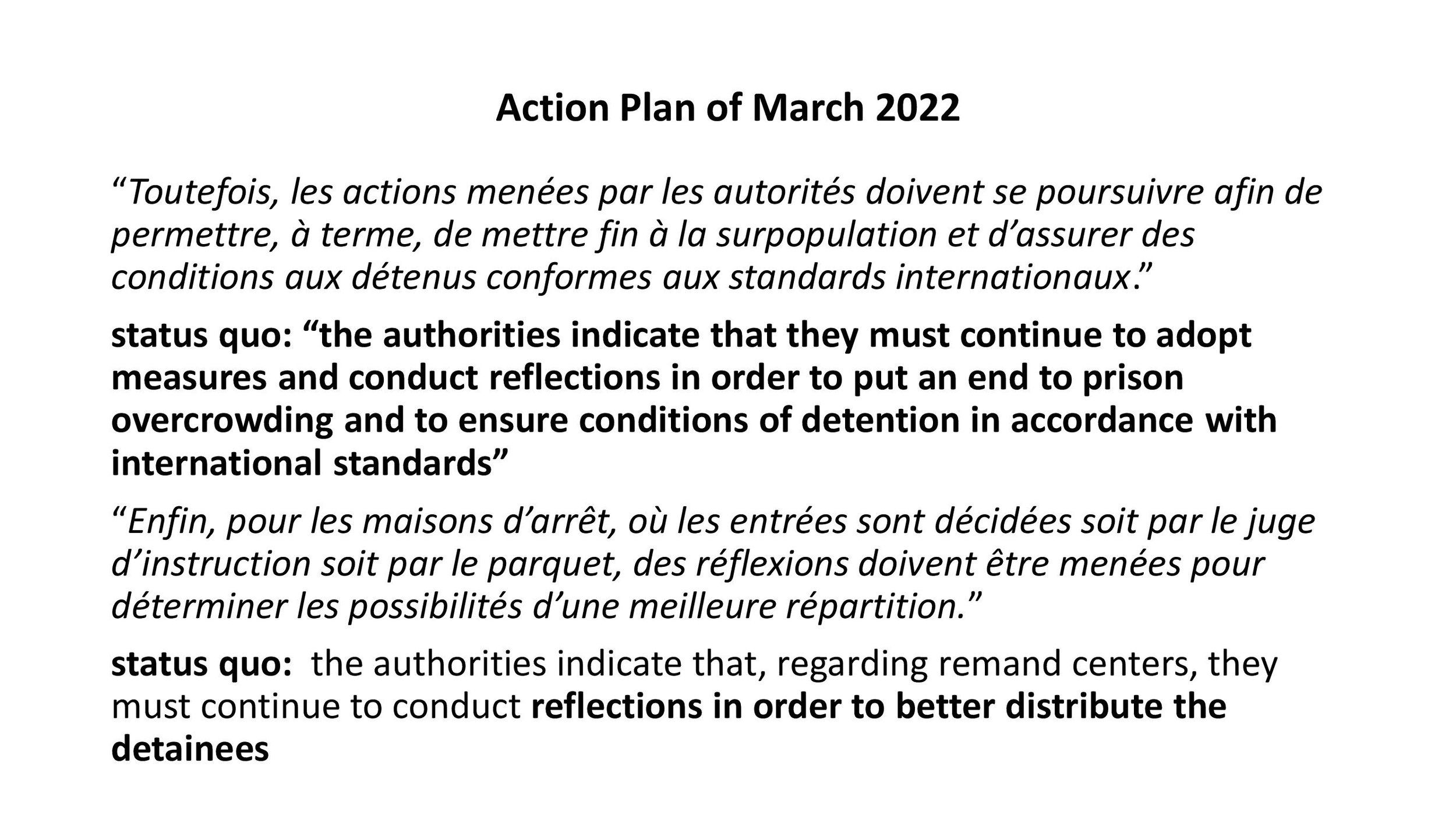
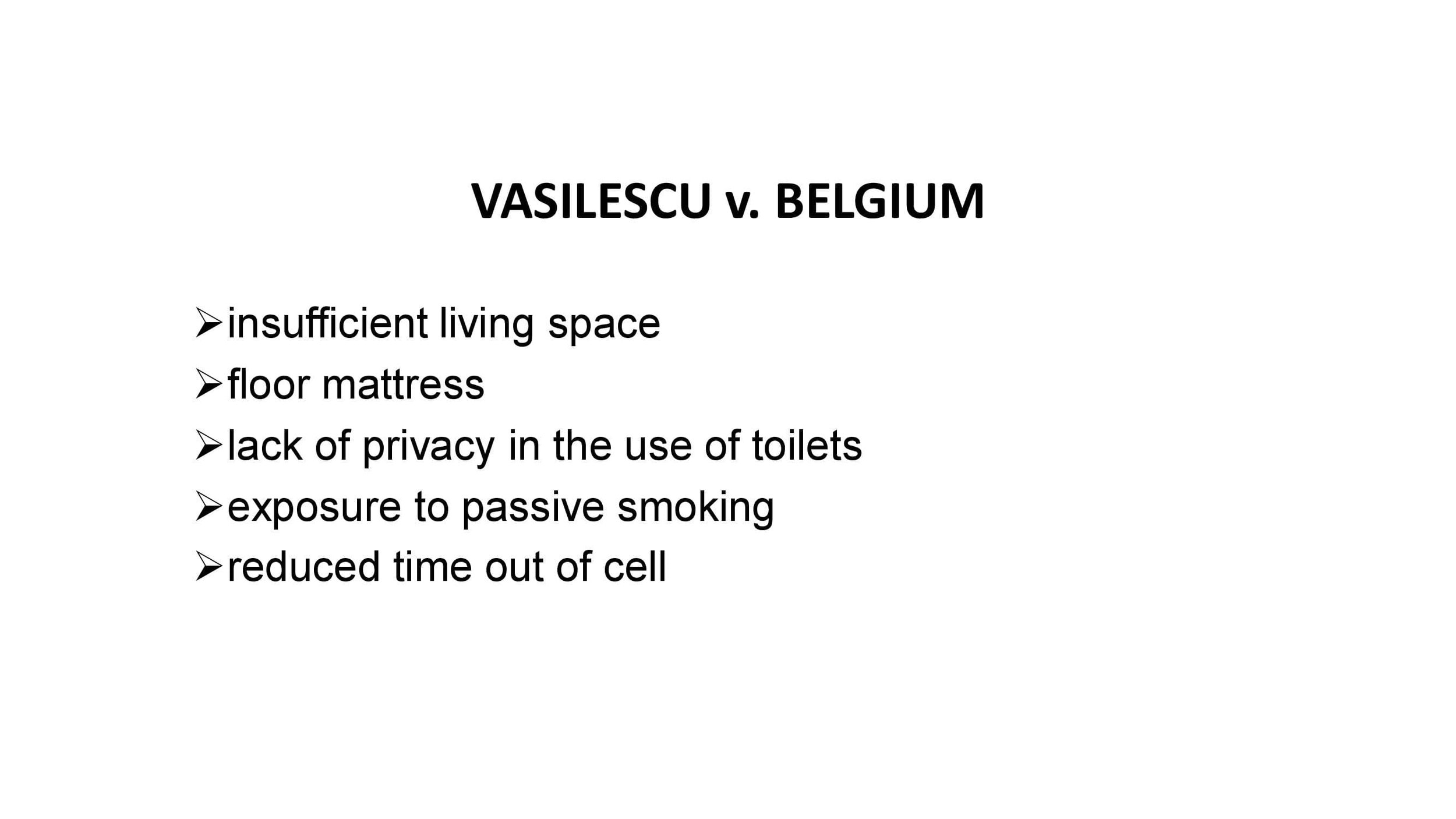
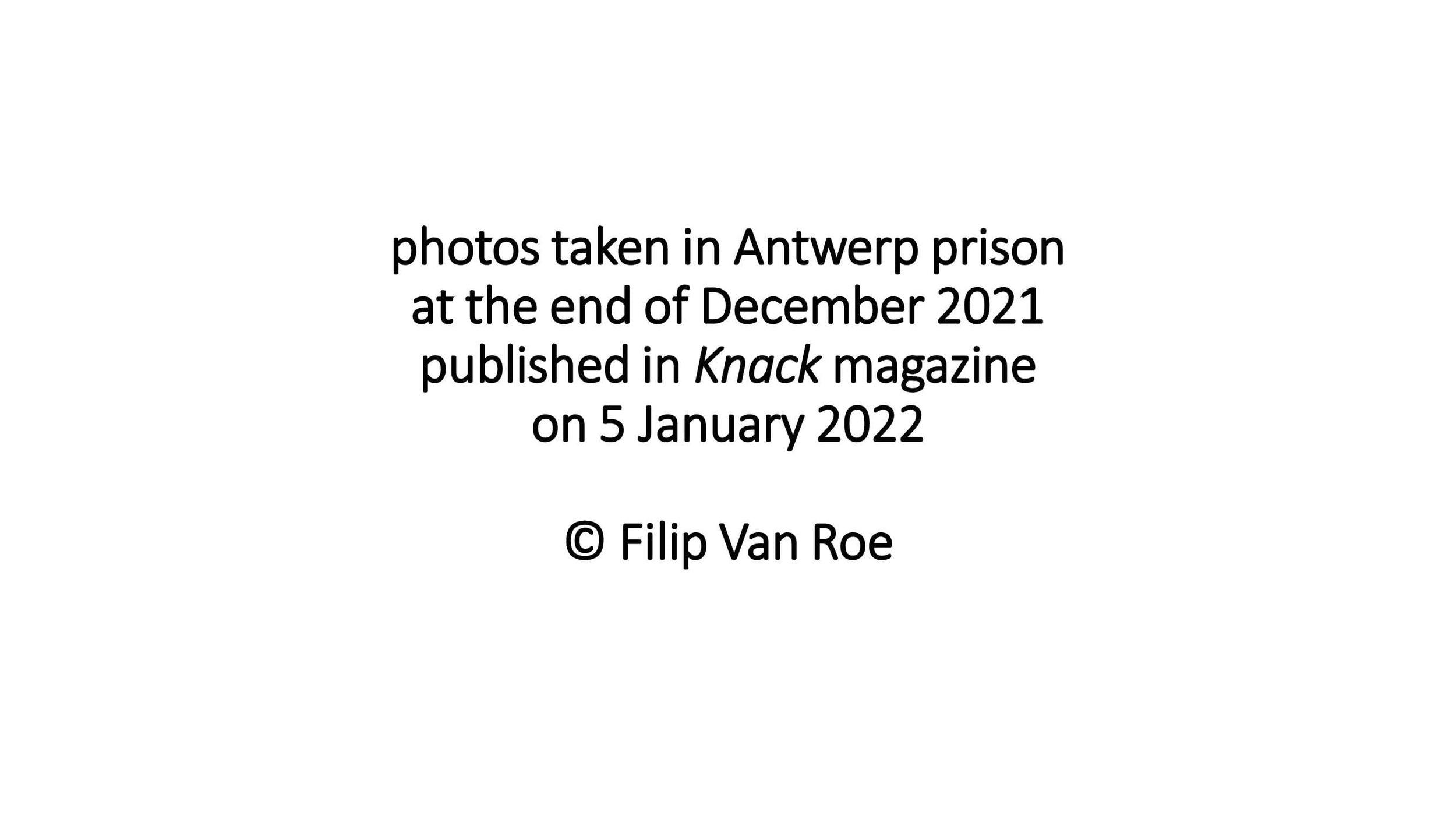
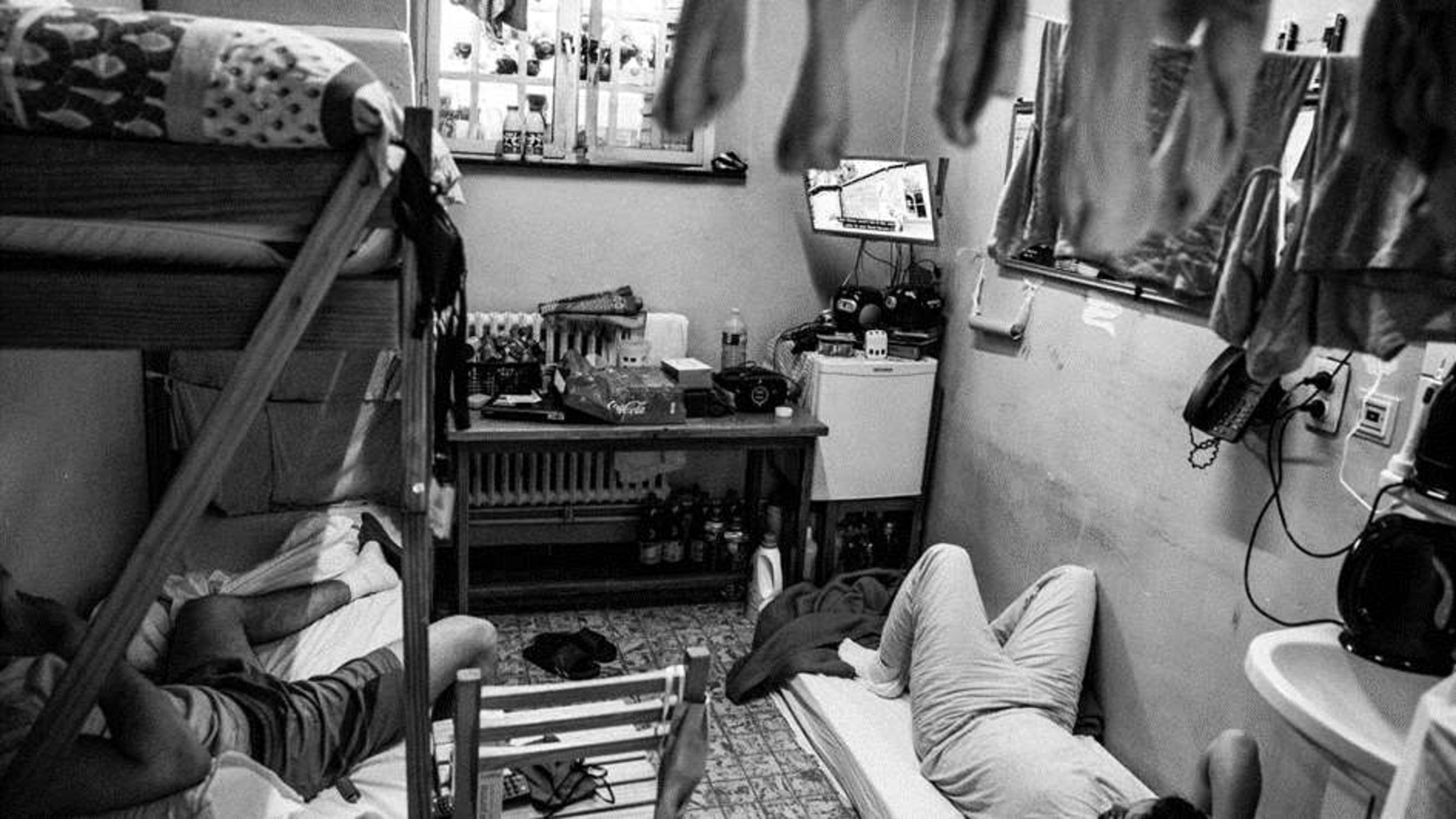
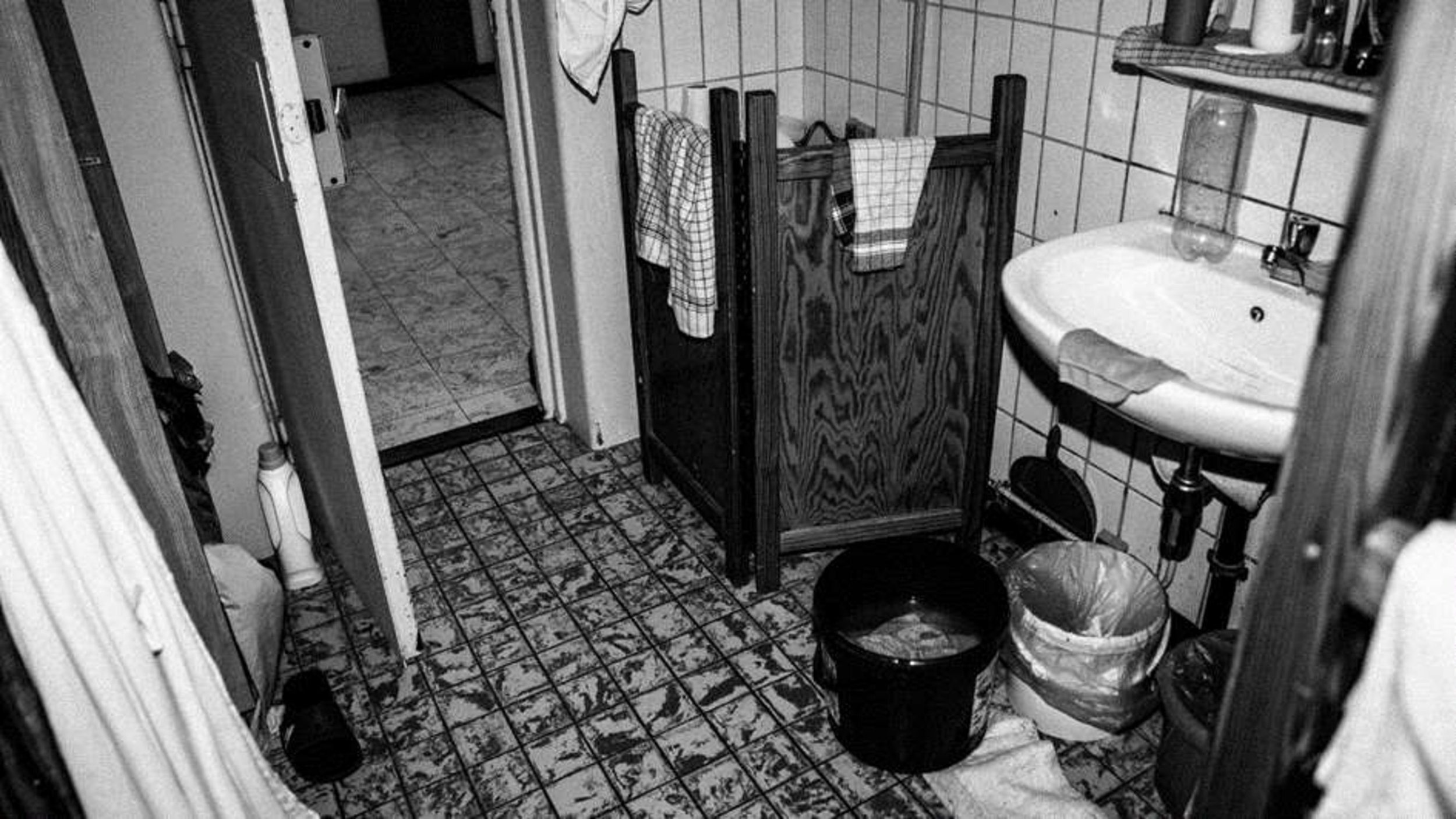
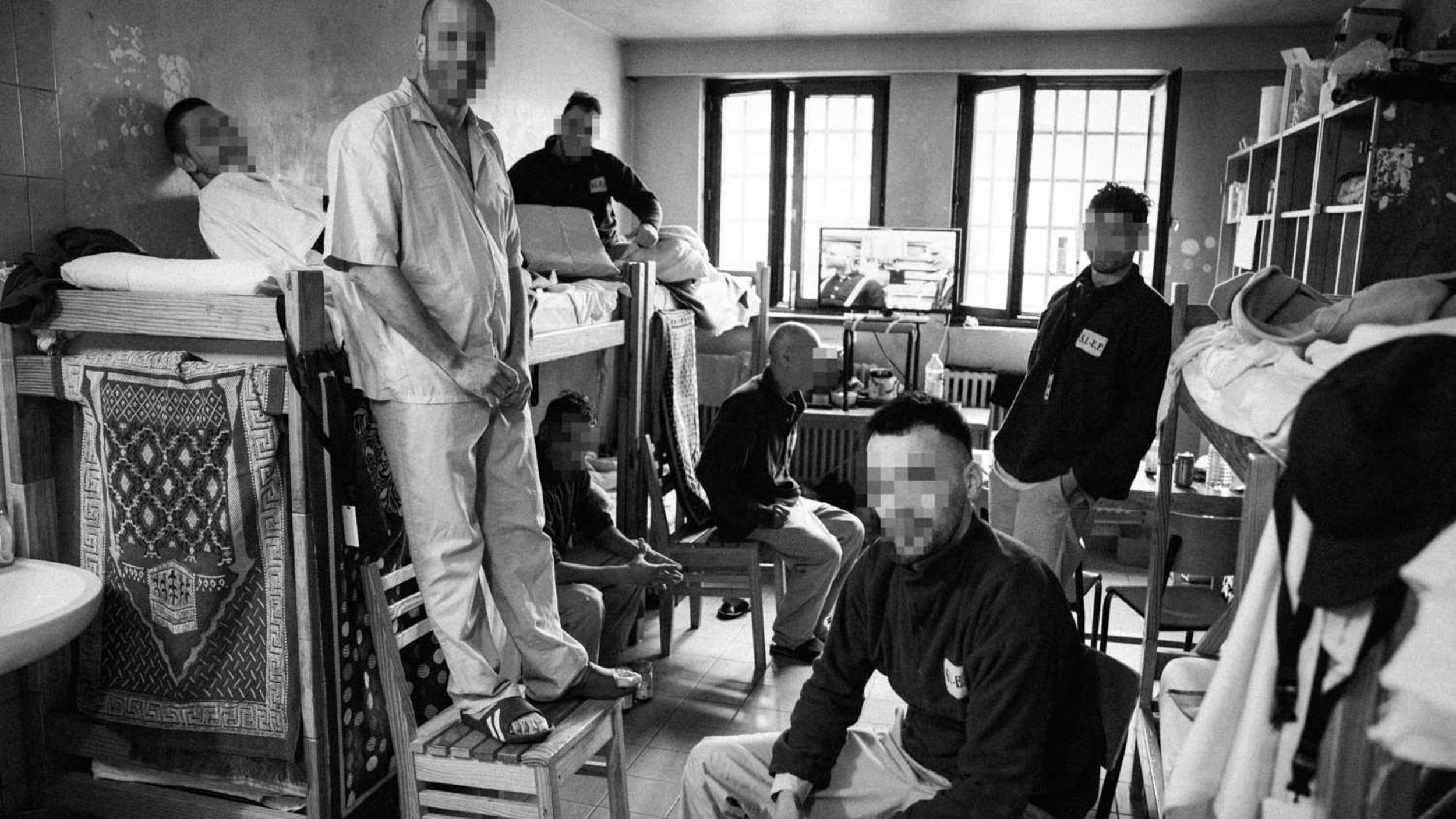
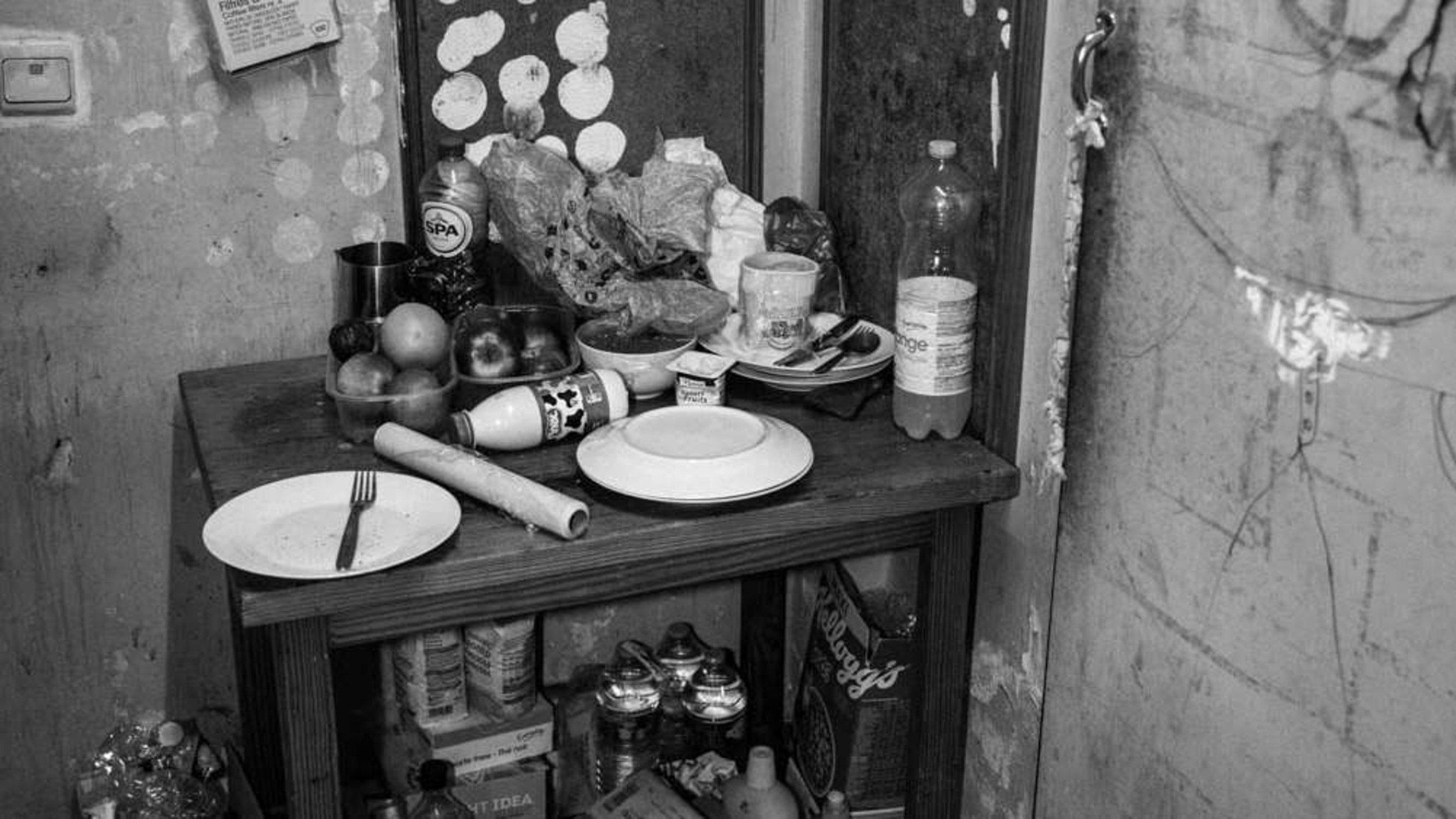
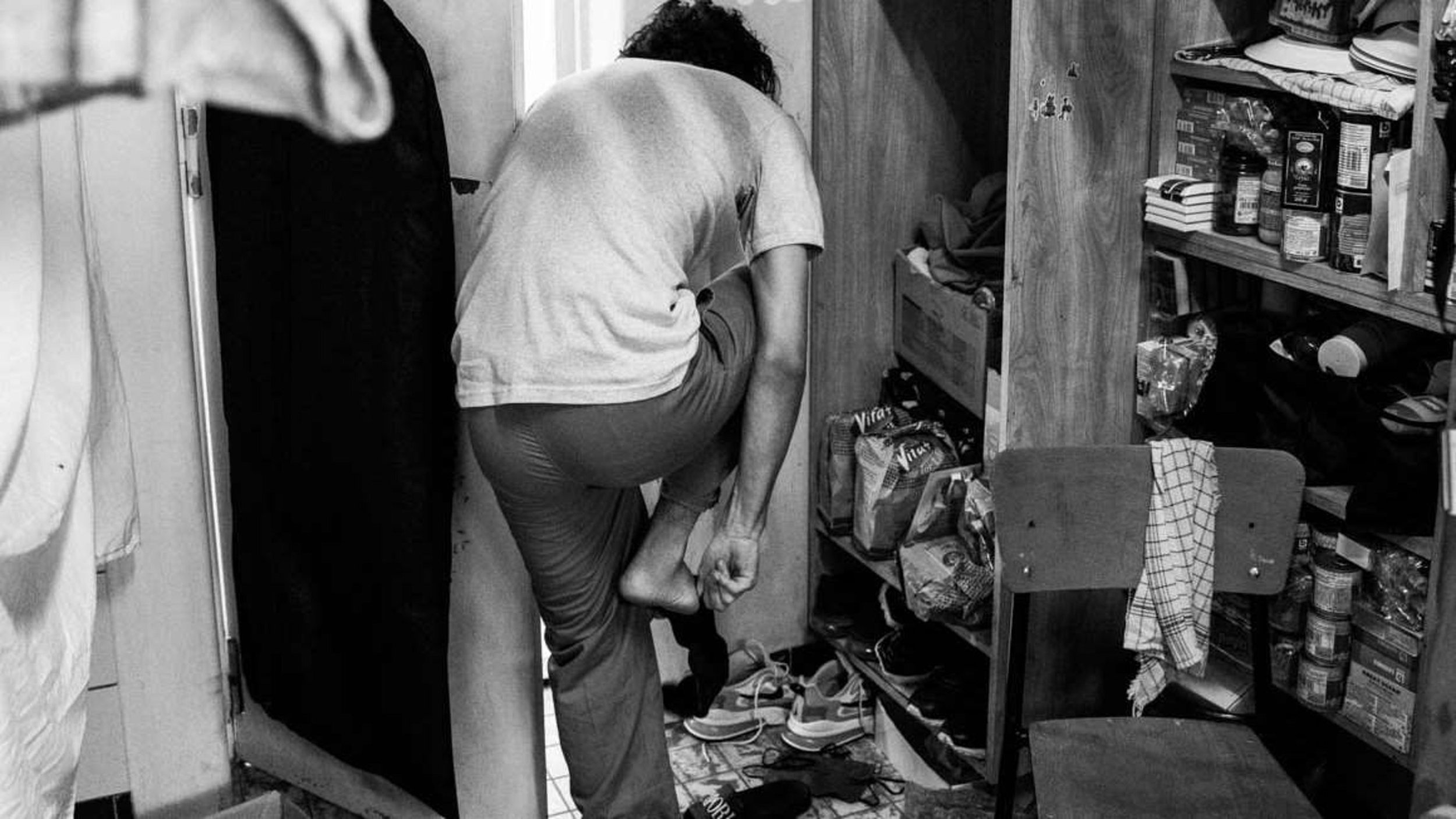
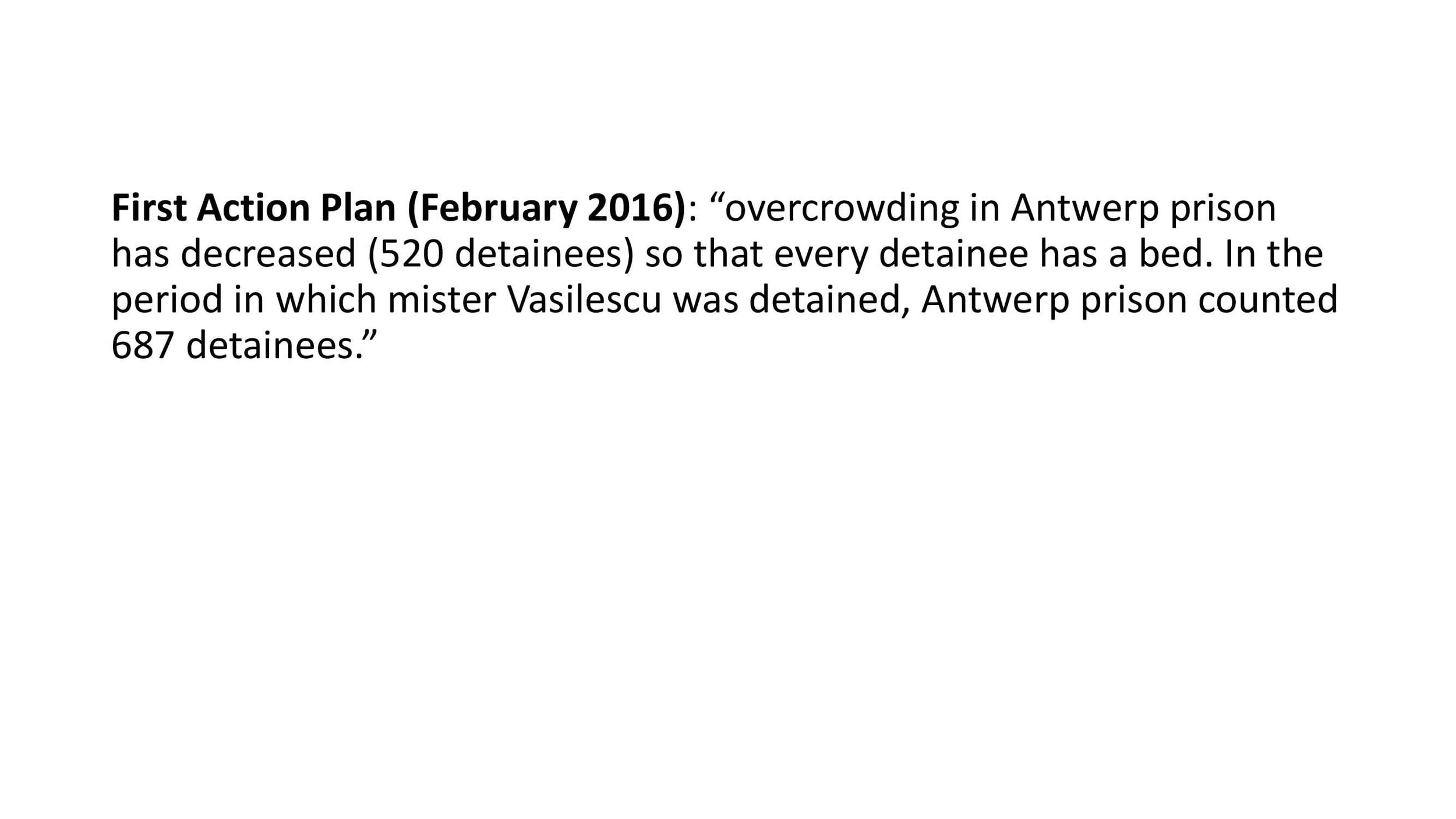
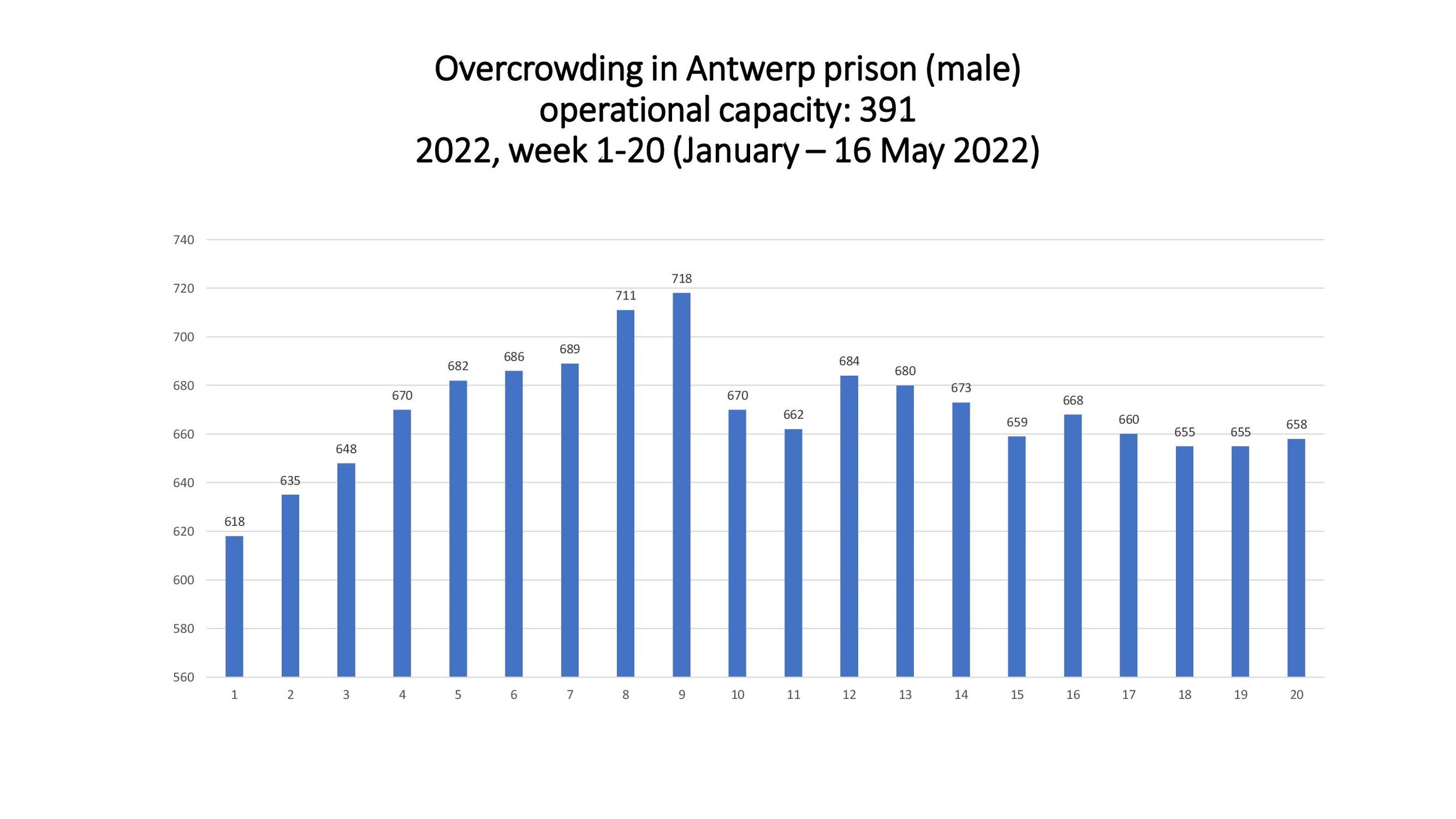
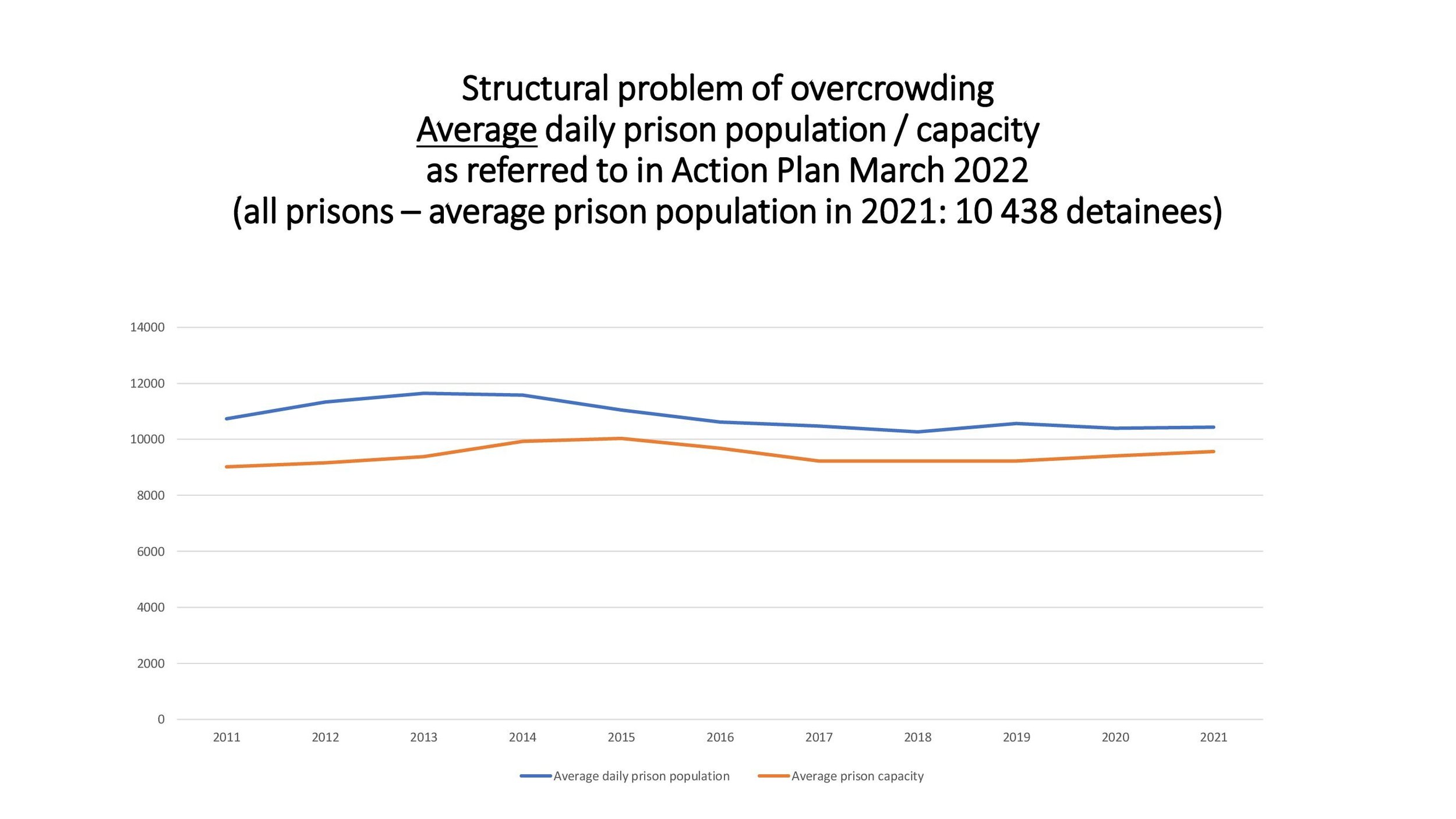
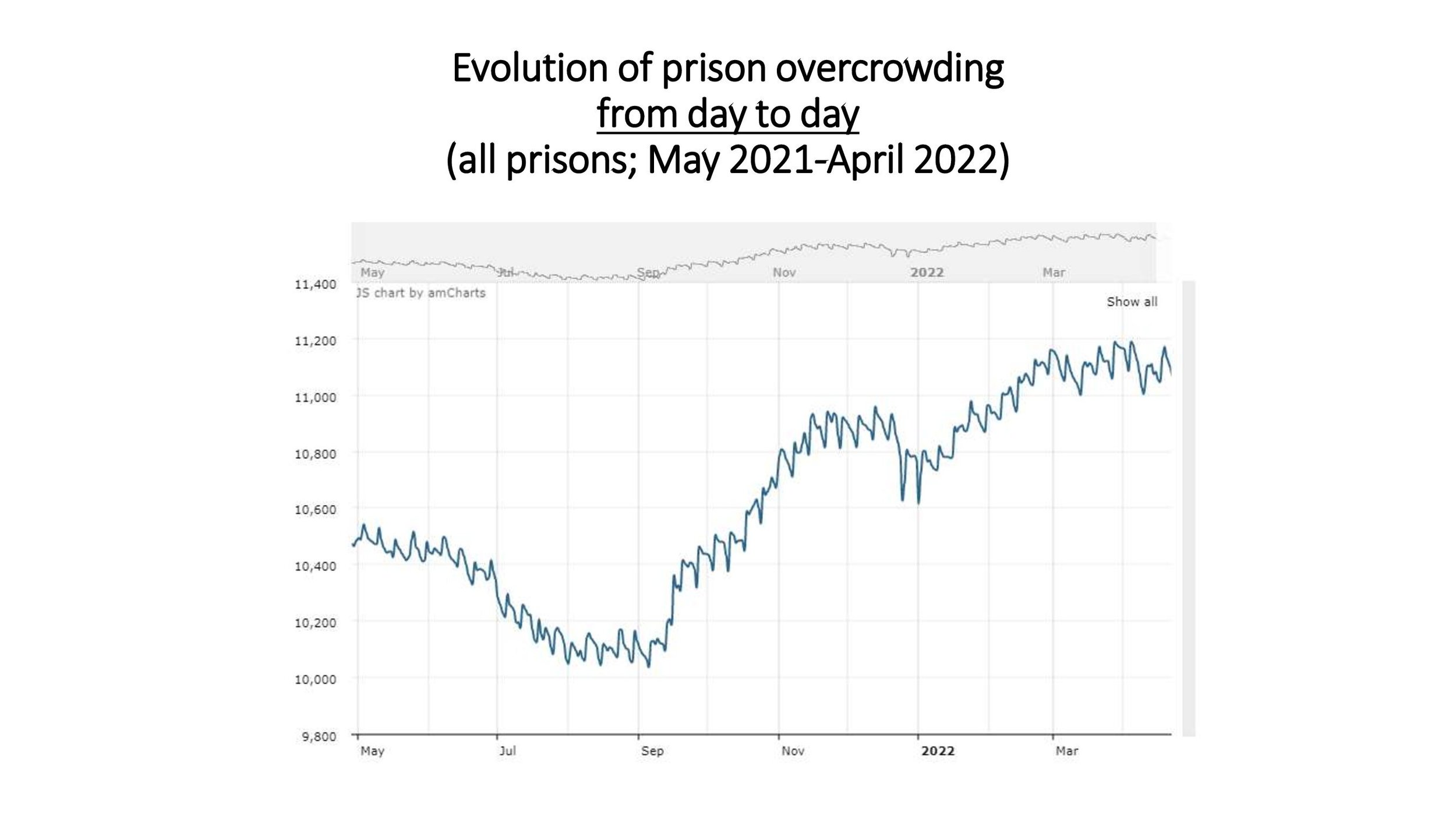
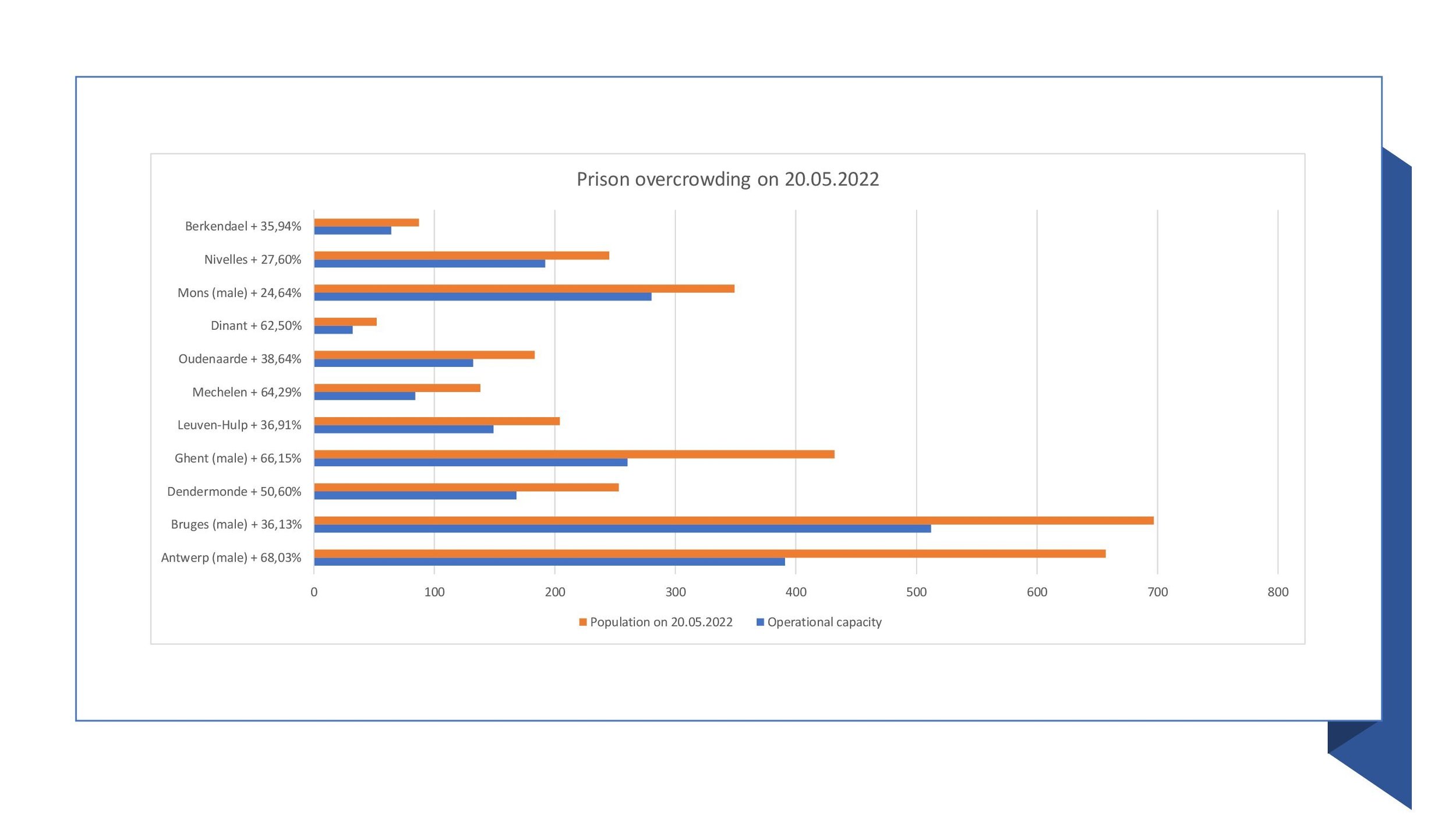
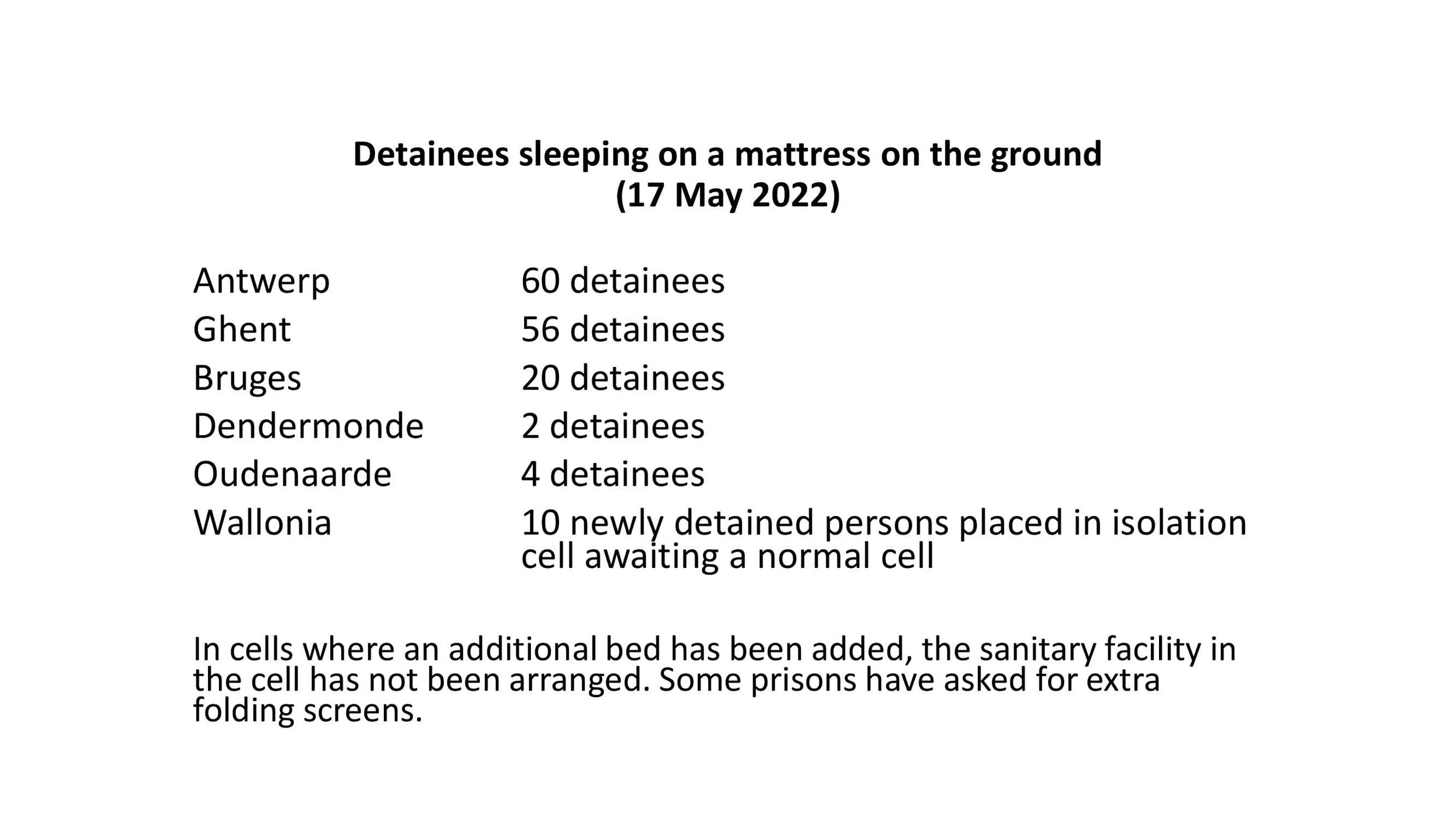
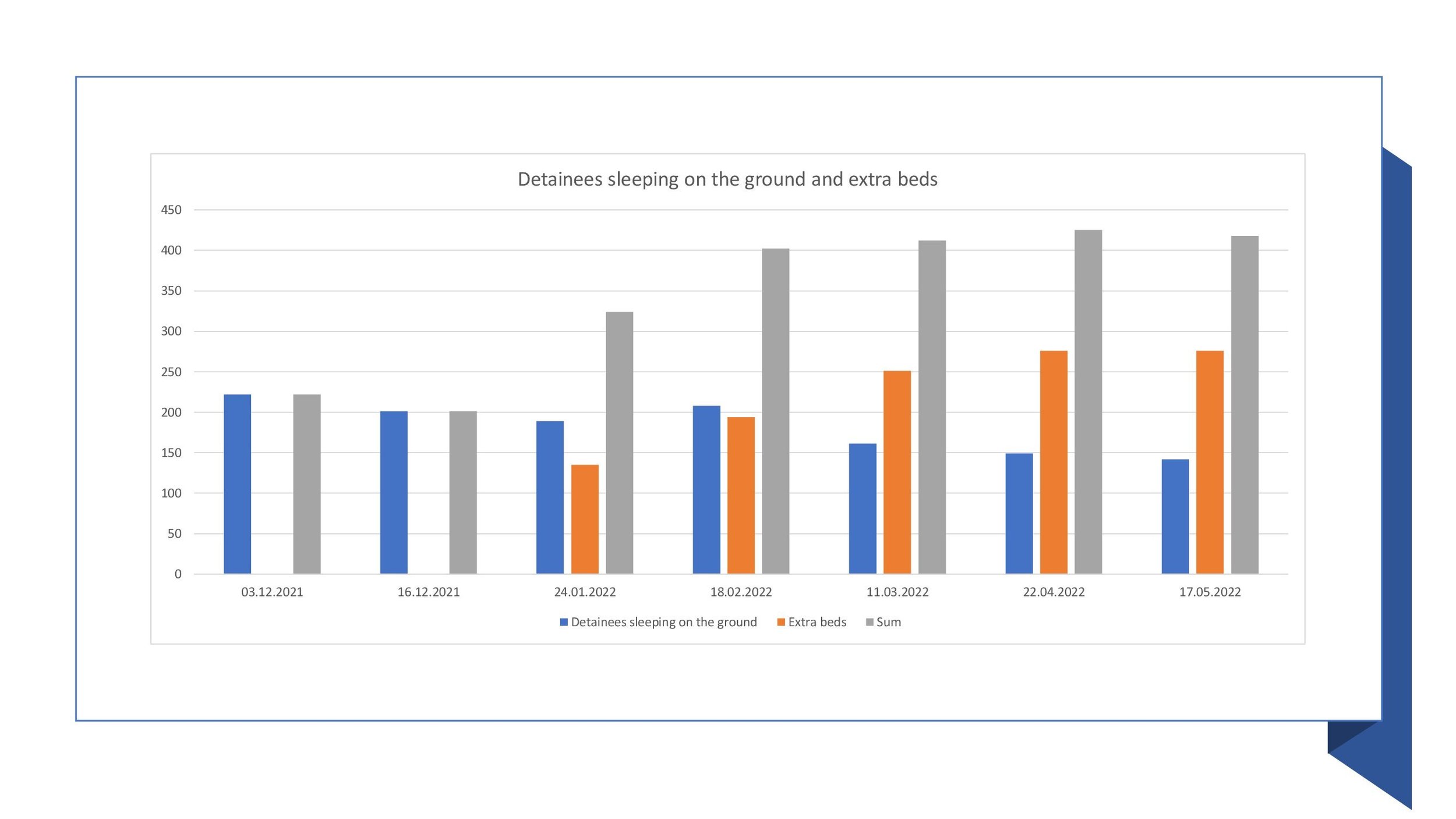
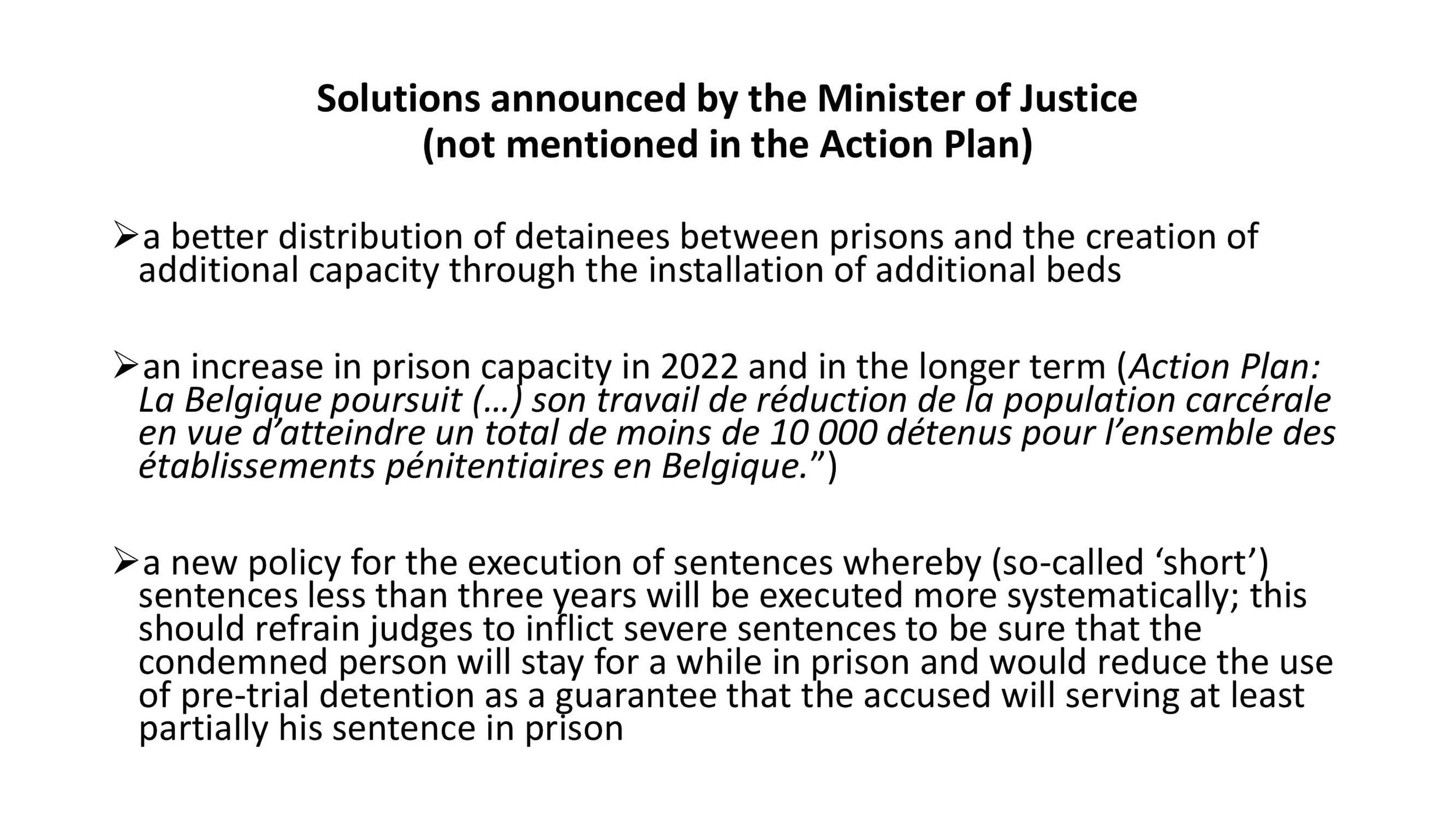
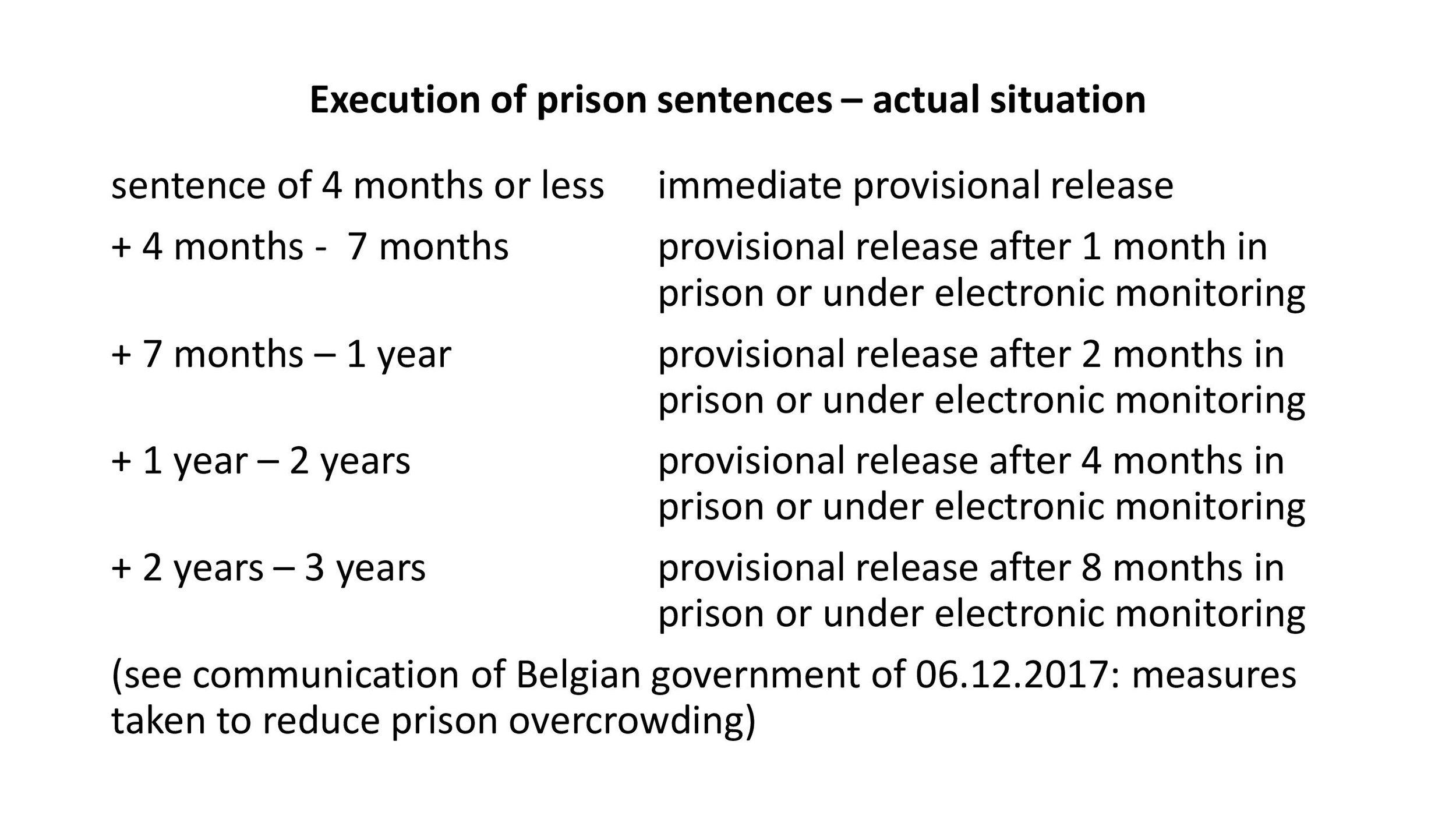
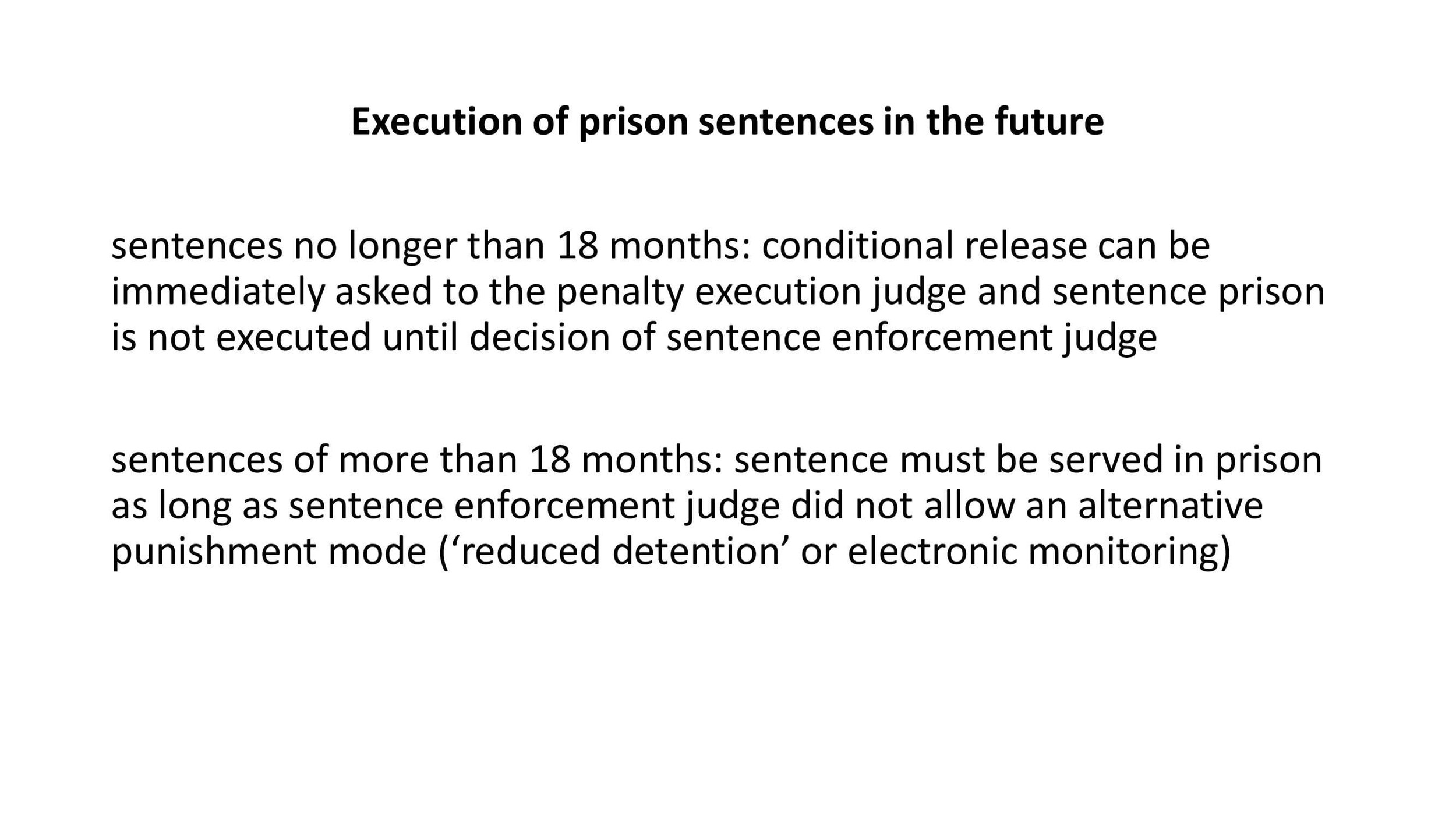
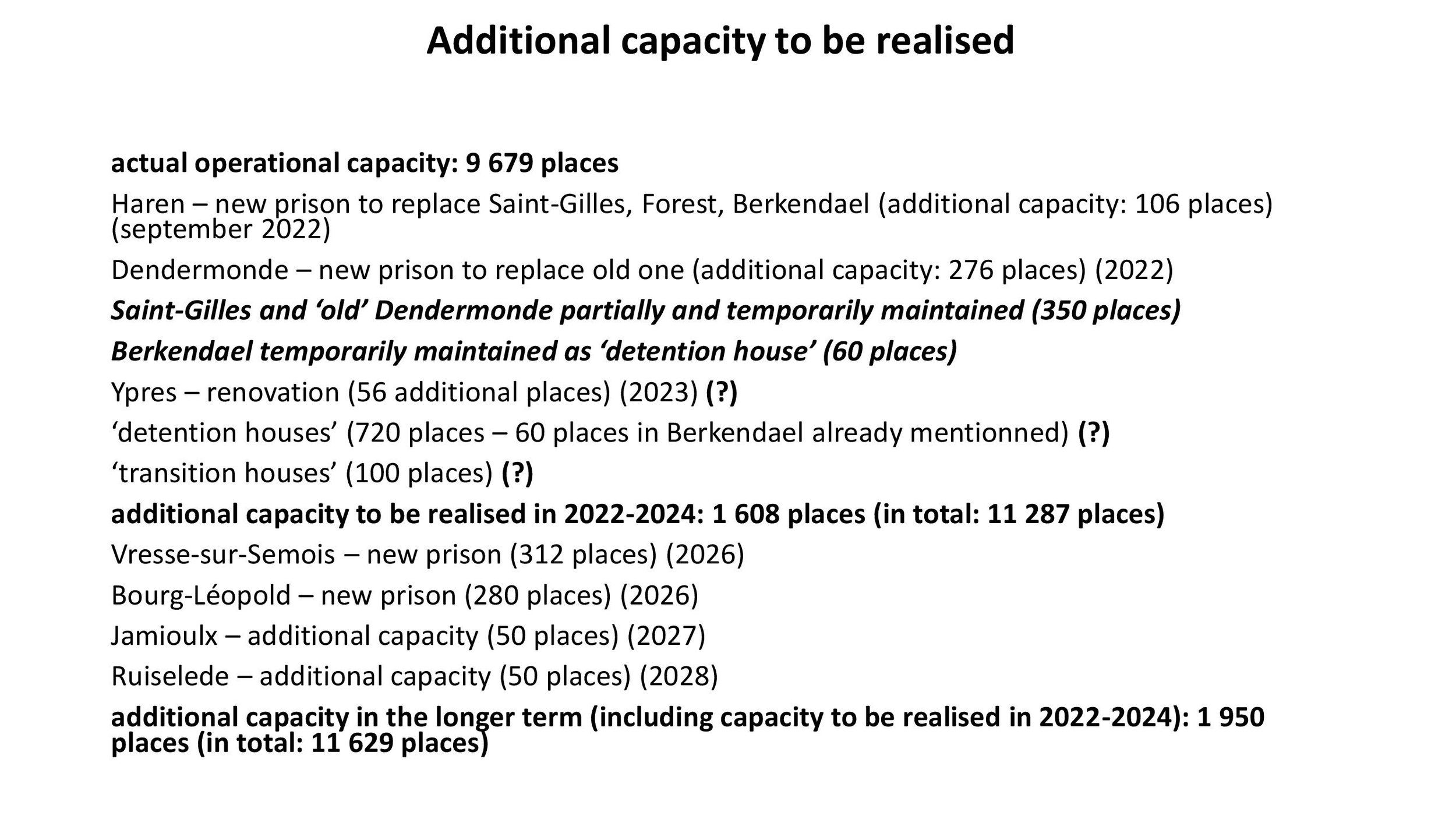
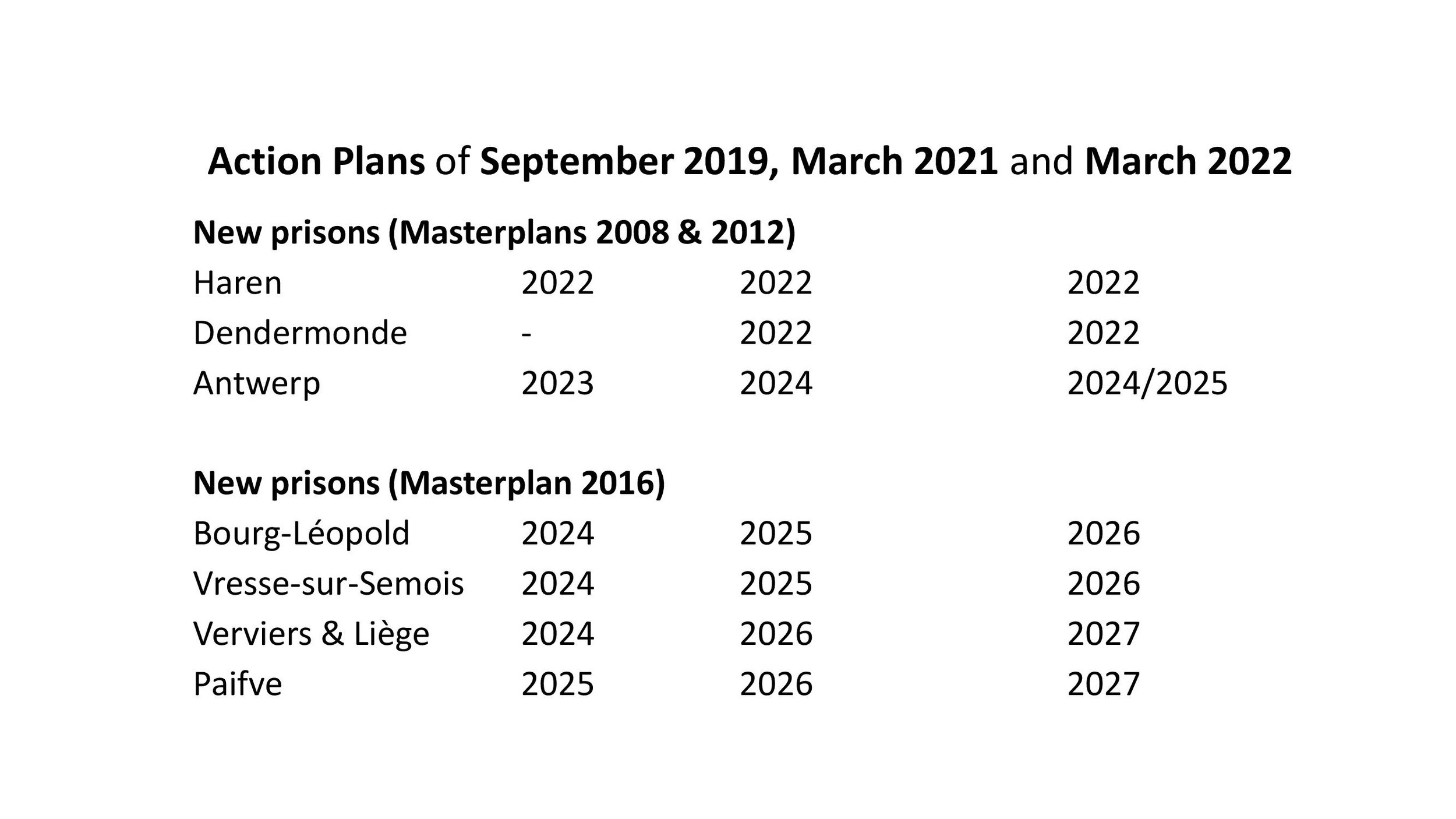
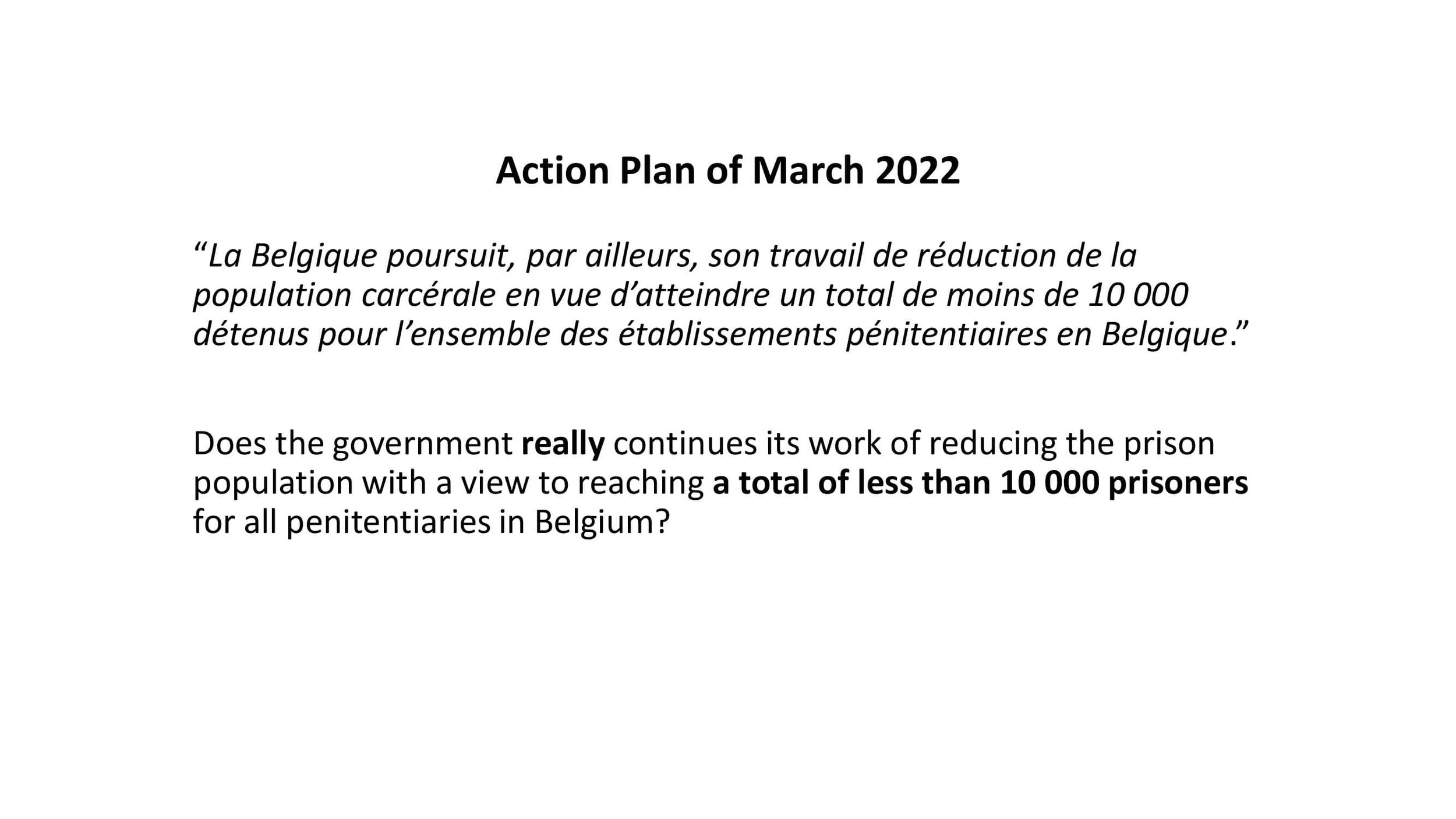
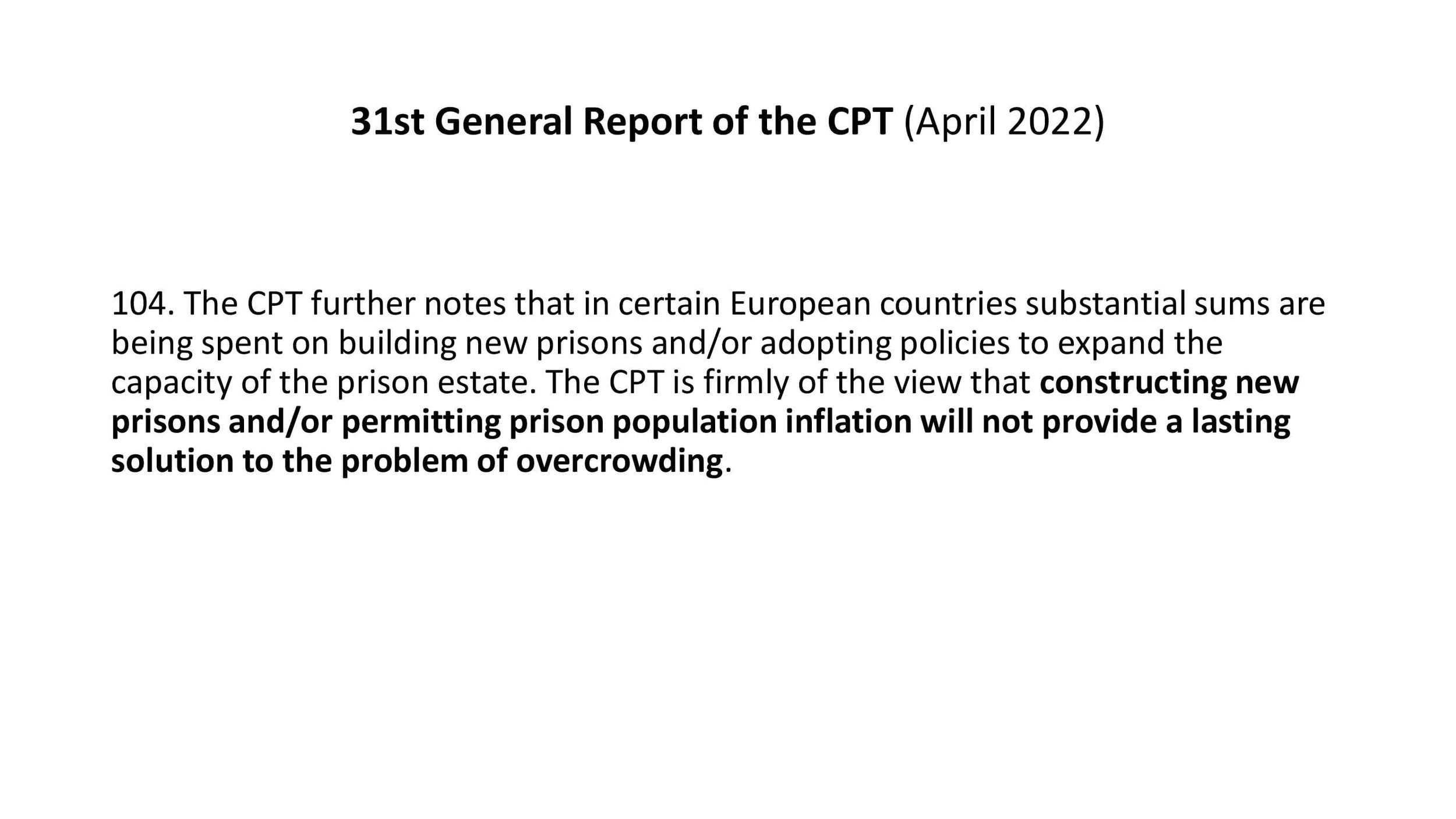
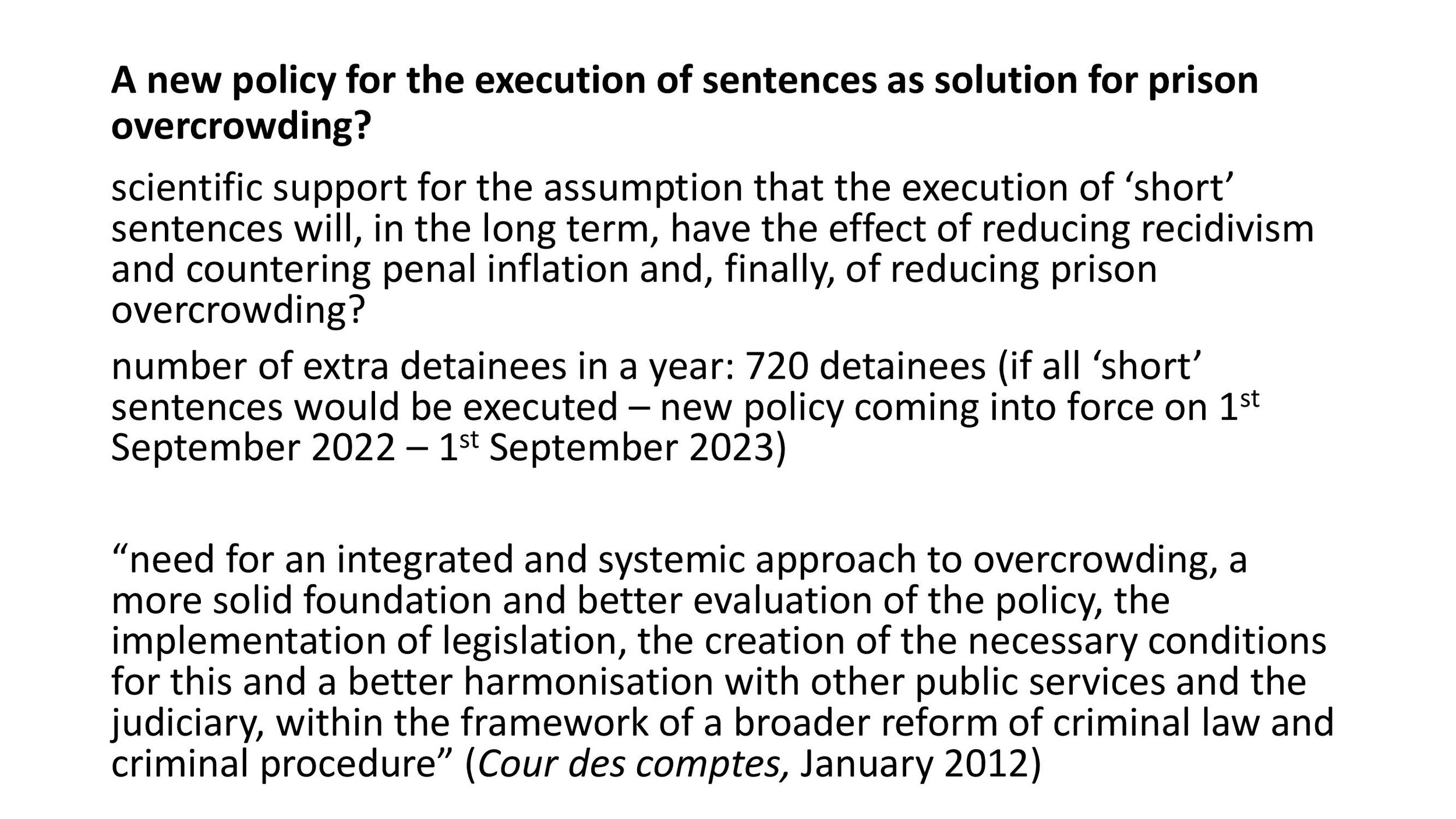
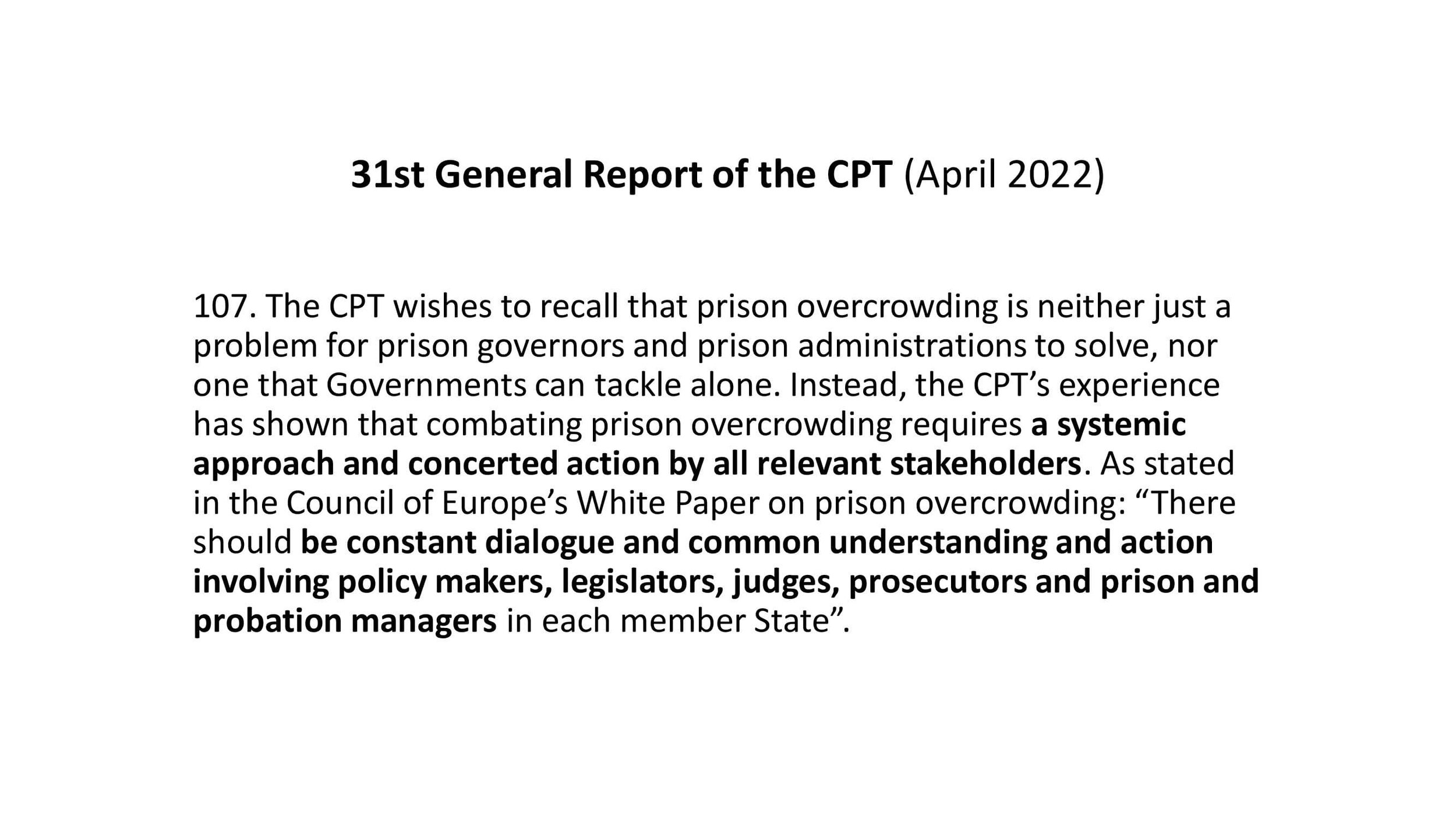
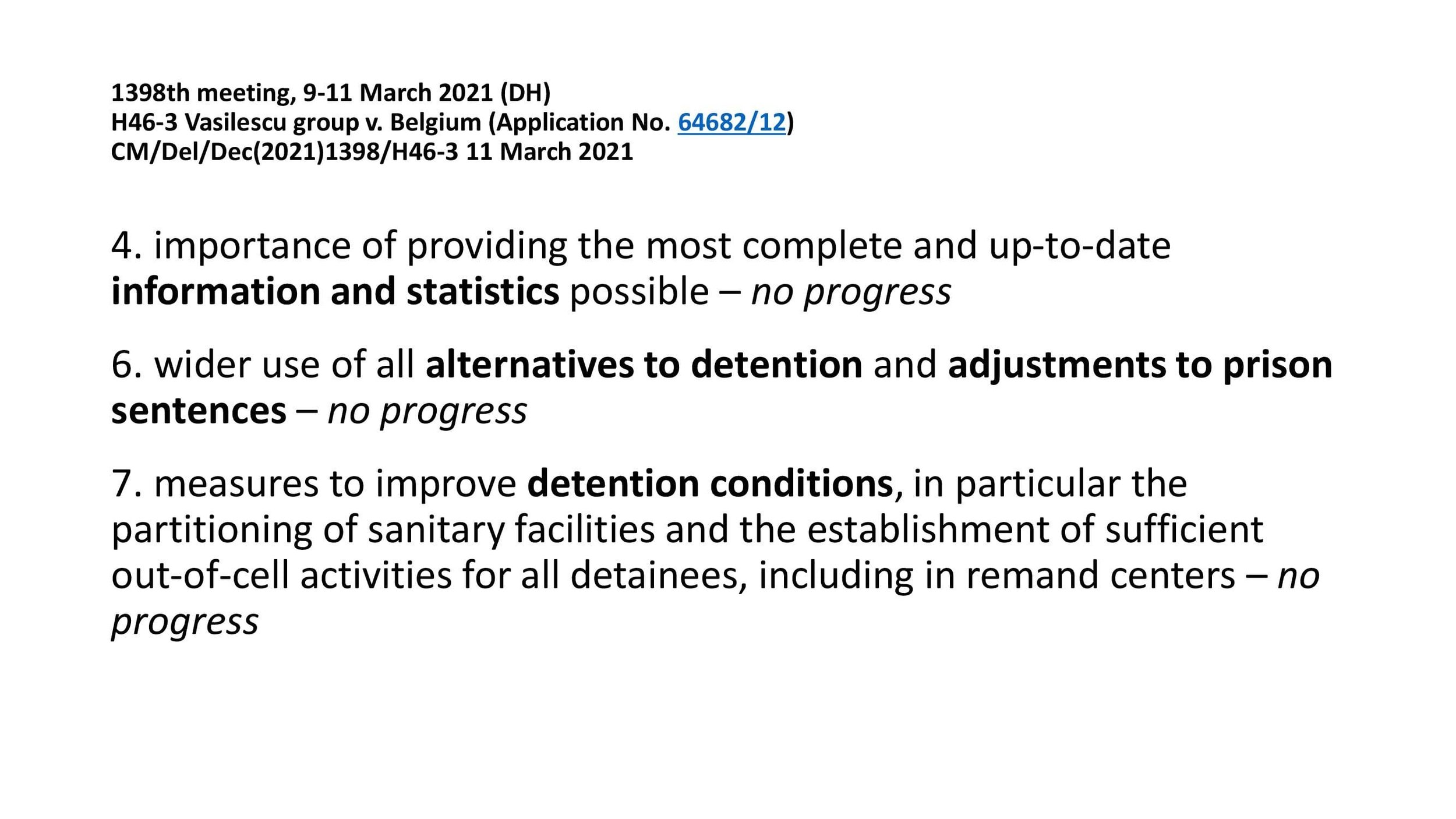
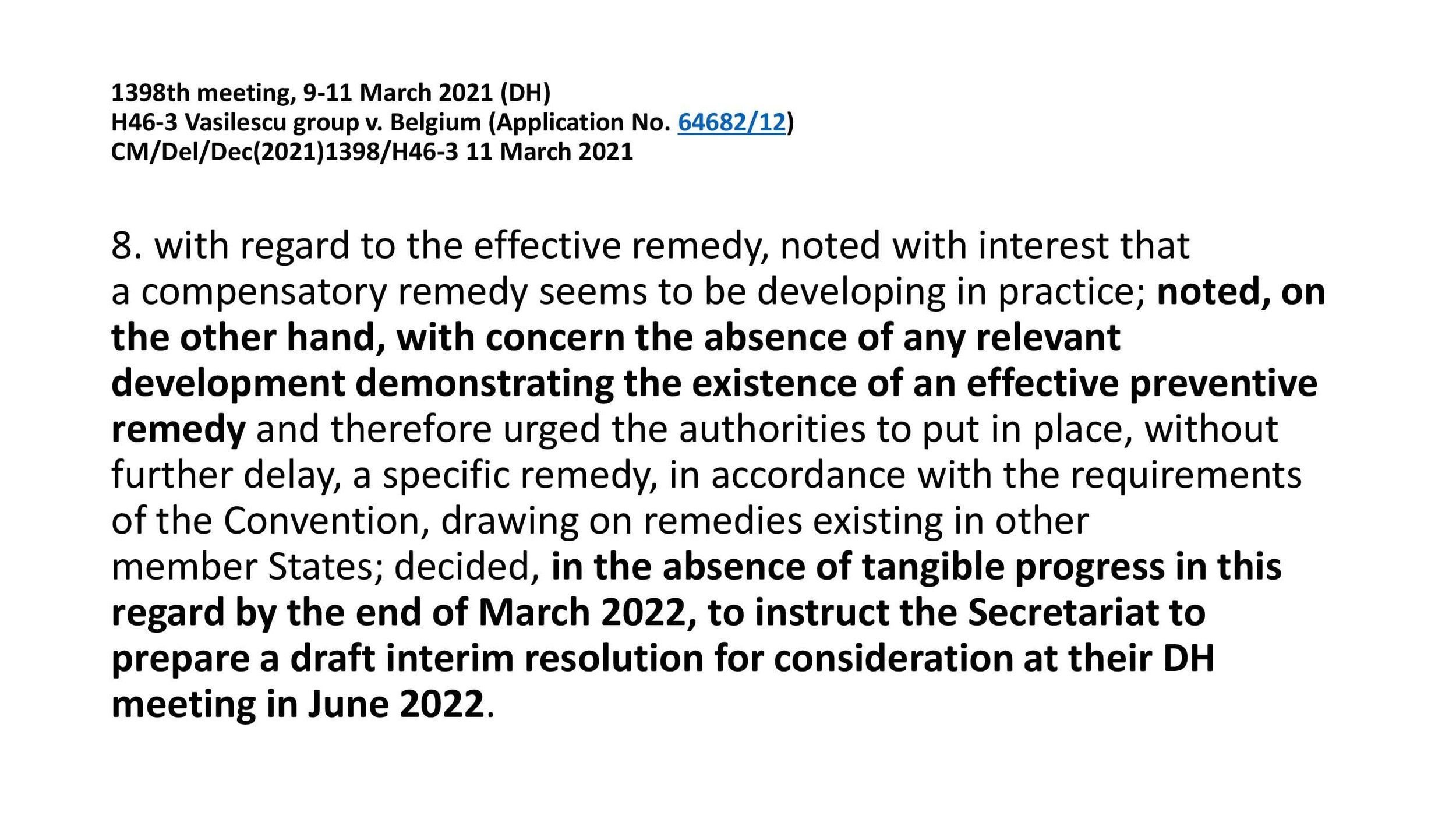
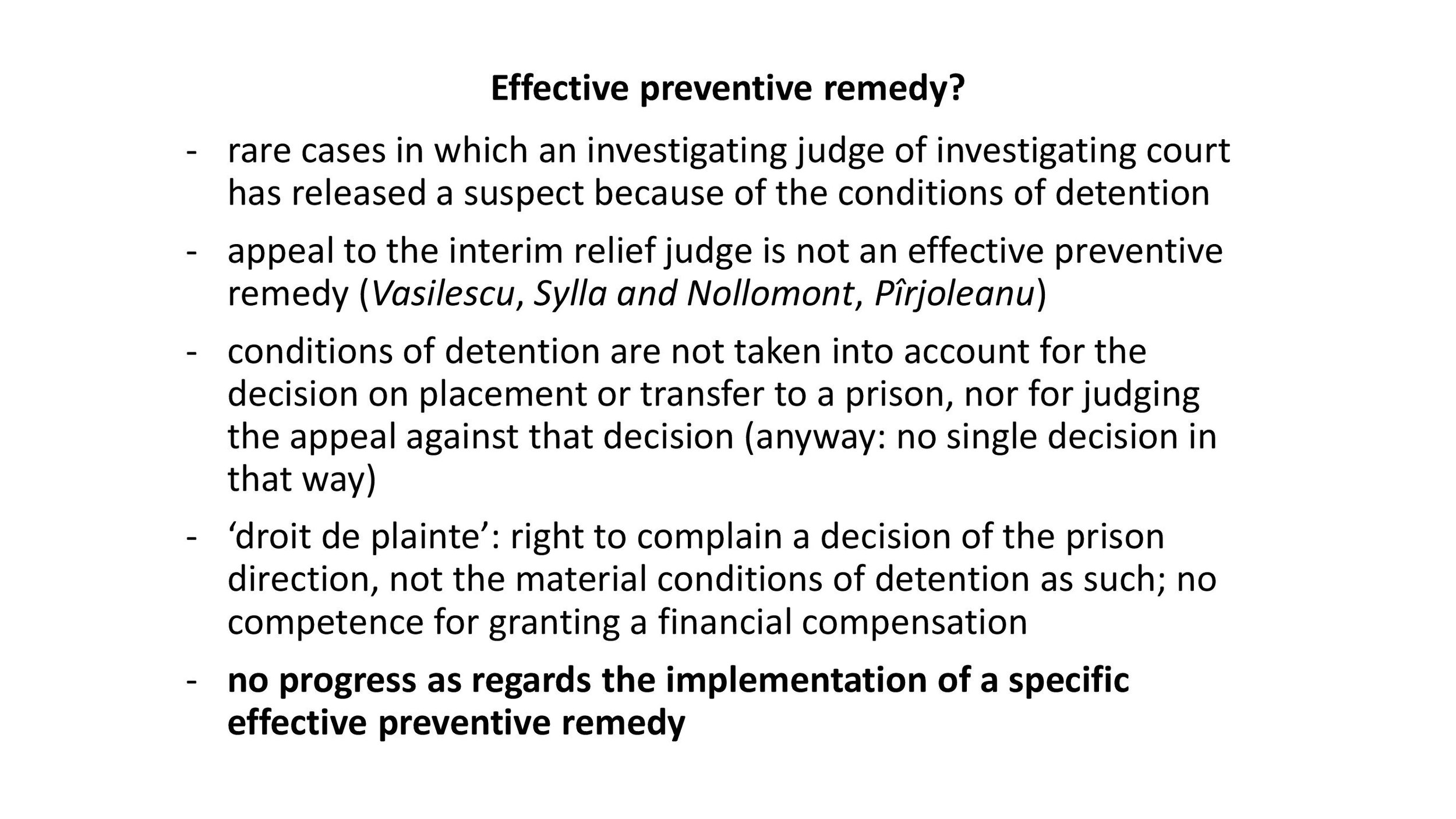
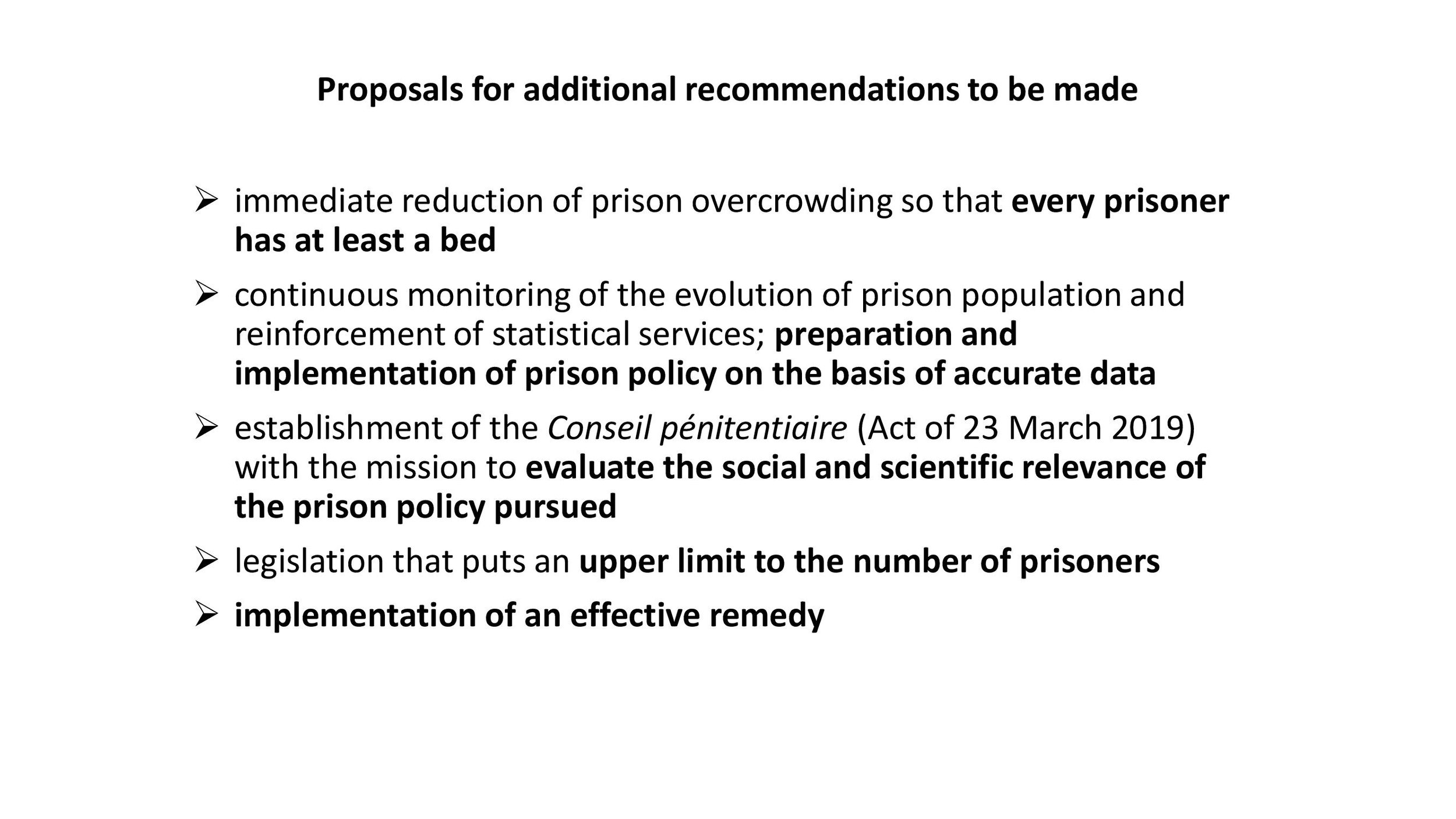
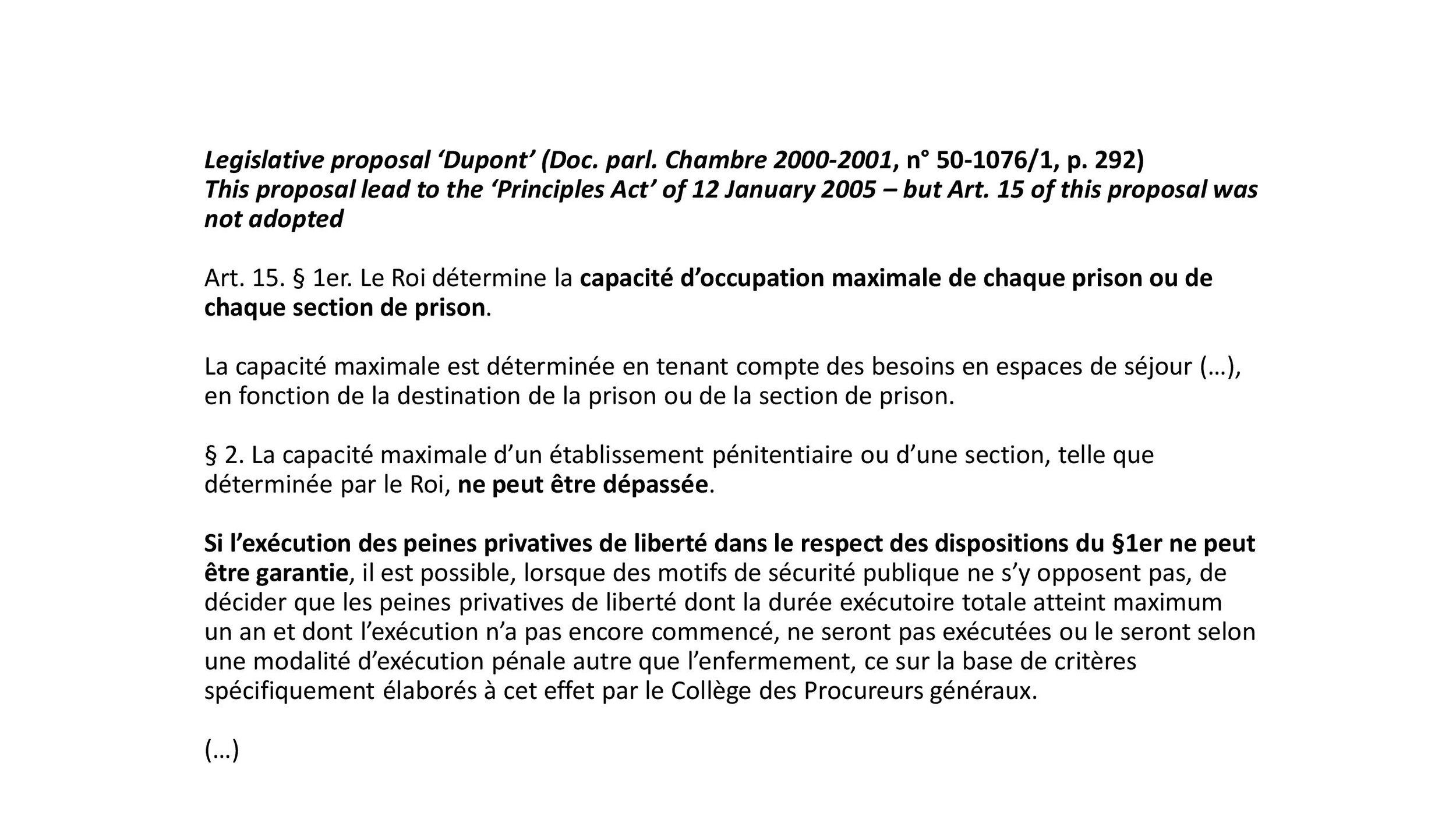
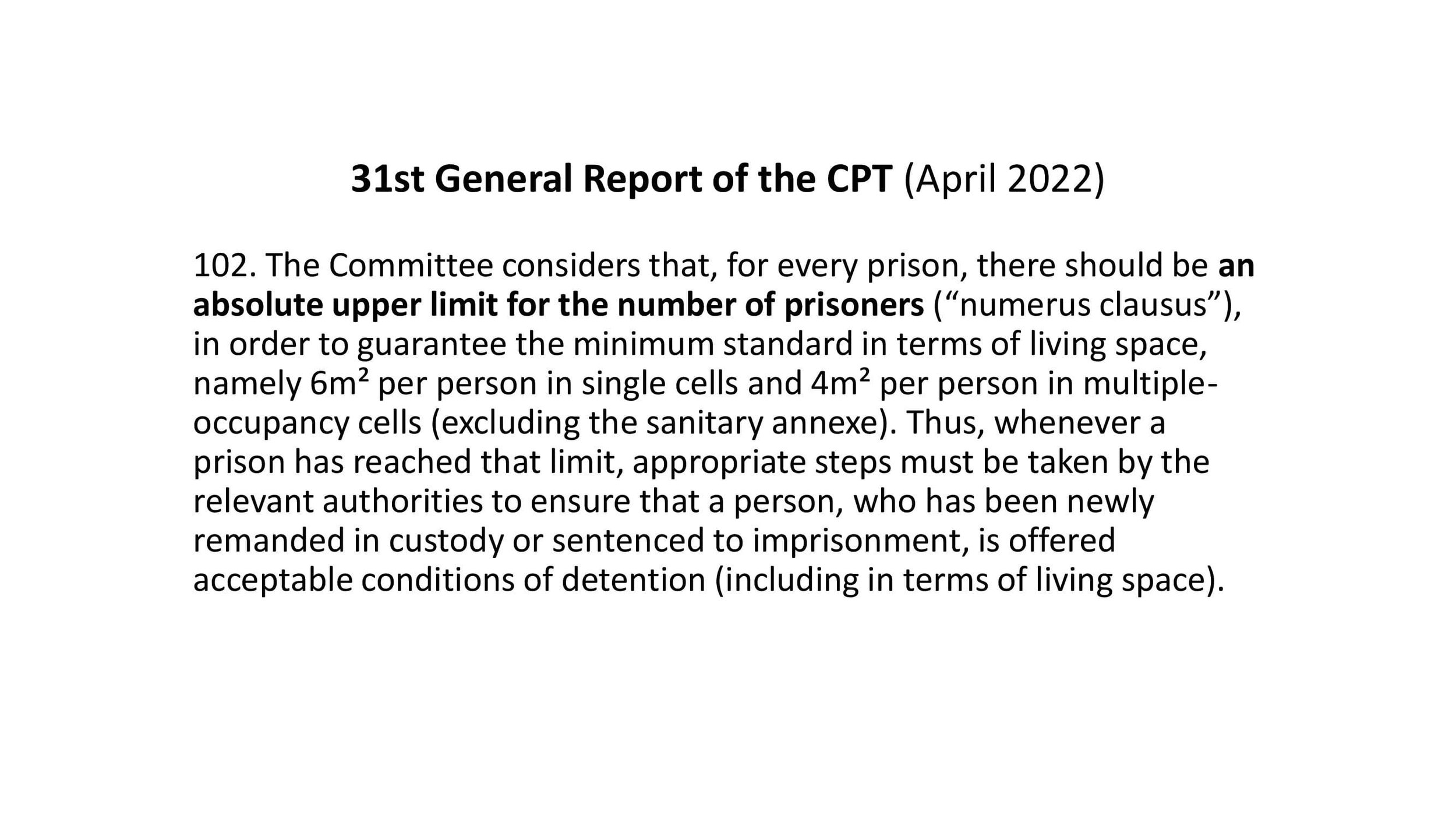
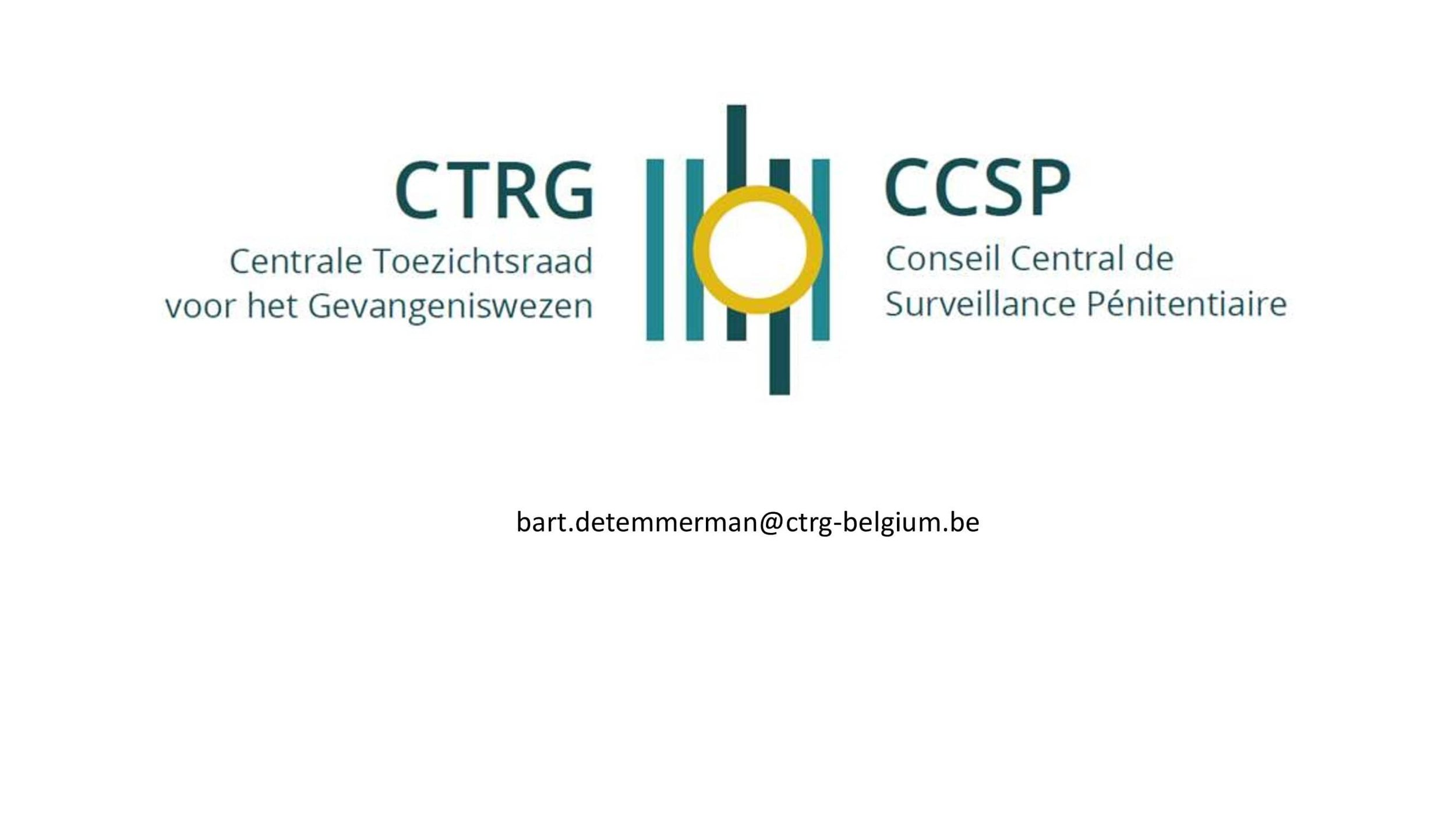
Overview of the case:
Between October 2011 and July 2012 (in the Merksplas and Antwerp prisons), there was insufficient living space; detainees slept on floor mattress; there was lack of privacy in the use of toilets and lack of toilet or access to running water for 60 days; exposure to passive smoking and reduced time out of cell. The European Court of Human Rights (ECtHR) found a violation of Article 3 of the European Convention of Human Rights.
CCSP reminded the participants of the key findings for the ECtHR:
§ 127 (…) The Court notes that the problems of prison overcrowding in Belgium, as well as the problems of hygiene and ageing prison infrastructure are of a structural nature and do not only concern the personal situation of the applicant. (…)
(…) none of the remedies invoked by the Belgian Government could be considered effective remedies to be exhausted.
§ 128 In this context, the Court recommends that the Belgian State consider the adoption of general measures. On the one hand, measures should be taken to guarantee detainees conditions of detention in accordance with Article 3 of the Convention. On the other hand, detainees should have recourse to prevent the continuation of an alleged violation or to enable the person concerned to obtain an improvement in his conditions of detention.
CCSP summarised to participants the last Action Report from the Government (March 2022):
The authorities indicate that they must continue to adopt measures and conduct reflections in order to put an end to prison overcrowding and to ensure conditions of detention in accordance with international standards.
The authorities indicate that, regarding remand centers, they must continue to conduct reflections in order to better distribute the detainees.
Recommendations to the CM in relation to the Vasilescu v. Belgium judgment:
immediate reduction of prison overcrowding so that every prisoner has at least a bed.
continuous monitoring of the evolution of prison population and reinforcement of statistical services; preparation and implementation of prison policy on the basis of accurate data.
establishment of the Conseil pénitentiaire (Act of 23 March 2019) with the mission to evaluate the social and scientific relevance of the prison policy pursued
legislation that puts an upper limit to the number of prisoners.
implementation of an effective remedy.
Please see the slides for the full Briefing.
Relevant Documents (French)
CM Decisions
NGO/NHRI Communications
Khadija Ismayilova v. Azerbaijan & Khadija Ismayilova v. Azerbaijan (no. 2)
Overview of the case:
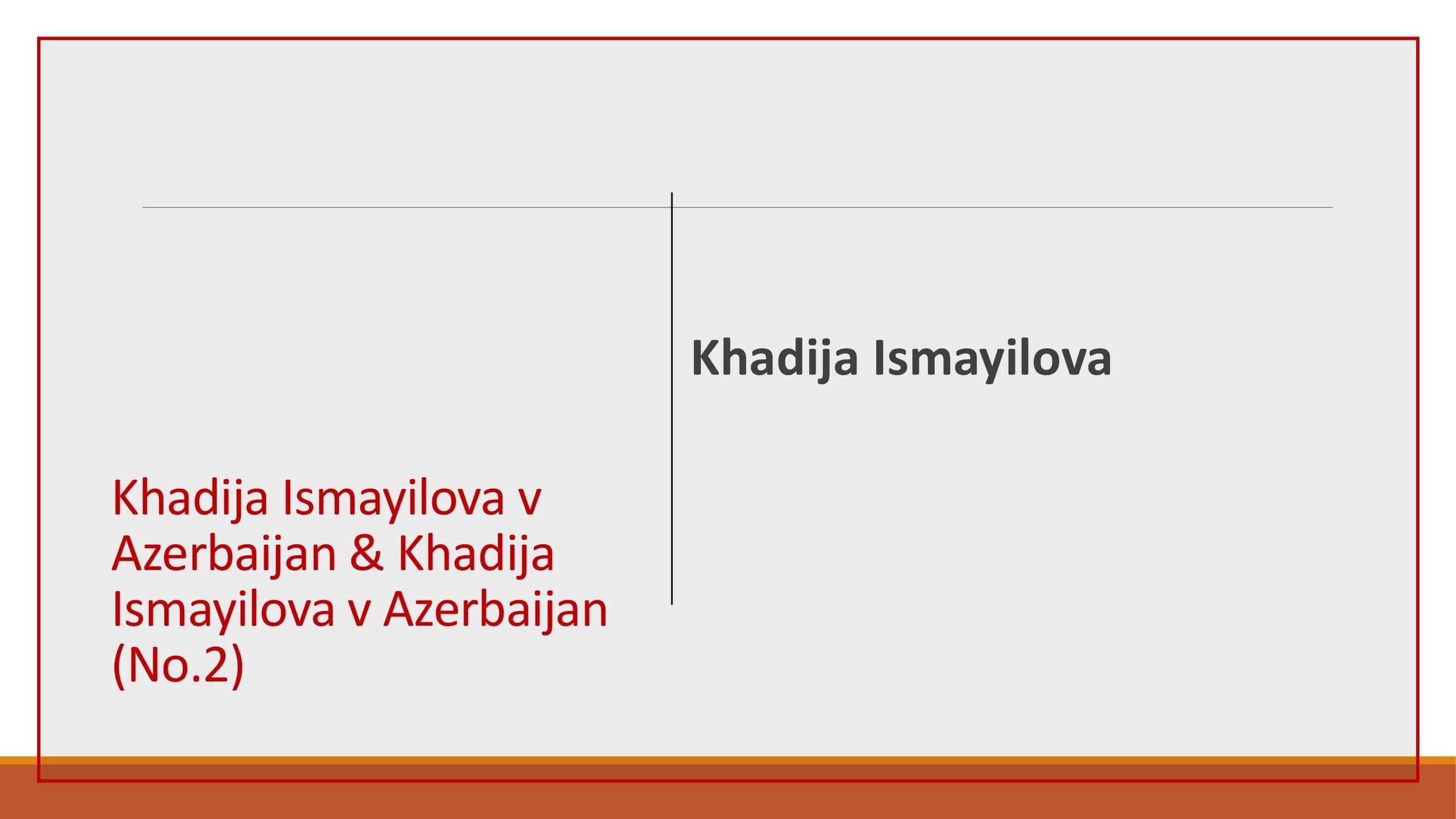
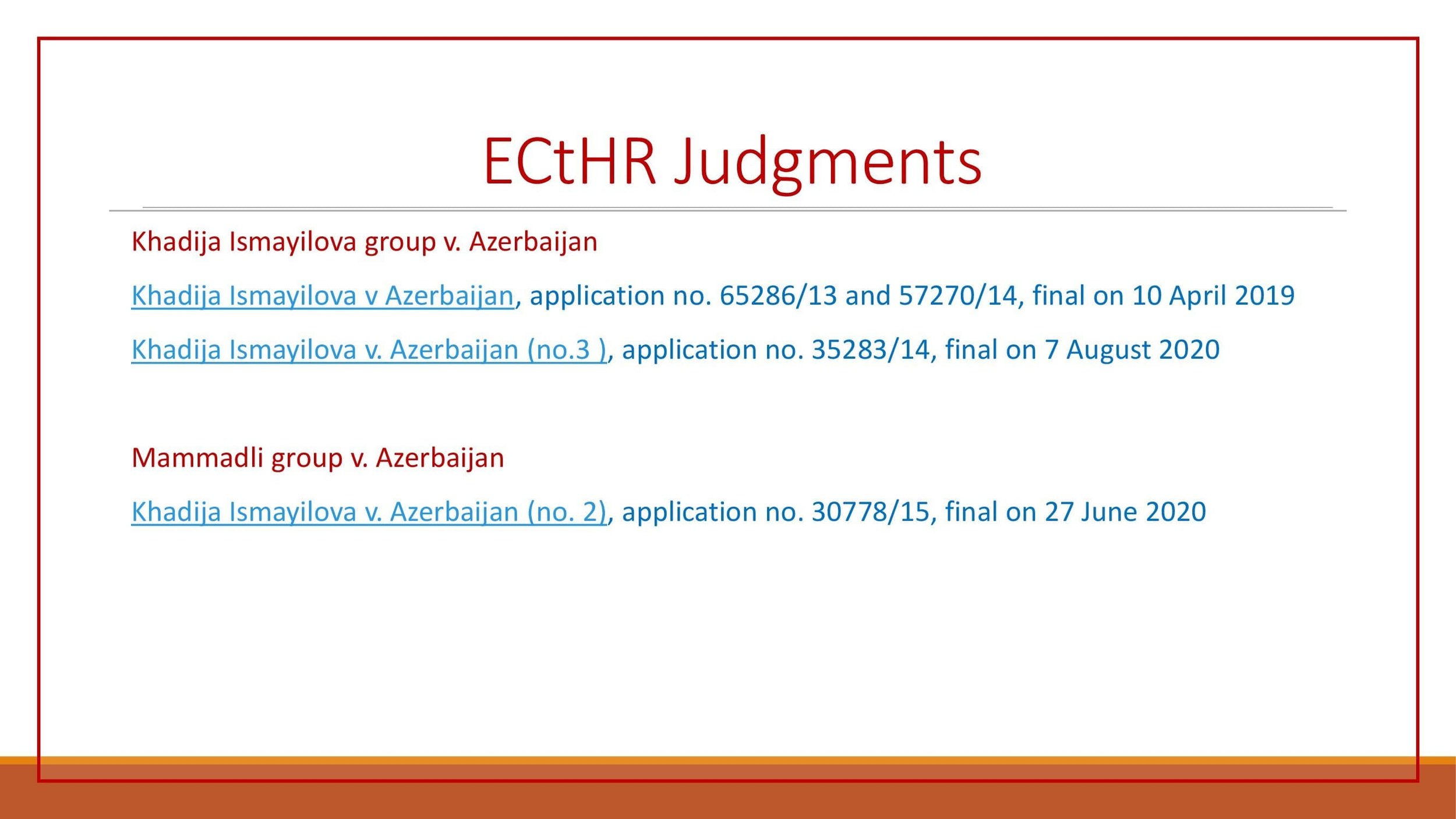
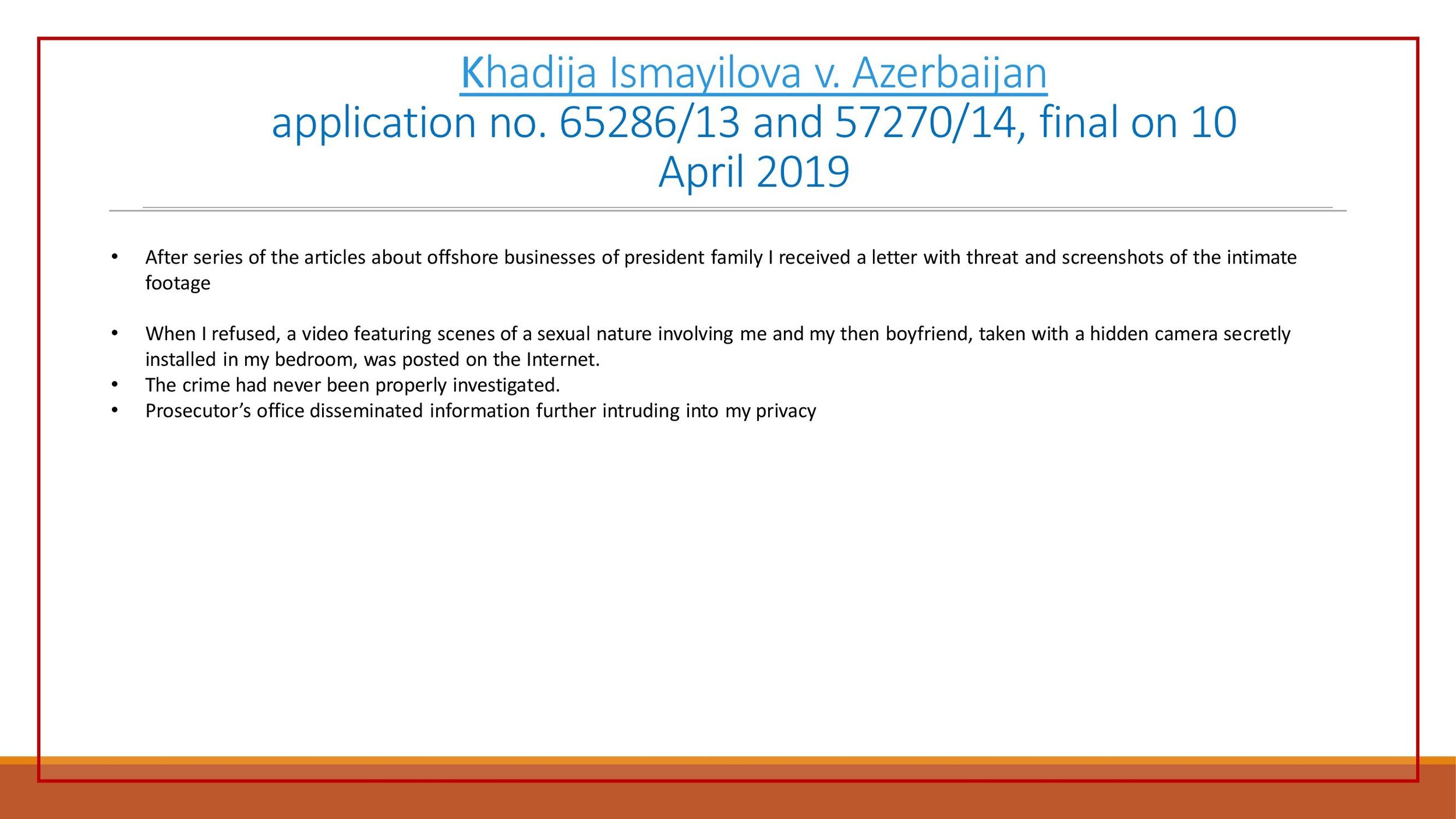
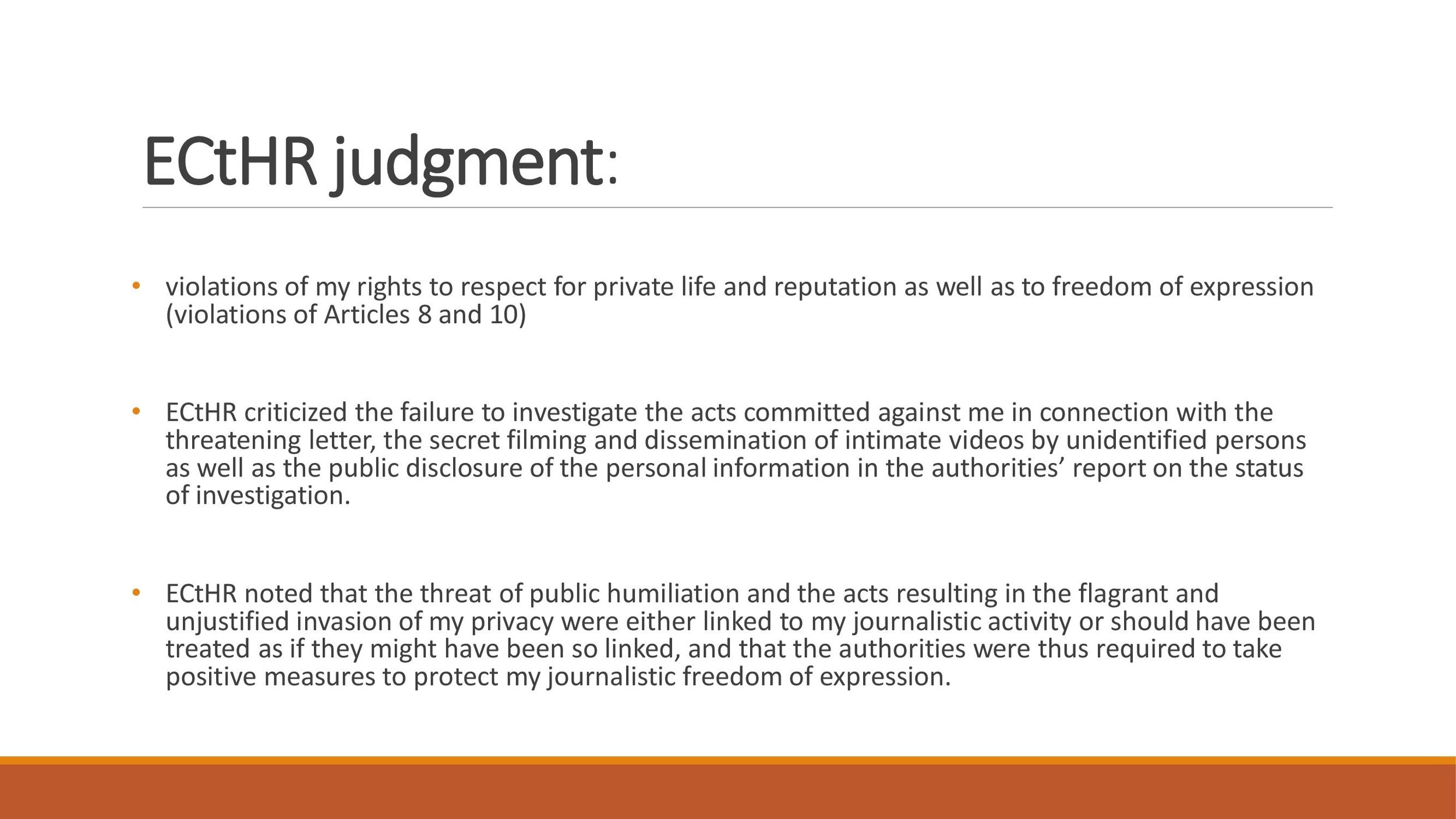
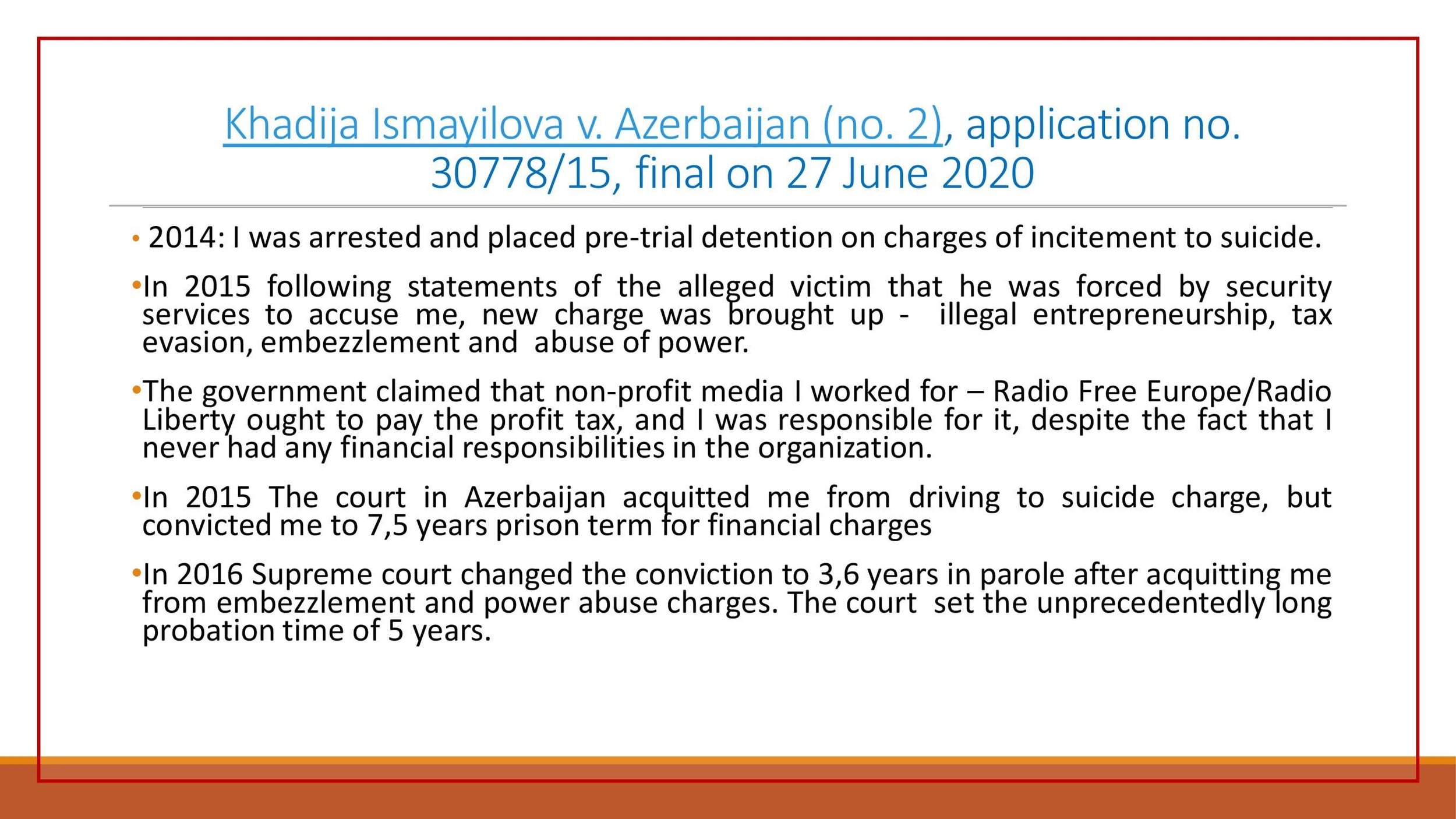
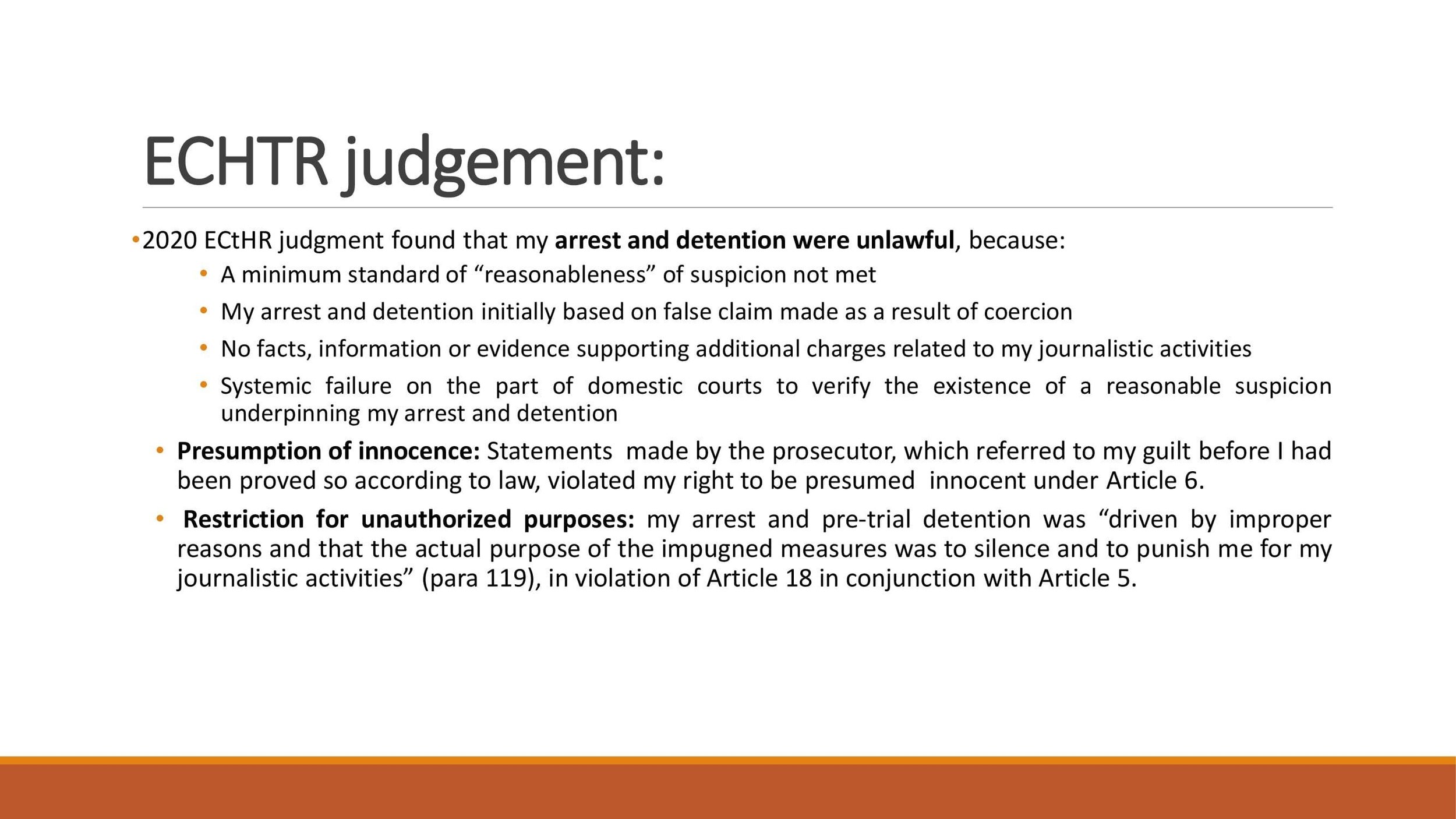
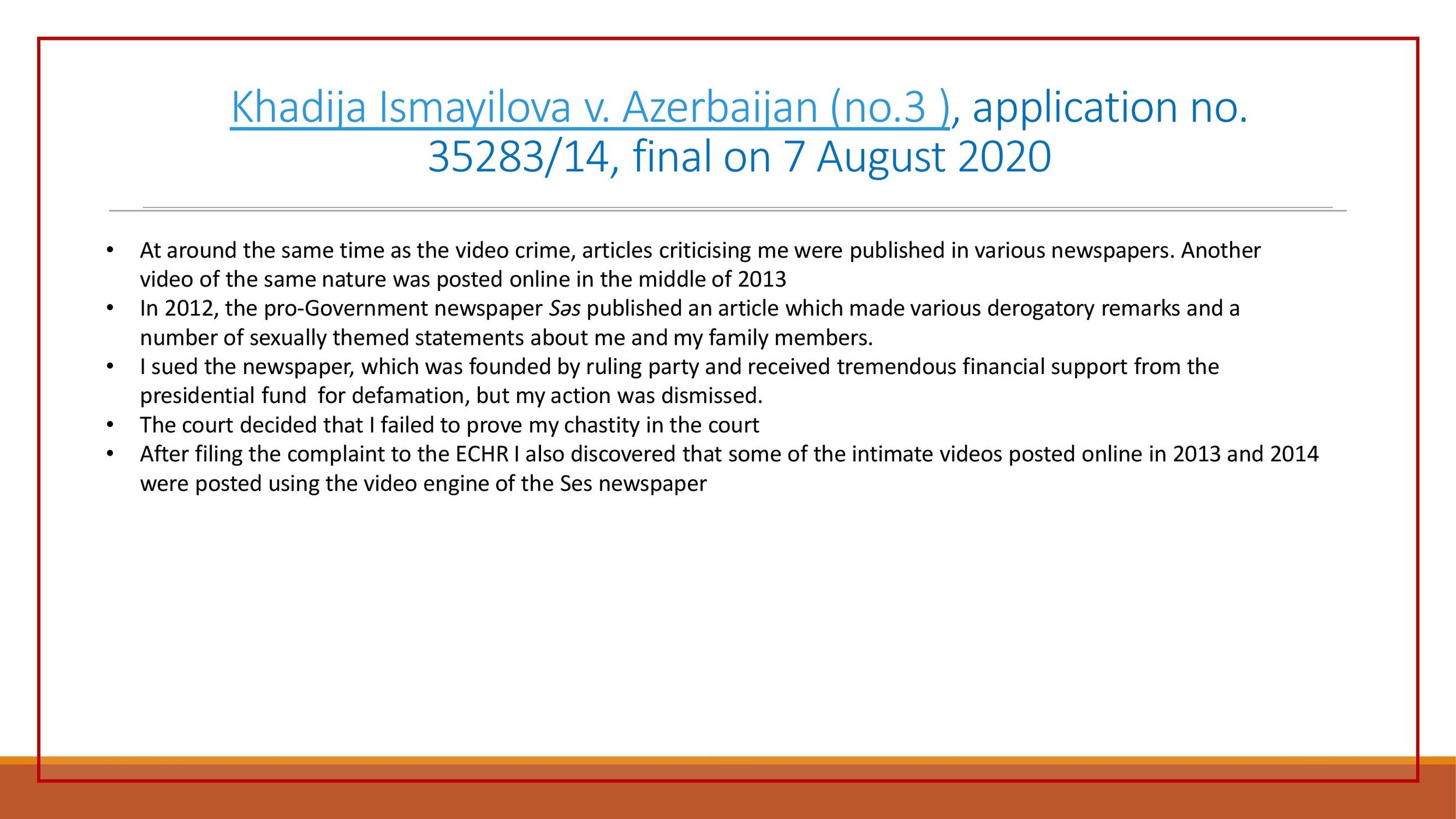
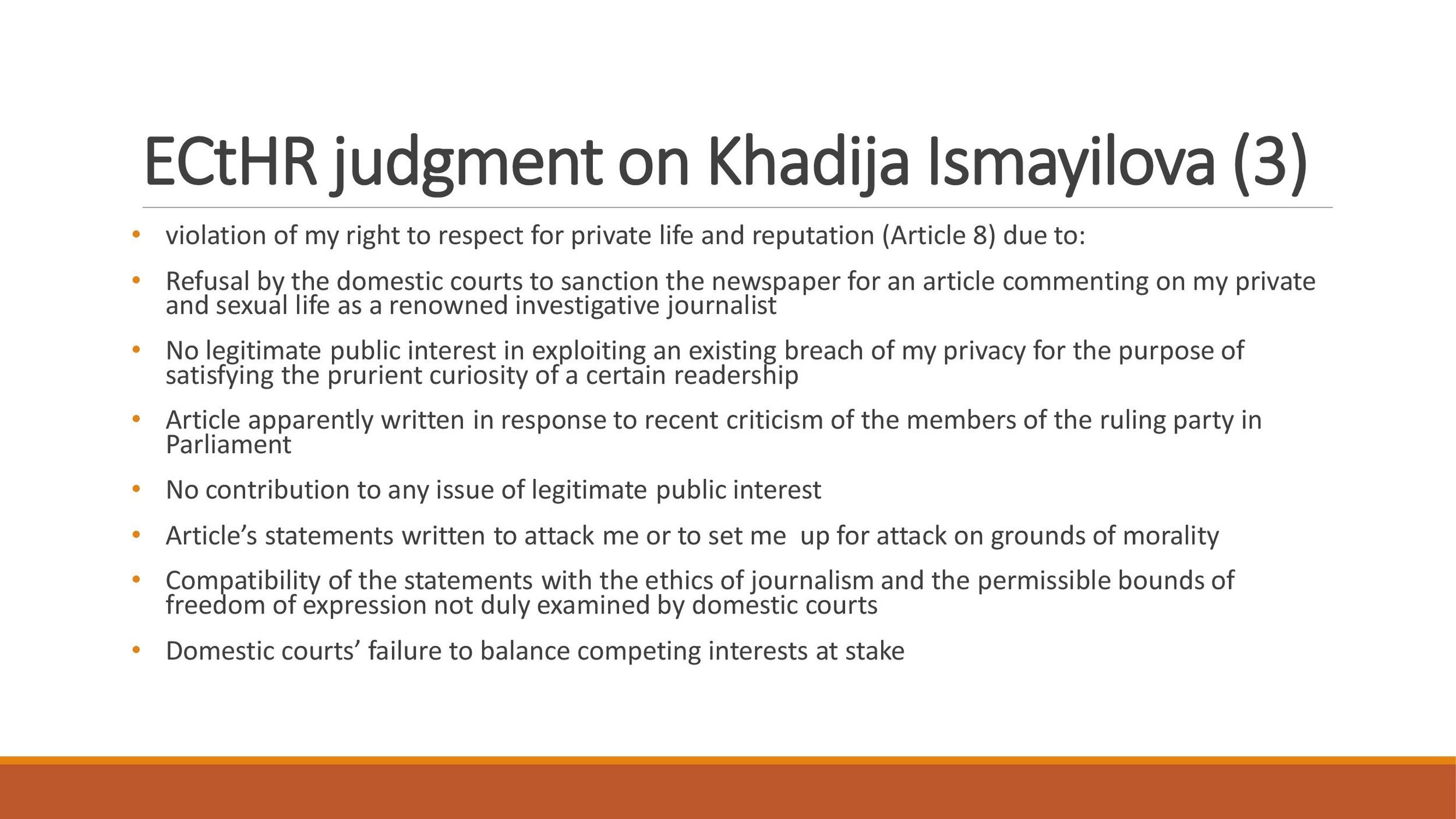
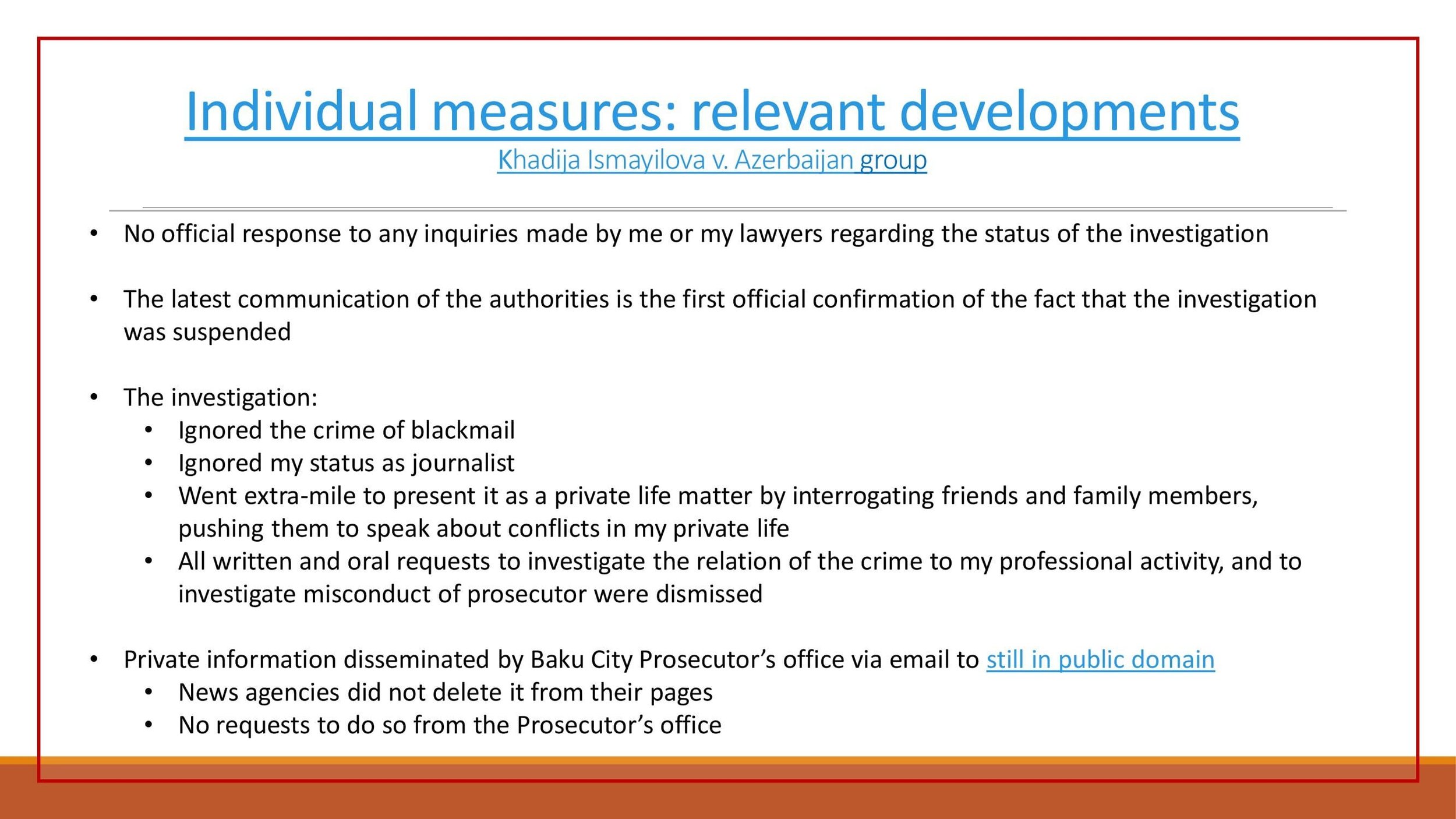
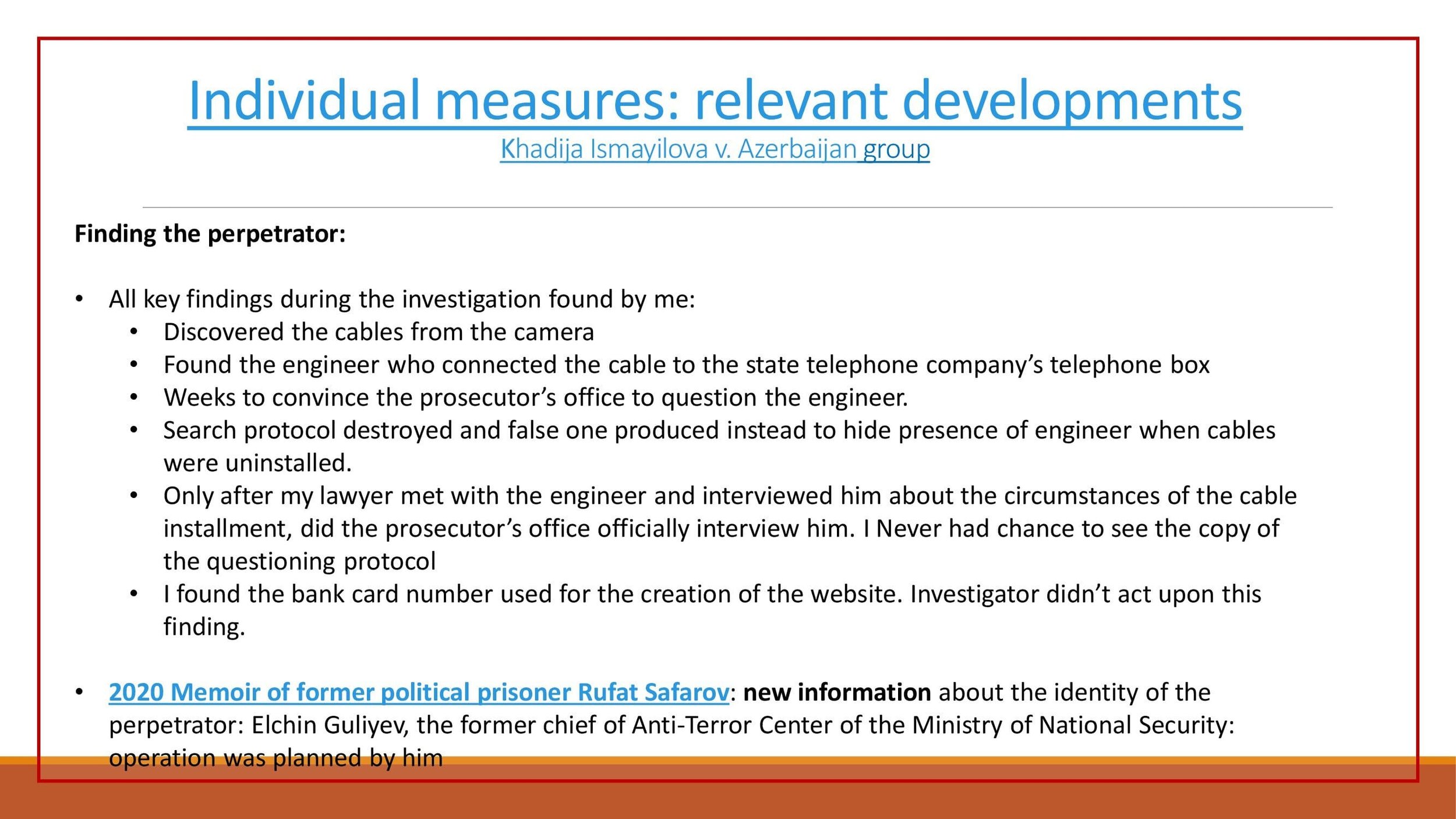
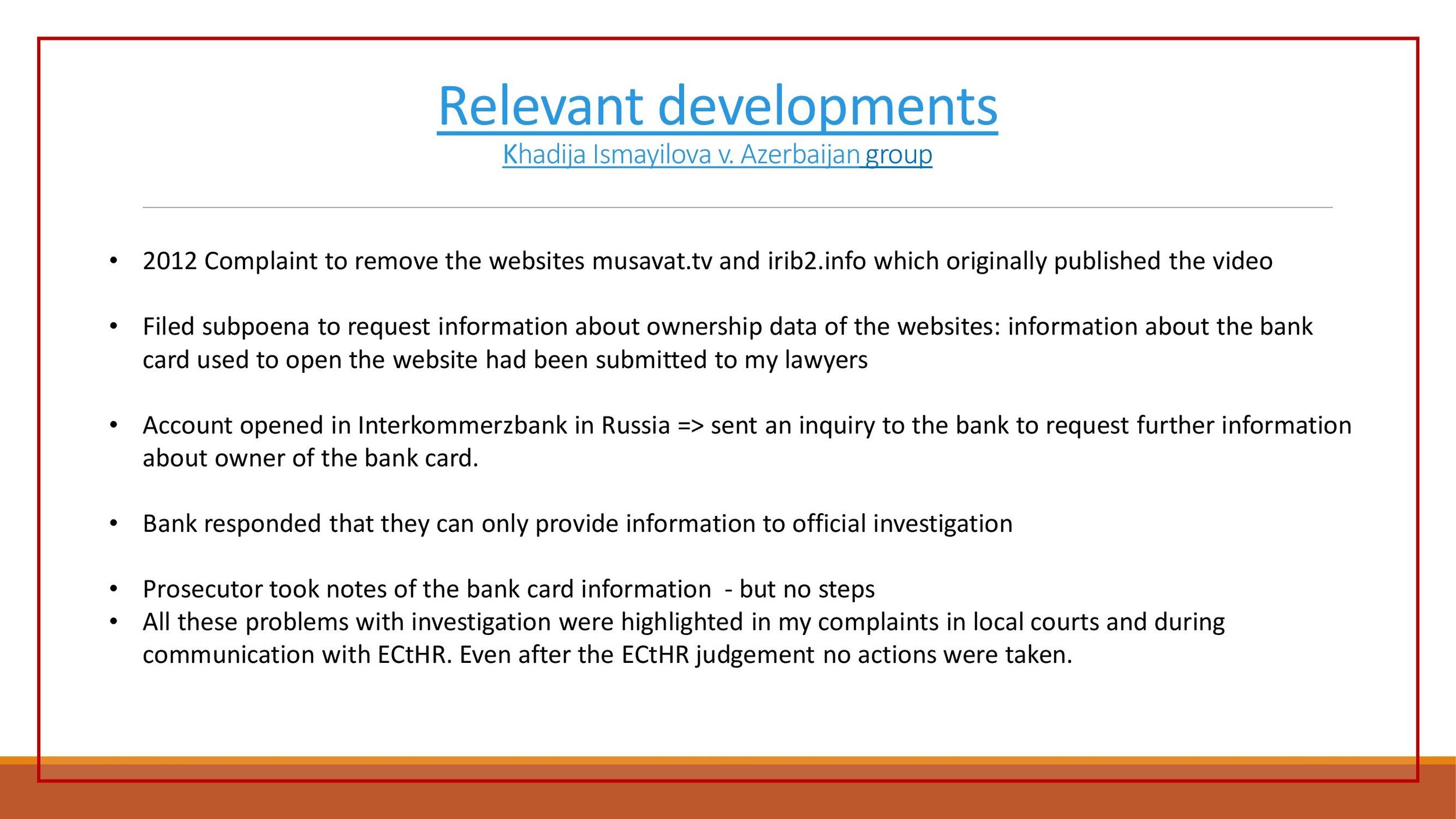
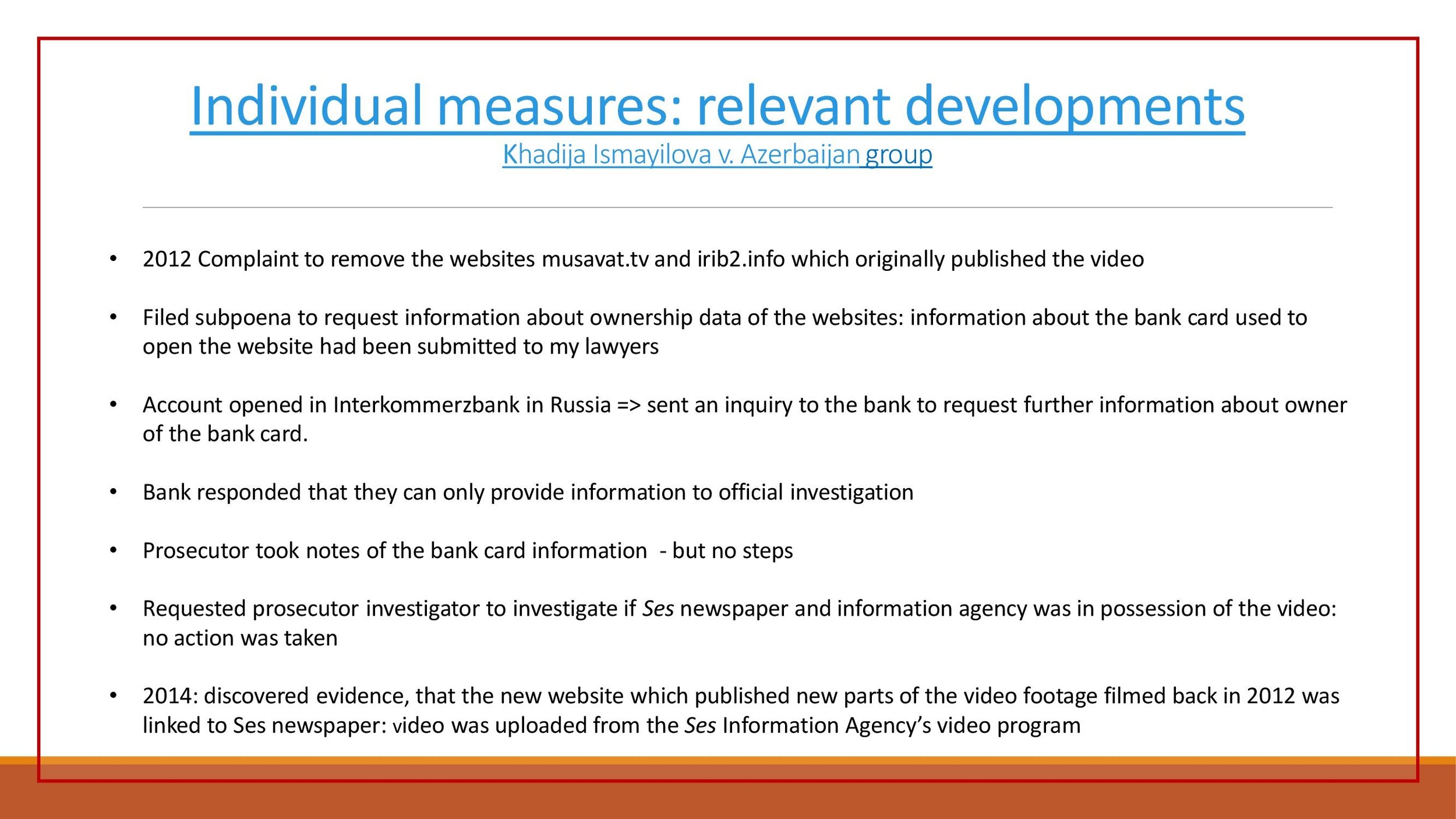
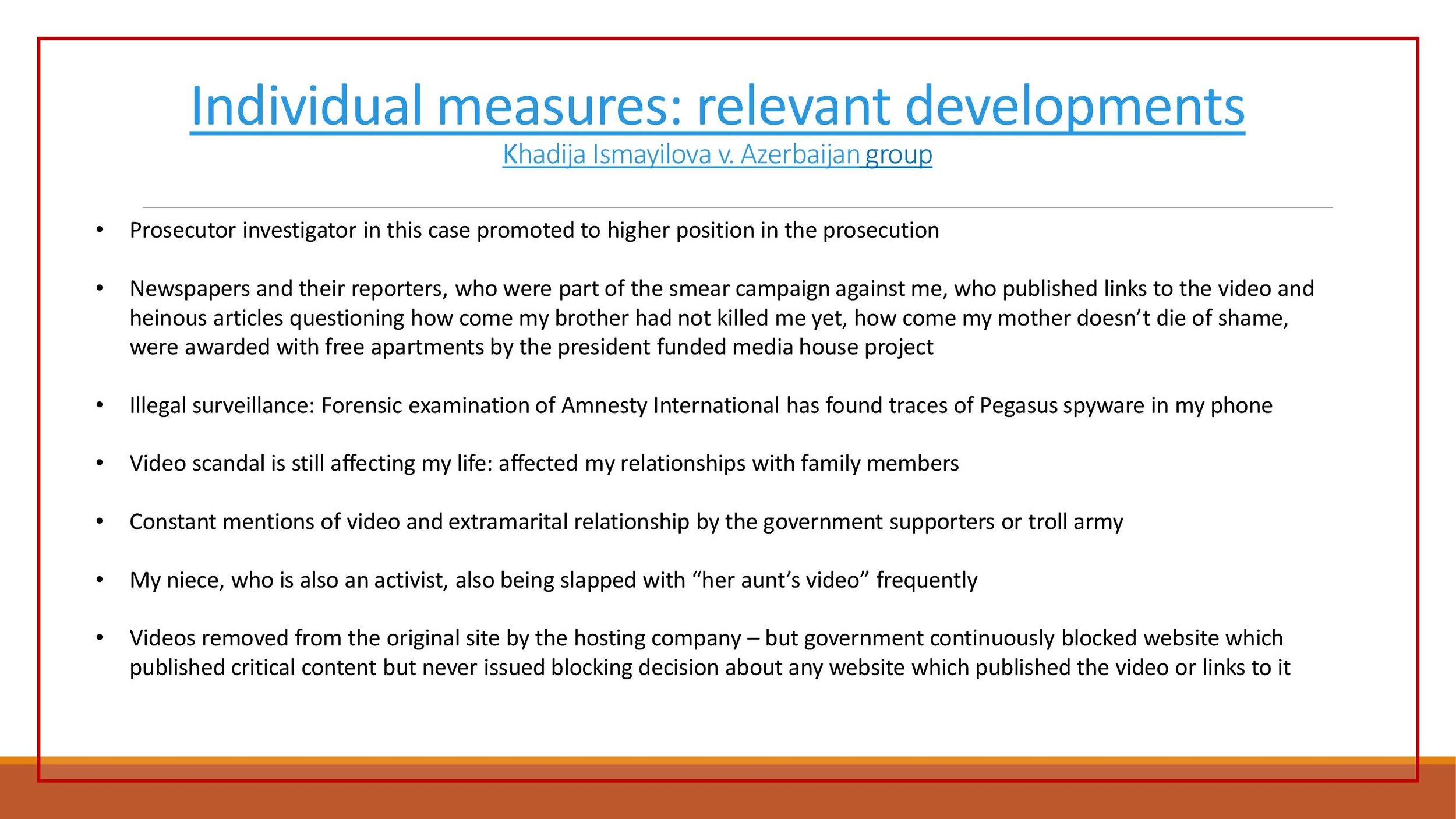
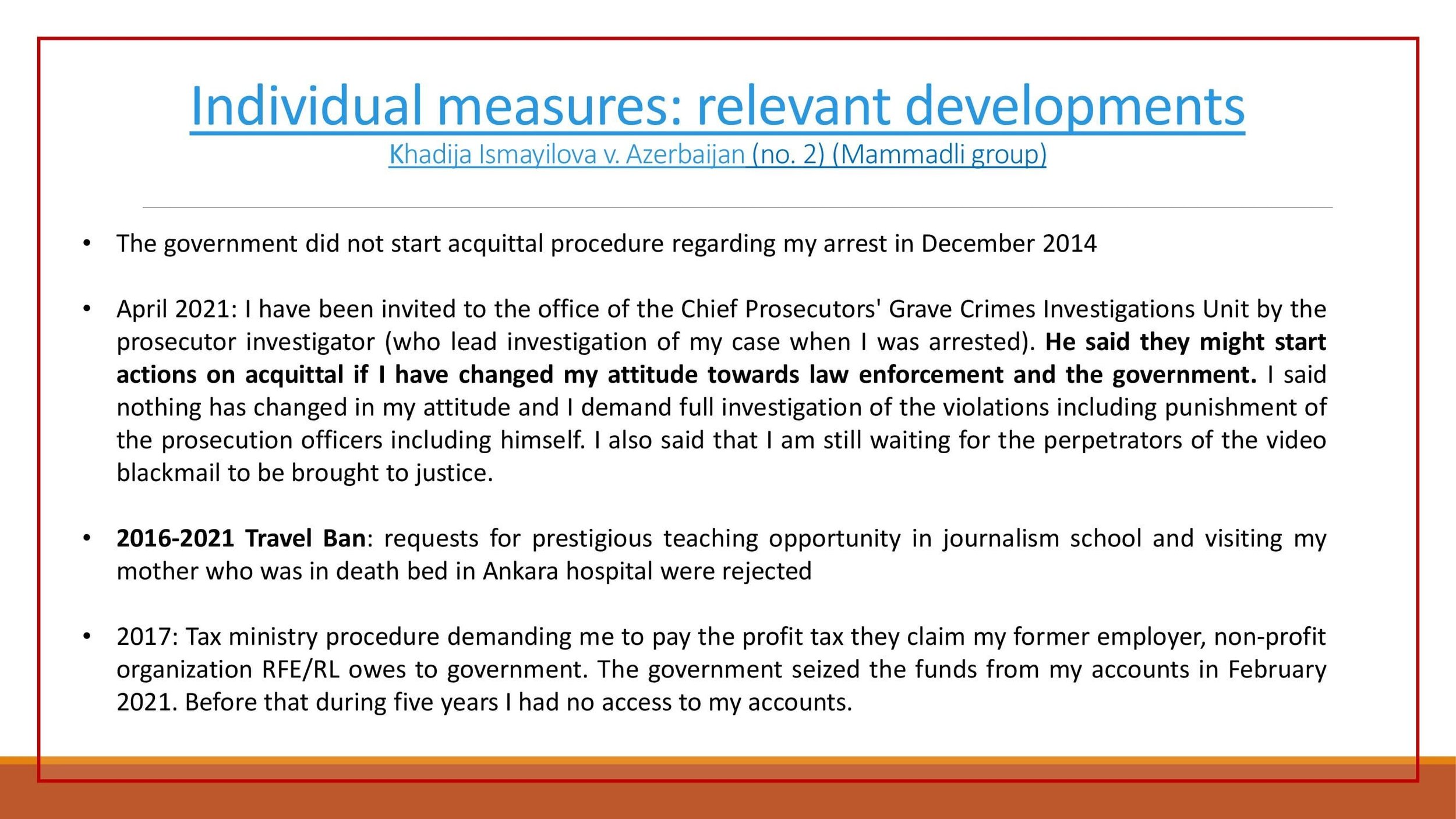
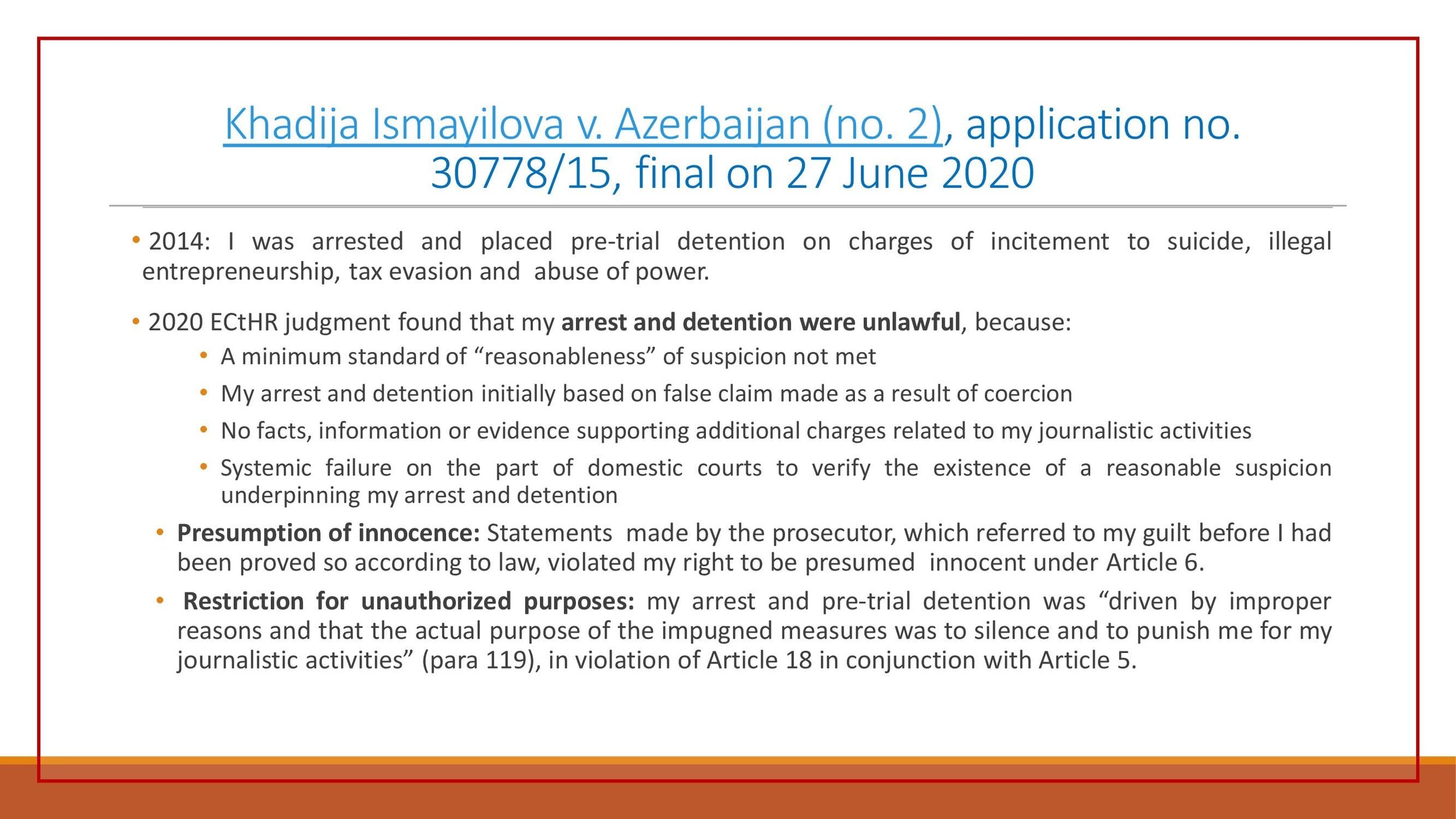
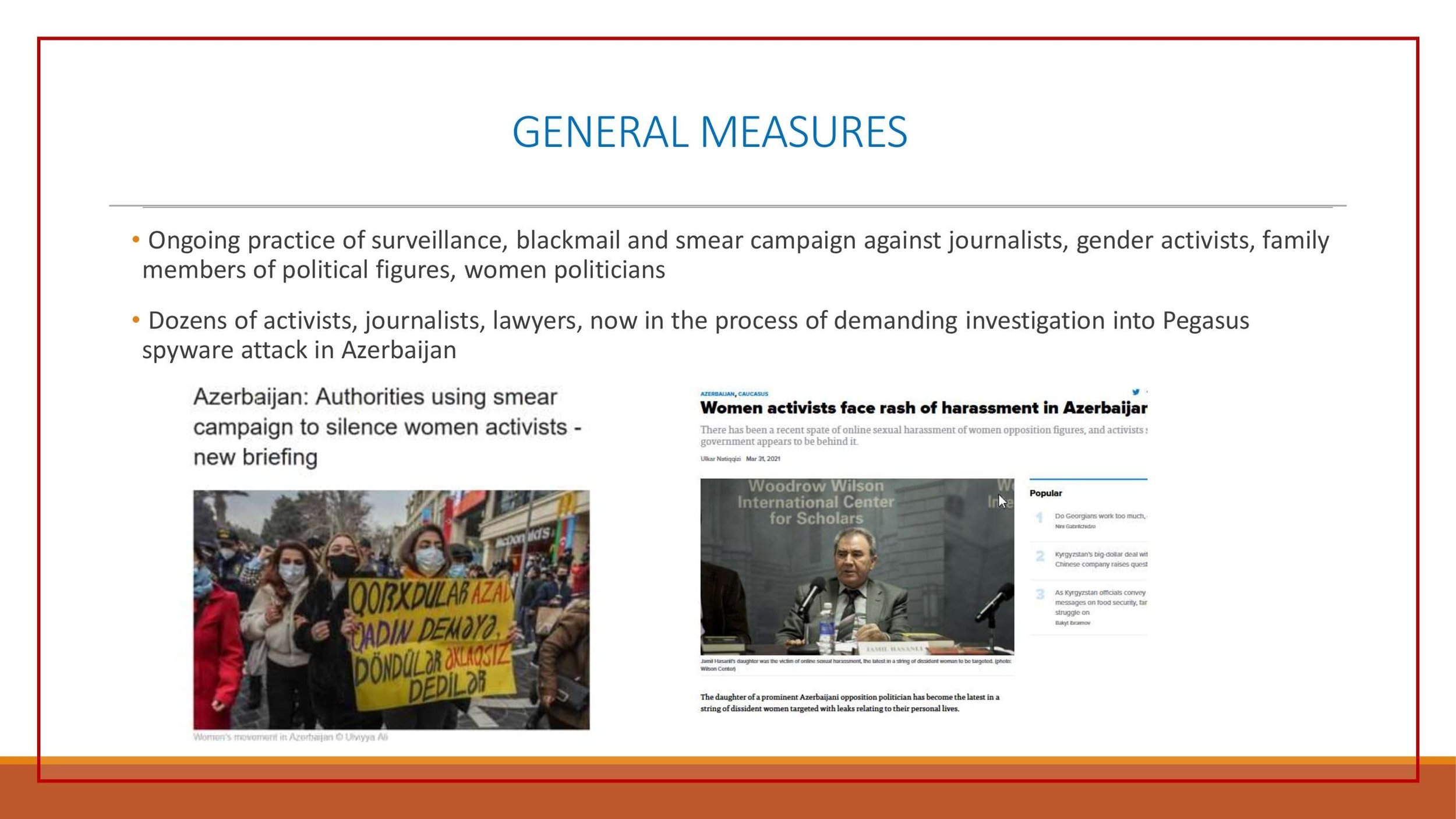
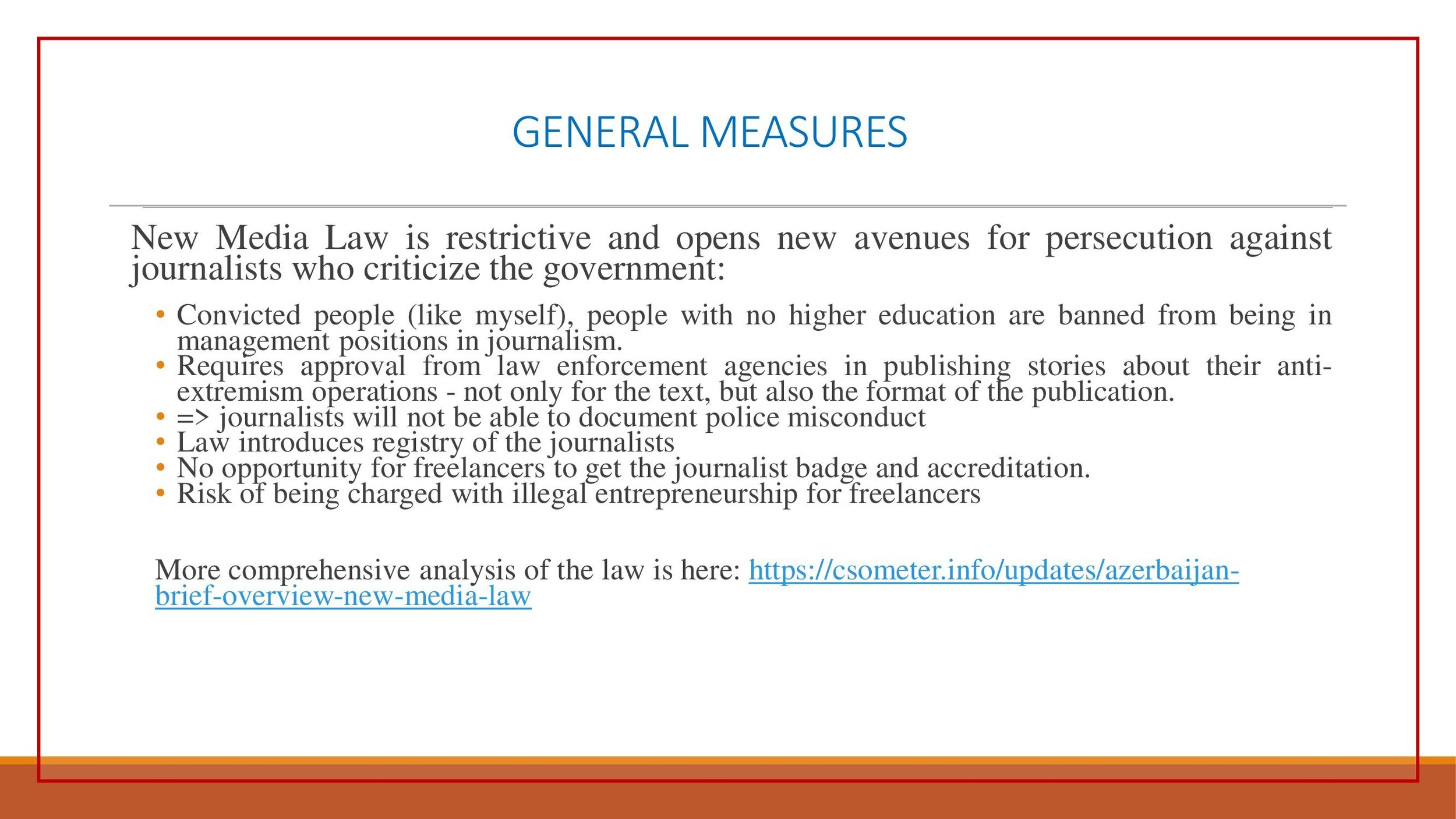

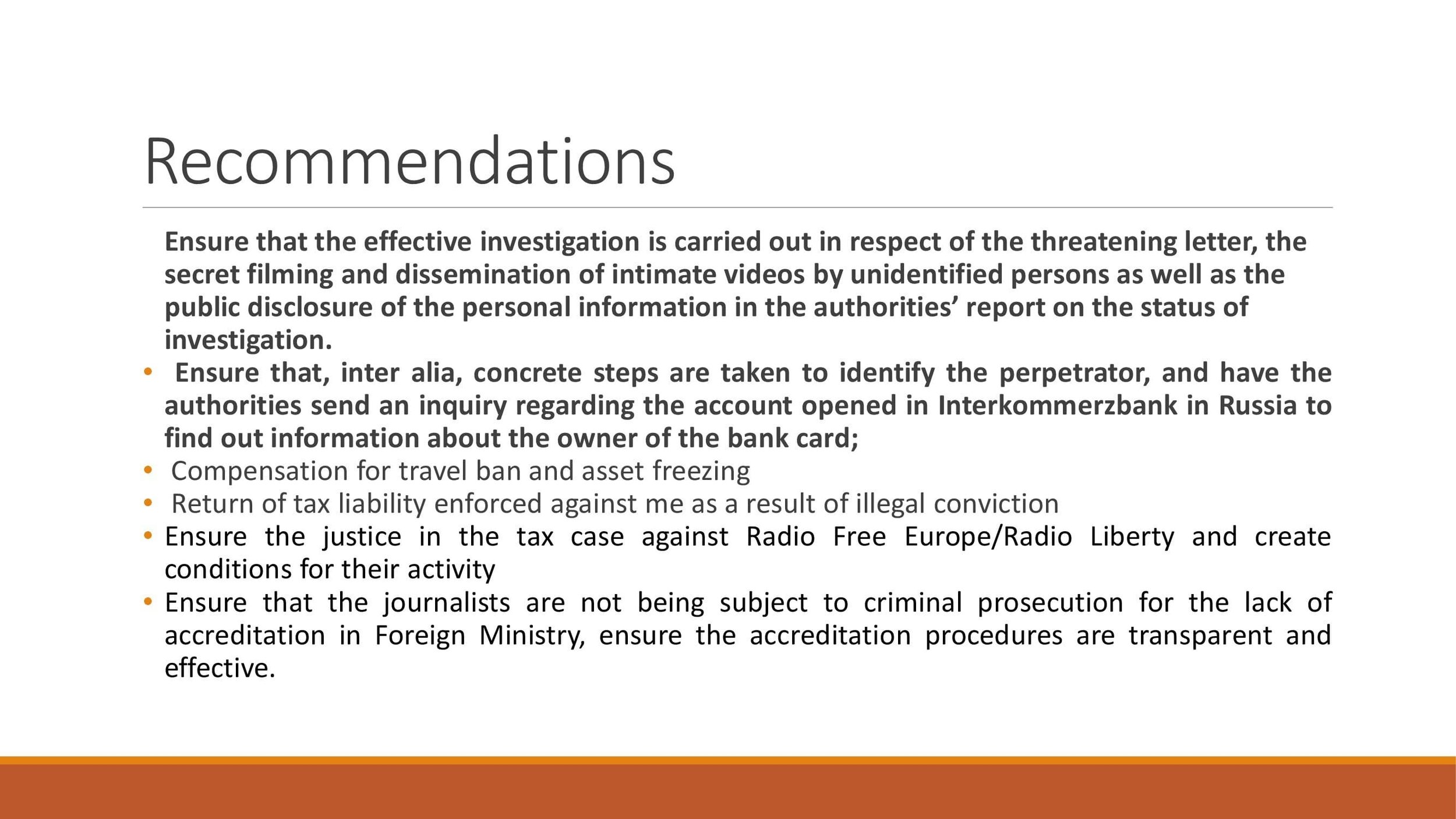
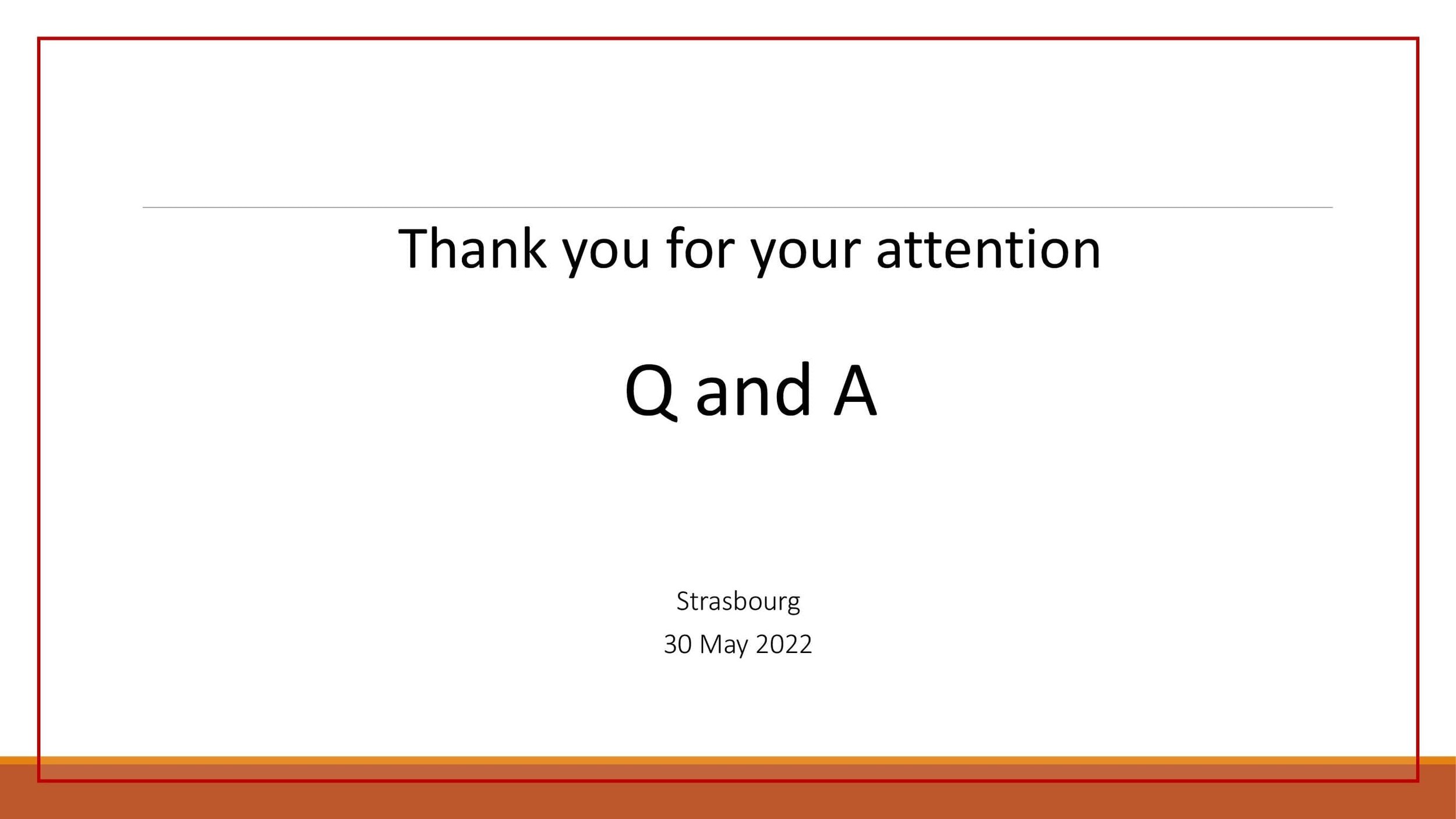
This case concerns violations, between 2012 and 2014, of the rights of the applicant, a renowned investigative journalist, to respect for private life and reputation as well as to freedom of expression (violations of Articles 8 and 10). In the context of the present case, the applicant, after having published and contributed to articles criticising the alleged involvement of the President’s daughters in various commercial ventures, was sent a letter threatening her with public humiliation if she did not stop her investigative reporting. When she refused, a video featuring scenes of a sexual nature involving the applicant and her then boyfriend, taken with a hidden camera secretly installed in her bedroom, was posted on the Internet. Around the same time, newspapers ran stories accusing her of anti-government bias and immoral behaviour.
Khadija Ismayilova highlighted to participants the latest developments in individual measures:
The latest communication of the authorities is the first official confirmation of the fact that the investigation was suspended.
Investigation was ineffective, failing to take into account her status as journalist and the blackmail, treating the crime as a private matter, and failing to take steps capable of identifying the perpetrator.
Private information disseminated by Baku City Prosecutor’s office via email to still in public domain
All key findings during the investigation were done by her: she discovered the cables from the camera; she found the engineer who connected the cable to the state telephone company’s telephone box.
2020 Memoir of former political prisoner Rufat Safarov contains new information about the identity of the perpetrator
In 2012, she lodged a complaint to remove the websites musavat.tv and irib2.info which originally published the video. She filed subpoena to request information about ownership data of the websites, obtaining information about the bank card used to open the website (however, the prosecutor took no further steps to identify the owner of the bank card).
In 2014, she discovered evidence, that the new website which published new parts of the video footage filmed back in 2012 was linked to the Ses newspaper: video was uploaded from the Ses Information Agency’s video program.
Newspapers and their reporters, who were part of the smear campaign against her were awarded with free apartments by the president funded media house project.
Illegal surveillance: Forensic examination of Amnesty International has found traces of Pegasus spyware in her phone
Video scandal is still affecting her life and relationships with friends and family
Constant mentions of video and extramarital relationship by the government supporters or troll army
Videos removed from the original site by the hosting company – but government never issued blocking decision about any website which published the video or links to it
Khadija Ismayilova highlighted latest developments in general measures:
Ongoing practice of surveillance, blackmail and smear campaign against journalists, gender activists, family members of political figures, women politicians.
Dozens of activists, journalists, lawyers, now in the process of demanding investigation into Pegasus spyware attack in Azerbaijan.
New Media Law is restrictive and opens new avenues for persecution against journalists who criticize the government.
Recommendations to the CM in relation to Khadija Ismayilova v. Azerbaijan judgment:
Reopen and conduct the investigation in respect of the interferences with her private life in a manner that is consistent with international human rights standards, by ensuring that the investigation is carried out in respect of the threatening letter, the secret filming and dissemination of intimate videos by unidentified persons as well as the public disclosure of the personal information in the authorities’ report on the status of investigation;
Ensure that, inter alia, concrete steps are taken to identify the perpetrator, and that the authorities send an inquiry regarding the identity of the account holder in connection with the ownership of the websites;
Immediately and comprehensively take such action as will ensure that all private content relating her private life that was the subject matter of this case, not least the details disclosed by the prosecutor in the context of the criminal investigation, be permanently removed from online sources;
Quash her criminal conviction and ensure removal of her conviction from state registry;
Provide compensation for travel ban and asset freezing;
Return the tax liability enforced against her as a result of illegal conviction;
Ensure justice in the tax case against Radio Free Europe/Radio Liberty and create conditions for their activity;
Recalling Recommendation CM/Rec(2022)4 of the Committee of Ministers to member States on promoting a favorable environment for quality journalism in the digital age as well as a positive obligation of the State to create a favorable and enabling environment, ensure safety and security of journalists, take immediate steps in order to effectively guarantee the freedom of expression and safety of journalists in Azerbaijan, and amend the domestic legislation accordingly.
Ensure that journalists are not being subject to criminal prosecution for the lack of accreditation in Foreign Ministry, and ensure the accreditation procedures are transparent and effective.
Please see the slides for the full Briefing.
Relevant Documents
Applicant Communications
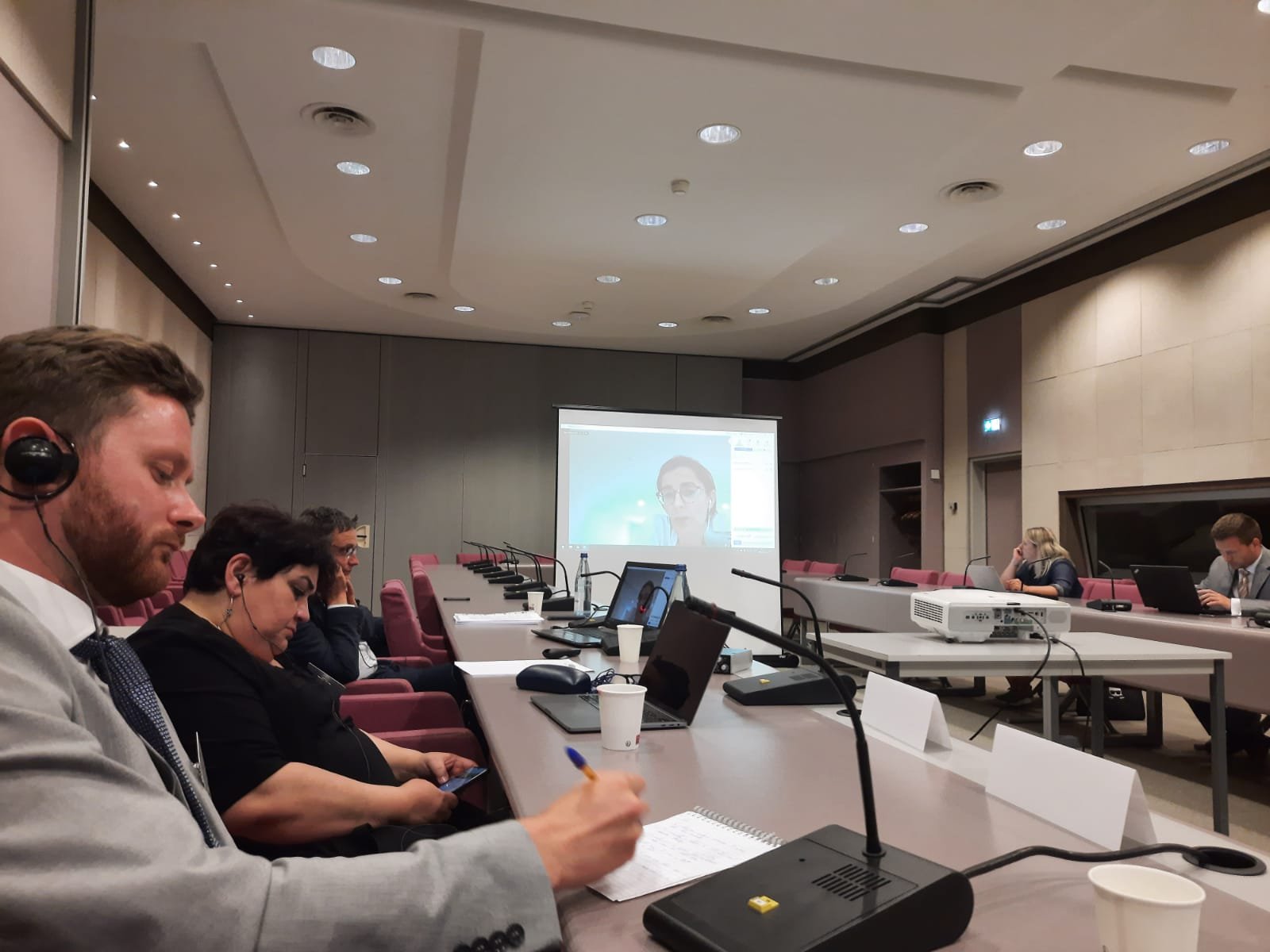
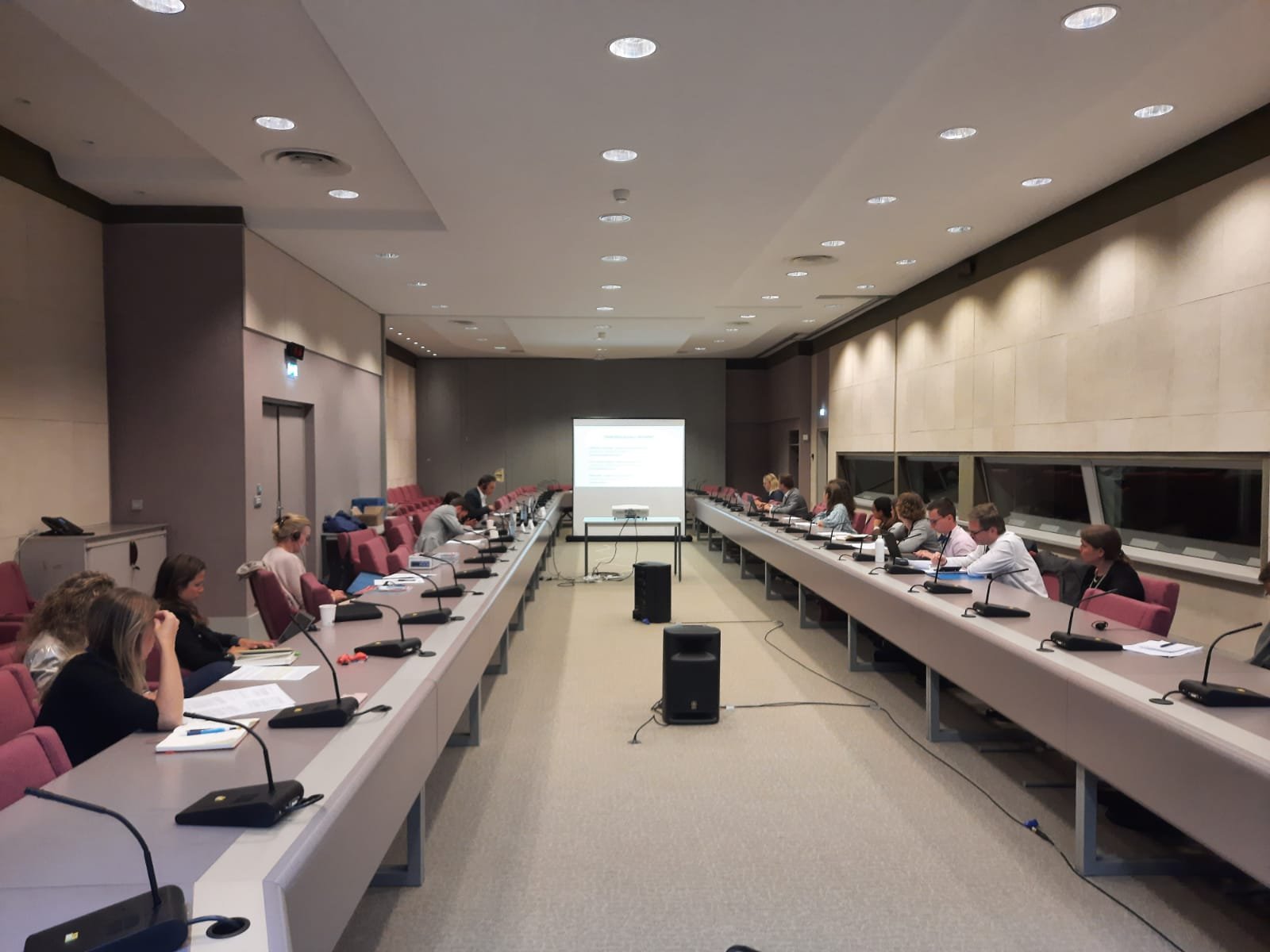
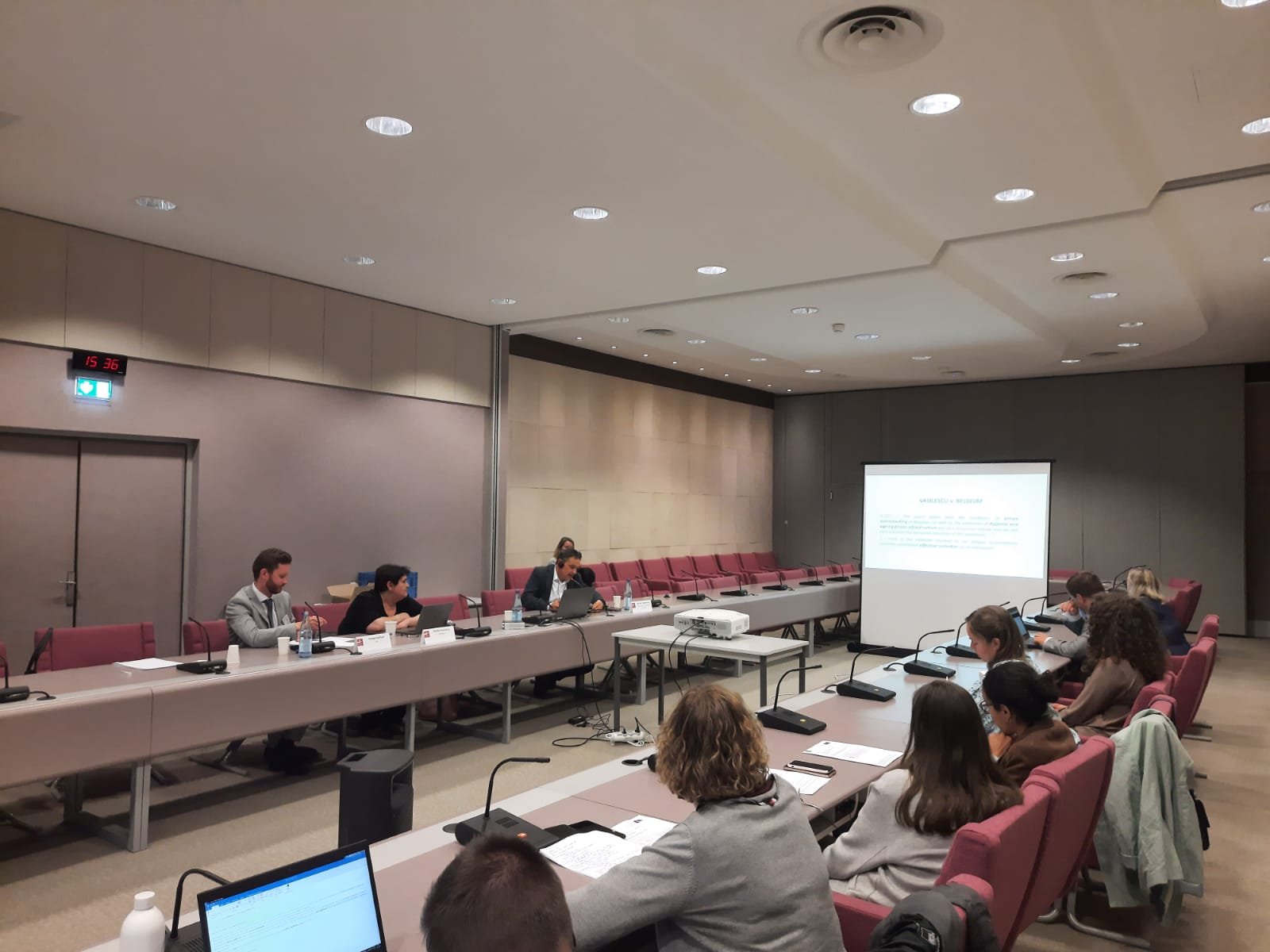
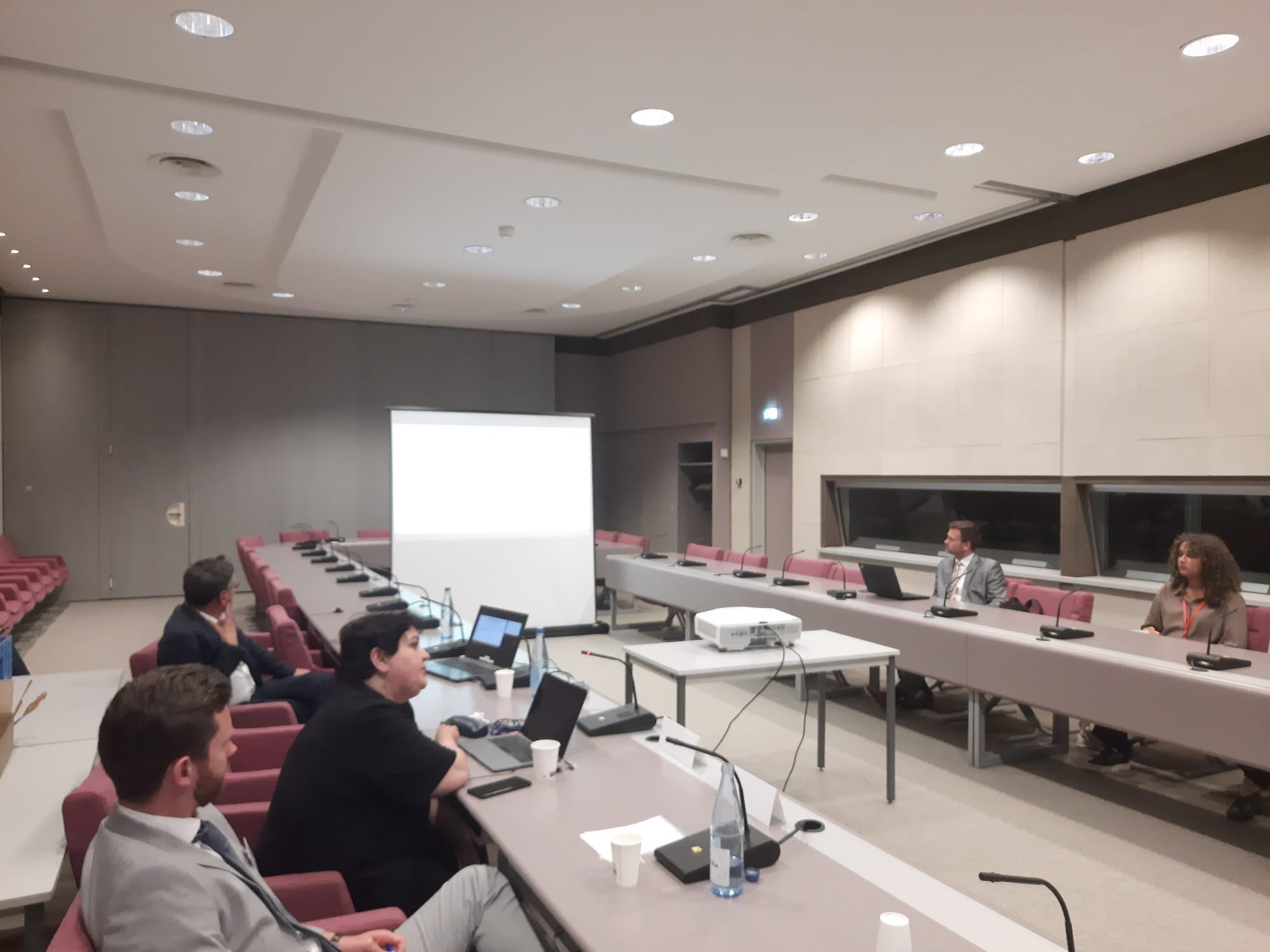
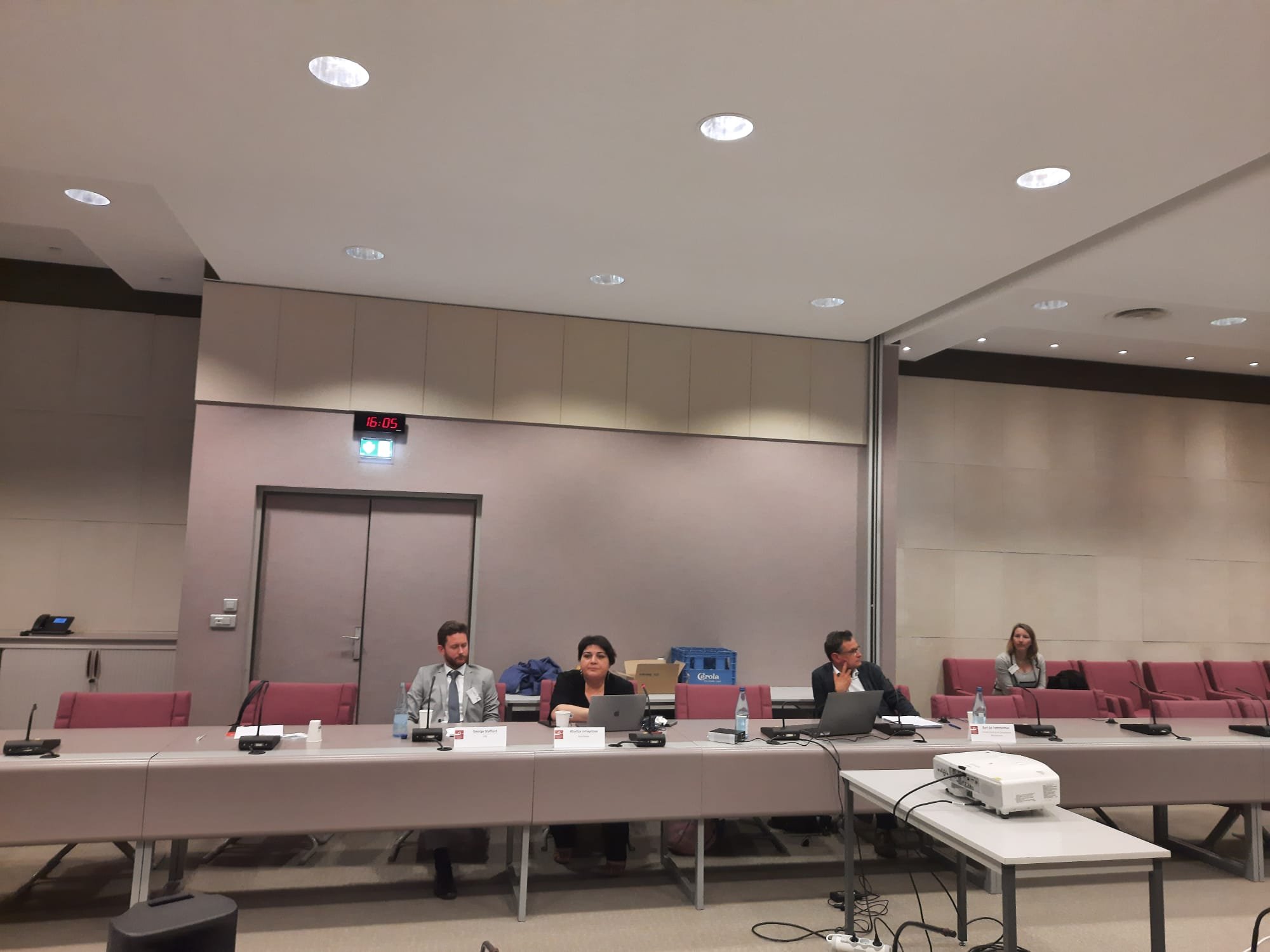
Selahattin Demirtaş (No. 2) case v. Turkey
Overview of the case
The Court found that the applicant was detained in the absence of evidence to support a reasonable suspicion he had committed an offence (violation of Article 5 §§ 1 and 3) and that his arrest and pre-trial detention especially during two crucial campaigns pursued an ulterior purpose, namely to stifle pluralism and limit freedom of political debate (violation of Article 18 taken in conjunction with Article 5); that lifting of the applicant’s parliamentary immunity and the way the criminal law was applied to penalise the applicant for political speeches were not foreseeable and prescribed by law (violation of Article 10) and that his consequent detention made it effectively impossible for the applicant to take part in the activities of the National Assembly (violation of Article 3 of Protocol No. 1).
The briefing particularly focused on the Government’s argument that “new pieces of evidence” that had not been examined by the ECtHR have emerged and that the substance of the allegations against Mr. Demirtaş is now different. First, as regards the new evidence, Ms. Bingol argued that the Government's argument that an assessment of evidence is out of bounds for the CM is manifestly unfounded in view of the CM’s role in ensuring implementation of the judgment, including the part concerning the Article 18 violation. Second, the Government must convincingly explain why the evidence claimed to be ‘new’ appears only now, several years after the events, and following the ECtHR’s December 2020 judgment. Third, the Government fails to give clear and reliable information on the alleged ‘new’ evidence, failing to explain whether and why they are different from his statements given at the investigation stage. Moreover, heavy reliance is placed on supposed anonymous witnesses, yet reports illustrate an extremely worrying practice of the abuse of such witnesses in Turkey.
Recommendations to the CM in relation to Selahattin Demirtaş v. Turkey (2) judgment:
To insist on the immediate release of Selahattin Demirtaş as required by the ECtHR judgment and indicate that continuation of Mr. Demirtaş’s detention in any form under criminal proceedings remaining within the scope of the Grand Chamber judgment constitutes a prolongation and entrenching of the violation of his rights under the Convention, as found by the ECtHR.
To confirm that the Grand Chamber judgment clearly applies to Mr. Demirtaş’s ongoing pre-trial detention, the criminal proceeding under which he was convicted, and to any other ongoing or future proceedings or detention, in which the factual or legal basis is substantially similar to that already addressed, and found to violate his Convention rights, by the ECtHR in its judgment.
To call for the halt of all criminal proceedings initiated against Mr. Demirtaş following the constitutional amendment lifting his parliamentary immunity, as the Grand Chamber found that the amendment did not meet the legality standard of the Convention, and that all proceedings initiated pursuant to it should therefore be deemed unlawful.
To request the Government of Turkey to end the persecution through abusive criminal proceedings of Selahattin Demirtaş, including by dropping all charges under which he has been investigated, prosecuted and detained, which have pursued an ulterior purpose of stifling pluralism and limiting freedom of political debate, in conformity with the Court’s finding that his rights under Article 5(1) in conjunction with Article 18 were violated, and that his exercise of the right to freedom of expression was wrongfully used as evidence to incriminate him.
To emphasize the continuing nature of the breach and that restitutio in integrum, in this case, requires – inter alia - the cessation of the persecution of Mr. Demirtaş through criminal proceedings, in the form of ongoing and future investigations, prosecutions and detentions, including pre-trial detentions, solely for his political activities and his political speech.
In the event that Selahattin Demirtaş remains in detention at the time of the 1436DH 8-10 June 2022 meeting, to take the necessary steps to trigger infringement proceedings against Turkey under Article 46(4) of the Convention on the ground of its continued failure to comply with the ECtHR Grand Chamber’s judgment.
The Turkey Human Rights Litigation Project also recommended that the CM must now also decide whether new pieces of evidence advanced by the Government are really new, considering the Court’s findings concerning Article 18 in the principal judgment.
Please see our Civil Society Briefing from September 2021 for more information on this case.
Relevant Document
9.2 Submissions
9.1 Submissions
CM Decisions

